Portsmouth NH 400 CELEBRATES BLACK HISTORY

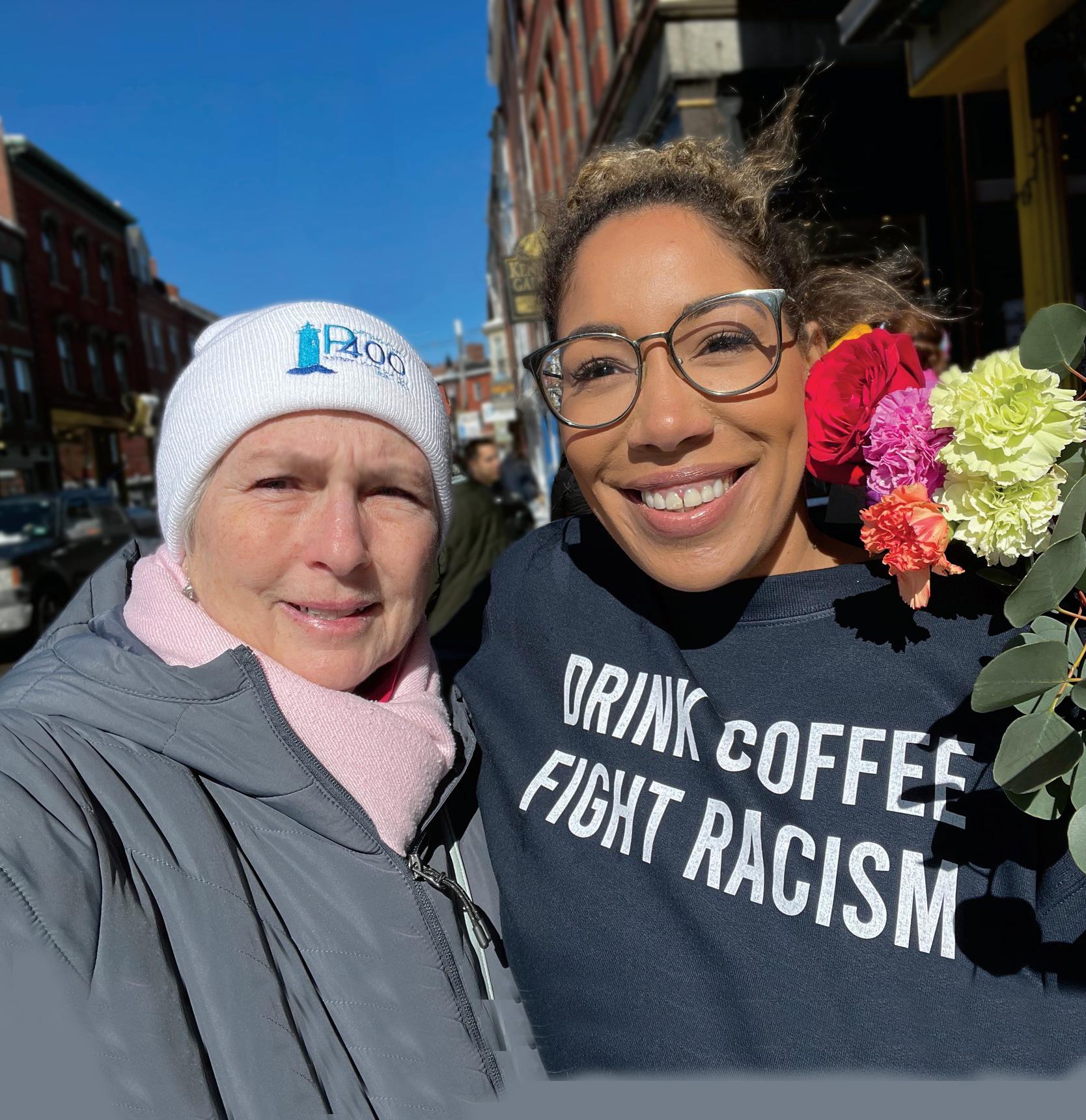
MEET PORTSMOUTH’S POLICE CHIEF MARK NEWPORT CAMP PEMIGEWASSET INSPIRES UNITY WITH DEI SPICE UP YOUR SUMMER GRILL Q2 2023
Portsmouth 400 Director Valerie Rochon
(left) and Portsmouth Assistant Mayor Joanna Kelley were among those who led the Love Blooms Here event. See page 34. (Courtesy Photo)
OVERCOMERS REFUGEE SERVICES IS A MULTI-ETHNIC COMMUNITY ORGANIZATION, FOUNDED BY A FORMER REFUGEE FROM CENTRAL AFRICA, CLEMENT KIGUGU, WHO NOW SERVES AS ITS EXECUTIVE DIRECTOR. IT WAS REGISTERED AS A 501(C)(3) IN JUNE 2018.



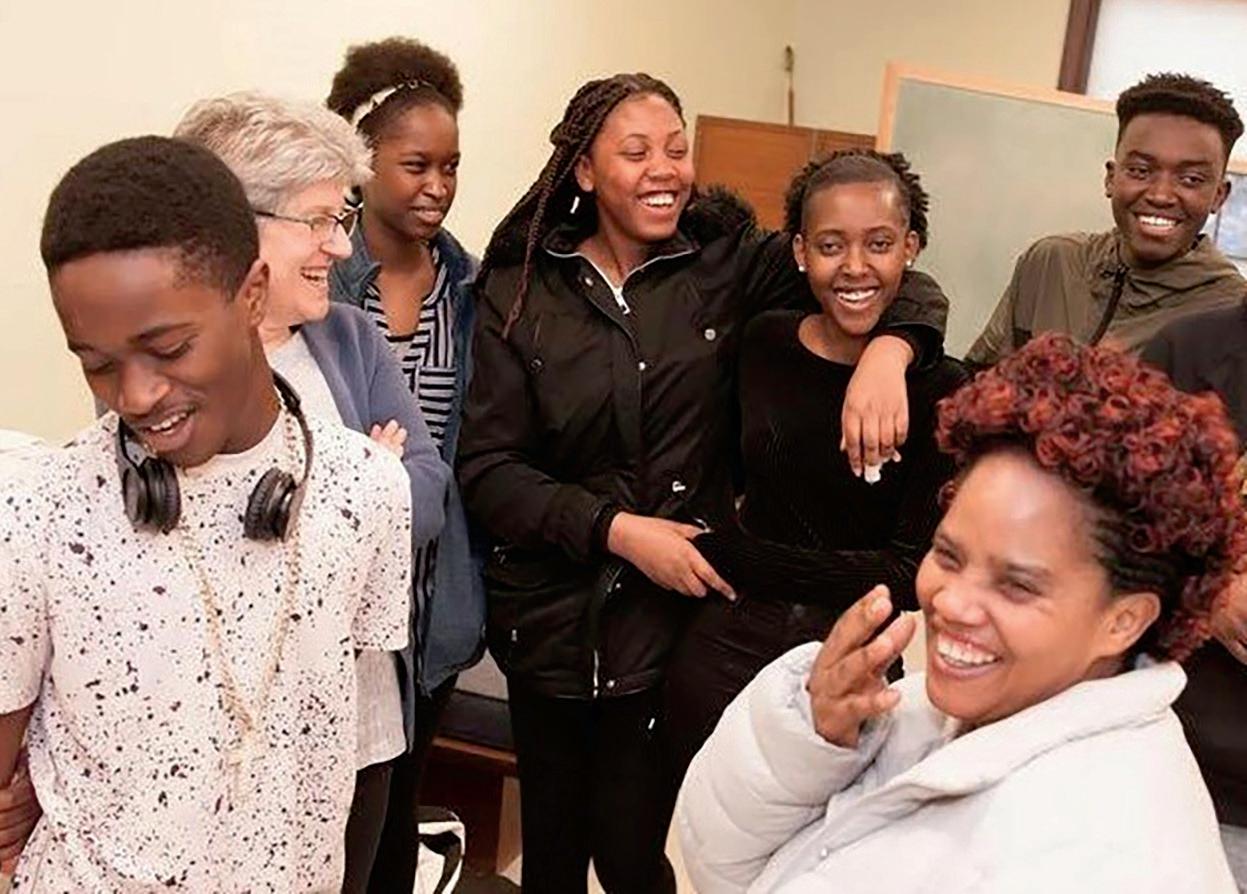
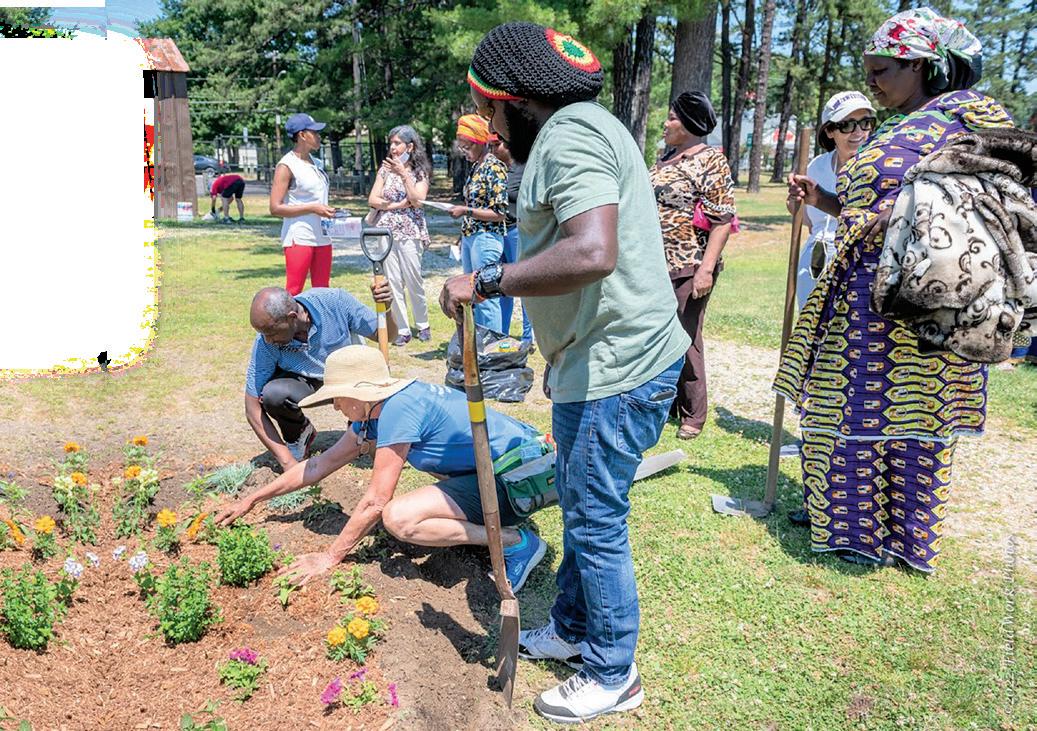
A multi-lingual team of professional case managers (who were once refugees) and trained volunteers provide cultural-sensitive services that support refugees as they transition into New Americans.
We educate, empower, and engage our clients on their journey toward independence and integration. Our goal is their full and successful participation into our diverse community.
We recognize that refugees come from a variety of backgrounds and experiences, and we are dedicated to creating a safe and welcoming space for all.
SERVICES WE PROVIDE:
• JOB PREPARATION AND SEARCH
• CITIZENSHIP TEST PREPARATION
• TUTORING IN ENGLISH
• ASSISTANCE WITH NAVIGATING SOCIAL SERVICE SYSTEMS AND HOUSING
• YOUTH ACTIVITIES TO PROMOTE PEACE AND HEALING FROM TRAUMA

• WOMEN’S ACTIVITIES TO PROMOTE COMMUNITY AND ENGAGEMENT




• TRANSPORTATION TO MEDICAL APPOINTMENTS
• GENERAL ASSISTANCE WITH DAY TO DAY NEEDS THAT REQUIRE INTERPRETATION

OVERCOMERS REFUGEE SERVICES 90 AIRPORT RD. • #25 CONCORD, NH 03301 603-856-7507 DIRECTOR@OVERCOMERSNH.ORG WWW.OVERCOMERSNH.ORG
The New Hampshire Charitable Foundation is proud to underwrite 603 Diversity and to devote this advertising space to promote nonprofit organizations working to advance diversity, equity, inclusion and belonging in New Hampshire.
FROM THE PUBLISHER

IN PRAISE OF dialogue
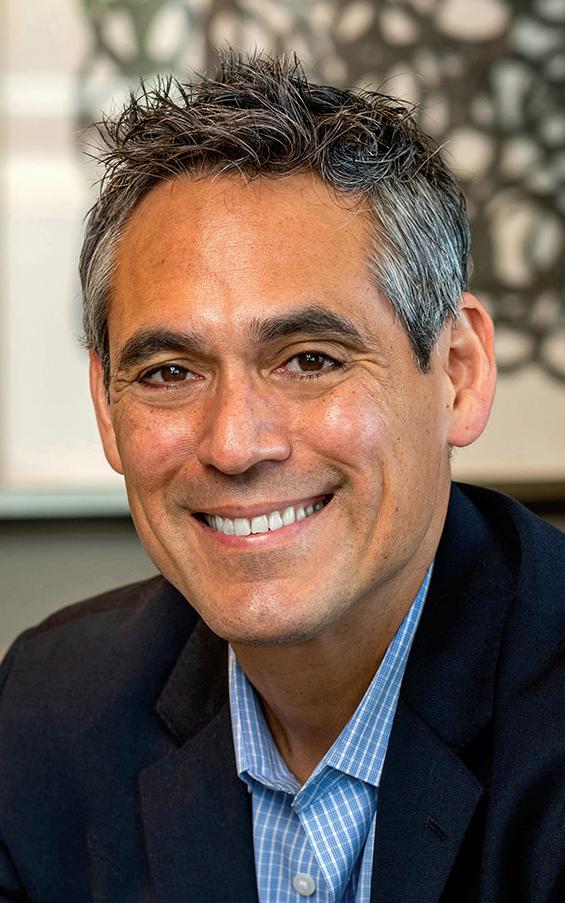
Since our first issue (almost two years ago!) I’ve had a tremendous amount of positive feedback about this publication from many different communities in the state. People felt glad to see their stories, to see their neighbors and families represented. People felt grateful to understand more about how truly diverse New Hampshire is. Most agree that raising an awareness of the diversity in our state is helpful – to its various communities and to the state’s culture and economy.
A perceived lack of diversity in our state, and a perceived lack of welcome for people who don’t fit the traditional image of whatever one imagines it means to be a Granite Stater, is bad for the state. And I believe in many cases those perceptions are wrong. We are more diverse, more open-minded and more welcoming than people from elsewhere might like to portray us.
Combatting those misperceptions is part of the mission of this magazine.
But the feedback hasn’t been universally glowing. We’ve been mired in a politically fraught era. If you were to judge by the main narrative threads of media coverage, everyone in the country is either on one or the other of two very distant, irreconcilable political poles. Those of us who live in the real world, not just the hyperventilatory atmosphere of Twitter and the like, know that most people we know, regardless of race, religion, gender, sexual orientation or political persuasion, are well intentioned (I’ve never met anyone who believed themselves to be the villain in the story and relished the role). They can even be pretty reasonable. But all those well-intentioned, reasonable people on all sides are being told unreasonable stories about themselves, and they’re reacting to it the way
anyone would. With frustration, anger and even fear.
I’ve got a letter in my desk drawer, unsigned, from a reader — a recent African emigree — who felt our creation of 603 Diversity magazine was pandering and racist. From his or her perspective, highlighting the various communities we do implies that we are “surprised when non-whites are successful.” I disagree with this interpretation, but I think there’s something to be learned from it.
Same with the writer who identified himself as a lifelong New Hampshire resident in his 70s. He told me that he’d lived through the era of Martin Luther King Jr. and that any discussion of issues of race or diversity beyond that era was unnecessary. The problem had been solved, as he saw it, and therefore any further conversation could only be for the sake of sowing division, provoking unrest.
As with the first writer, I disagree. And have first-hand experience to the contrary. Intentional and unintentional biases still exist, unintentional cruelties are committed every day for a lack of understanding of and empathy for the lives and experiences of the people around us. Diversity, equity and inclusion principles at their best (and people perceive this in different ways as well) don’t take anything away from anyone – they encourage everyone to treat each other more empathetically, to take that extra step to understand the lived experience of the people they engage with.
So I disagree with those writers on the points I noted. That doesn’t mean I haven’t spent a good deal of time thinking about their letters, their lives, what they’re saying to me, and what I need to learn from them.
And it’s important both of these writers expressed their opinions. They entered
including perhaps some of the things I feel the surest about. And while my ego doesn’t want to know I’m wrong, and my fear wants to keep my ego safe in the dark, my heart and intellect both agree: I must keep examining my assumptions. The only way to correct my own misperceptions, especially when it comes to other people’s intentions, is to open myself and listen. To let them speak.
I hope these pages speak well this issue. I hope they continue to expand the dialogue – to create understanding and empathy among neighbors and prompt conversations. And I hope you’ll share your thoughts on those conversations with me. As always, I have a lot to learn.
603Diversity.com | Spring/Summer 2023 1
FROM PUBLISHER
Contributing Writers
Tanisha Johnson
Wildolfo Arvelo
James McKim

Rony Camille
Beth Santos
Yasamin Safarzadeh
Contributing Photographer
Robert Ortiz
Contributing Artist
Richard Haynes
Editor/Publisher Ernesto Burden x5117 ernestob@yankeepub.com
Managing Editor Rick Broussard x5119 editors@603diversity.com

Managing Editor, Custom Publishing Robert Cook x5128 editors@603diversity.com
Creative Services Director Jodie Hall x5122 jodieh@yankeepub.com
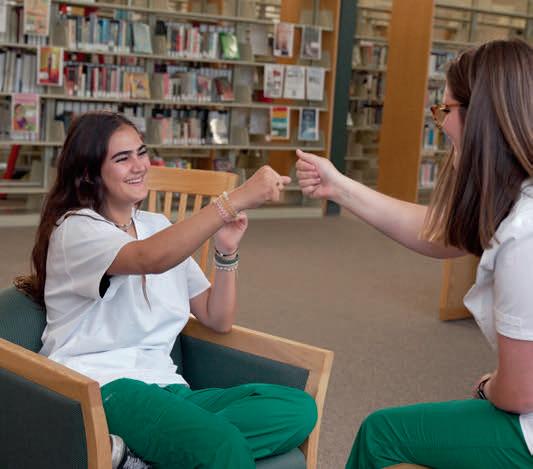
Senior Graphic Desinger Nancy Tichanuk x5126 nancyt@yankeepub.com
Advertising and Events Sales Director Jenna Pelech x5154 sales@603diversity.com
Sales Executive John Ryan x5120 johnr@yankeepub.com
Operations Manager Ren Chase x5114 renc@yankeepub.com
Digital Operations and Marketing Manager Morgen Connor x5149 morgenc@yankeepub.com

Billing Specialist/IT Coordinator Gail Bleakley x113 gailb@yankeepub.com

2 603Diversity.com | Spring/Summer 2023
Commercial Street, Suite
Manchester,
03101 (603) 624-1442, fax (603) 624-1310
2023 Yankee Publishing,
PRINTED IN NEW
603DIVERSITY.COM 250
4014
NH
Email: editors@603diversity.com Advertising: sales@603diversity.com ©
Inc.
HAMPSHIRE
NEW HAMPSHIRE GROUP 100% Employee-Owned Choose a Healthcare Career through convenient, affordable programs from New Hampshire’s Community Colleges! ChooseCommunity.com One-year LPN certificate programs at campuses in Keene, Laconia, Lebanon, Littleton and Manchester Two-year RN programs at all seven campuses NEW Learn more at McLane.com/Mansfield COMMITTED TO DIVERSITY, EQUITY & INCLUSION A central part of McLane Middleton’s statement of core values is our commitment to diversity, equity & inclusion. It’s what we believe in. As part of that commitment, we’re proud to announce that we’re participating in the Mansfield Rule certification process - a national initiative aimed at closing the diversity gap in the legal profession.
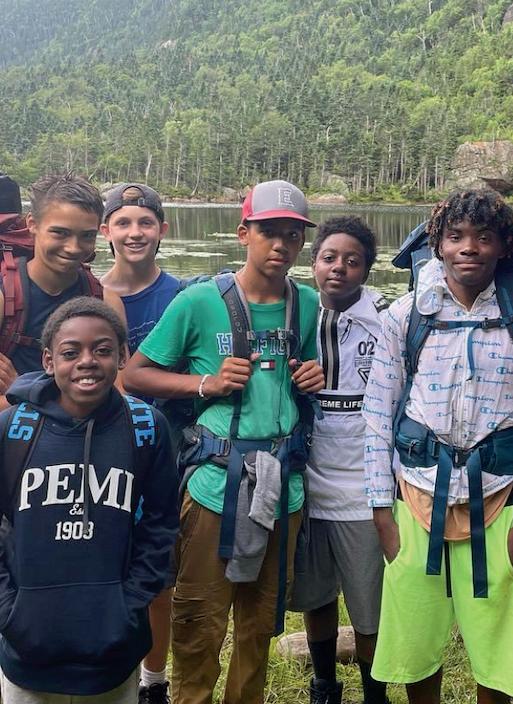
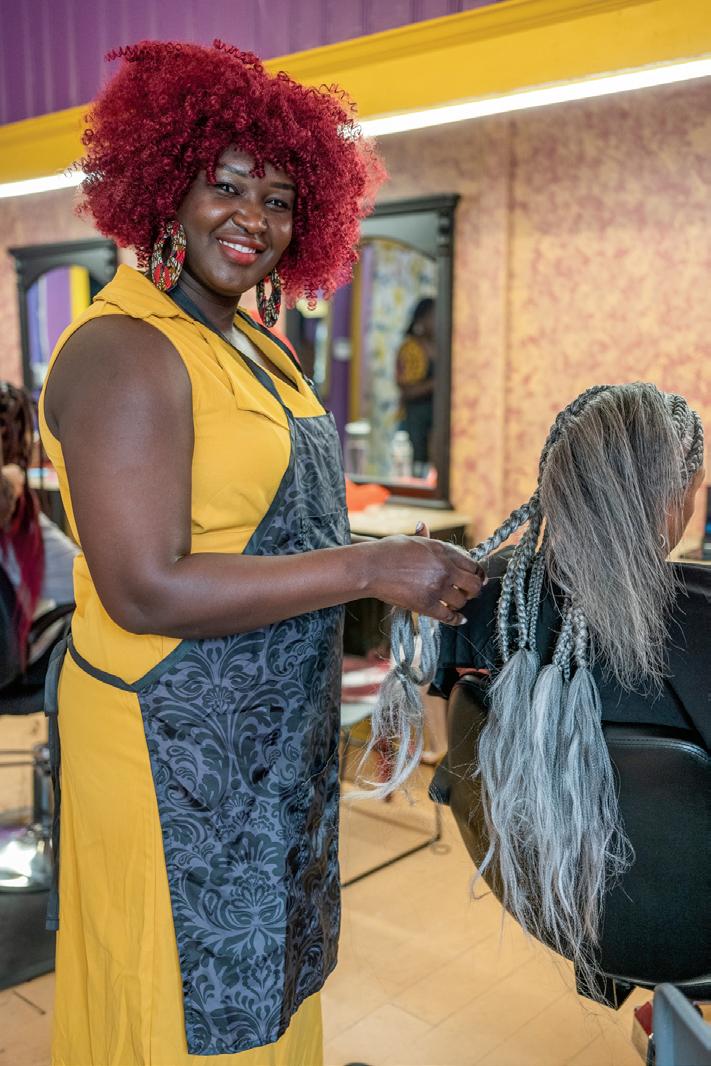


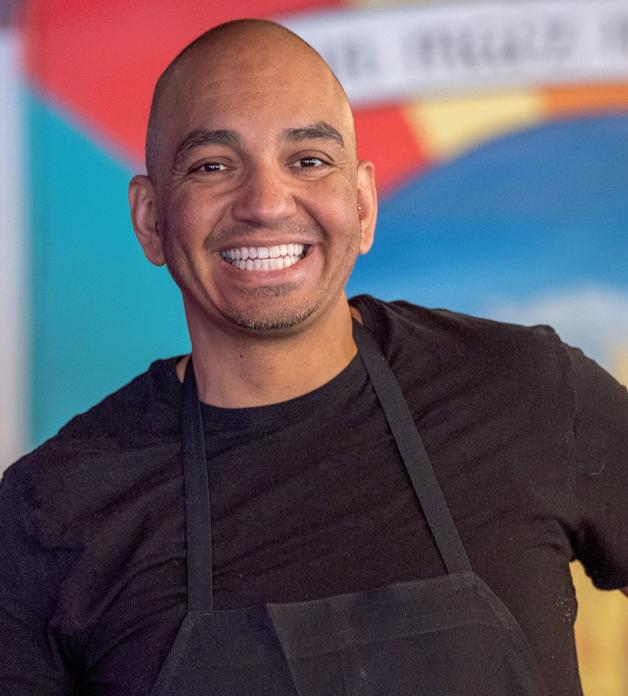

603Diversity.com | Spring/Summer 2023 3 Features Contents UPFRONT & PROFILES 1 From the Publisher 6 Our Contributors 8 Upfront: No to Patterns 10 Profile: Manchester’s Sarah Dak 42 Calendar: Events That Make a Difference 44 Shout Out:Talesha Saint-Marc ESSAYS & MORE 28 Diversity news from the Granite State News Collaborative 32 Essay: How One NH Immigrant’s Story Inspires Others Who Will Follow 34 Essay: Let Love, Not Hate, Reign Over Our Hearts 36 Essay: Mentors Shaping Lives 38 Essay: Civility in Civics 20 10 24 16 22 12 Black History Holds a Special Place in Portsmouth 400 Celebration 16 Meet Portsmouth Police Chief Mark Newport 18 Along the Way: Day Trips Into Black History 20 DEI Panel Enhances NH Summer Camp Experience 22 Chef David Vargas: James Beard Semi-finalist 24 Spice Up Your Summer Grill with a Dash of Diversity 12
you for your
UNDERWRITERS ROCK!
The 603 Diversity underwriters provide a significant financial foundation for our mission, enabling us to provide representation to diverse communities and for diverse writers and photographers, ensuring the quality of journalistic storytelling and underwriting BIPOC-owned and other diverse business advertising in the publication at a fraction of the typical cost. We’re grateful for our underwriters’ commitment to diversity, equity and inclusion in this magazine, their businesses and their communities.
THANKS TO THE UNDERWRITERS OF THIS ISSUE FOR THEIR SUPPORT:

CORRECTIONS
Sandi Clark Kaddy, president of the Seacoast African American Cultural Center, and SAACC Vice President William ‘Towny’ Manfull were misidentified in the photos that ran with our feature story about the Seacoast African American Cultural Center in the magazine’s previous edition.
Najee Brown, director of Project Empathy, was listed as the program’s founder in our cover story, “The Power of Podcast.” Catherine Cote is the founder of Project Empathy.
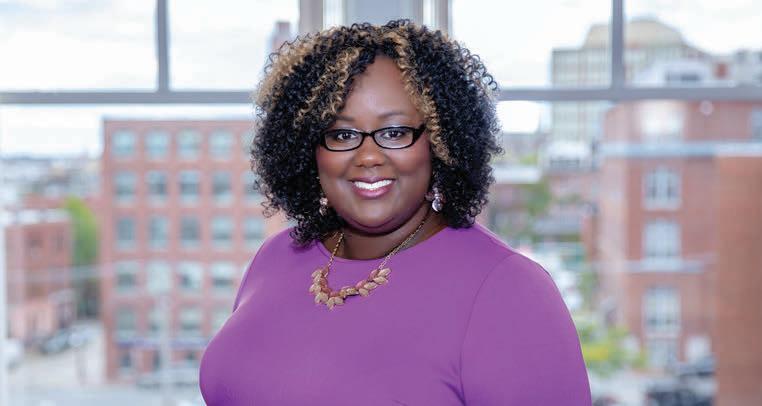
4 603Diversity.com | Spring/Summer 2023
Congratulations Talesha on your appointment to US Magistrate Judge. B e historic. BE SHUR.
10+ years of leadership and dedicated service with us. We are thrilled for you and your family, and each of us is proud of all that you have accomplished. We wish you success and good luck in your new position! Talesha Saint-Marc
bernsteinshur.com Thank
|
News
New Hampshire and Always on the air Always online Always on demand Always on the beat Always on your mind Always on.
89.1 Concord/Manchester
nhpr.org
from
A MISSION ON THERise

To illustrate the mission of 603 Diversity, Seacoast artist Richard Haynes has provided one of his recent designs to accompany our motto “Live Free and Rise.” We are selliing T-shirts with Haynes’ design to benefit the Manchester Chapter of the NAACP Visit 603Diversity.com to buy one today.



RISE AND SHINE
We’ve had some great responses to our call for a new “Live Free and Rise” T-shirt design including the one below by Chloe Paradis of the Institute of Art & Design of New England College. We’re still soliciting design ideas and will award the winning design with a $100 cash prize and a short write up in the fall issue of 603 Diversity. Visit 603Diversity.com to see more of the designs we’ve received and to learn how to enter your own.
Live Free and Rise
ARTBYRICHARDHAYNES
603Diversity.com | Spring/Summer 2023 5
OUR CONTRIBUTORS
Yasamin Safarzadeh
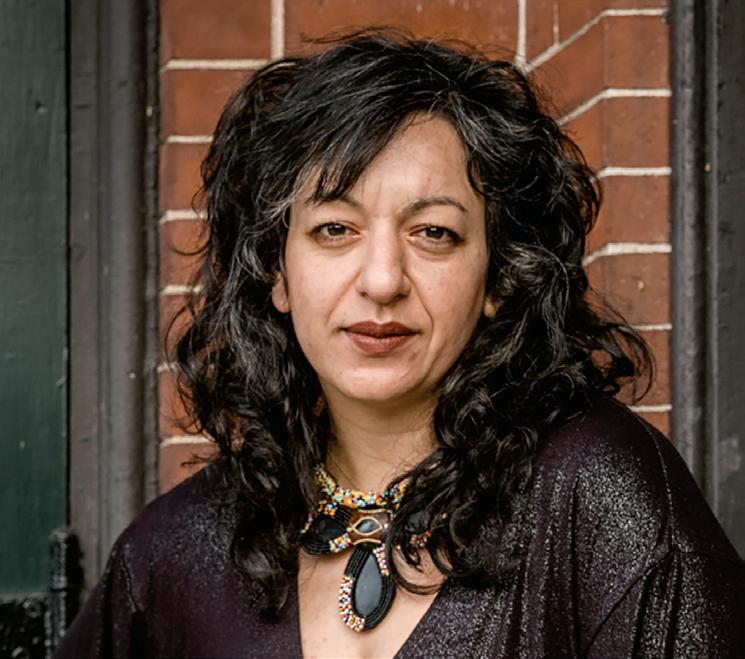
Our events calendar and the essay on a life-changing speech by Tina Philibotte (page 32) were written by advocate, coordinator and educator Yasamin Safarzadeh, a native Angelino and current resident of Manchester. Safarzadeh hopes to secure a future for a more diverse young adult population in New Hampshire to ensure a more prosperous and effective future for all. DM her at phat_riot on Instagram.
Beth Santos
A new writer for 603 Diversity comes with a background in international development, thoughtful community building and social enterprise. Beth Santos, who filed two stories for this issue, set out to change the landscape of travel for women worldwide by creating the first iteration of Wanderful — a travel blog aimed to explore the diverse and shared experiences of women traveling the world. Today, Wanderful has exploded to an international community and social network with the active participation of over 40,000 women and gender-diverse people of all ages and backgrounds.
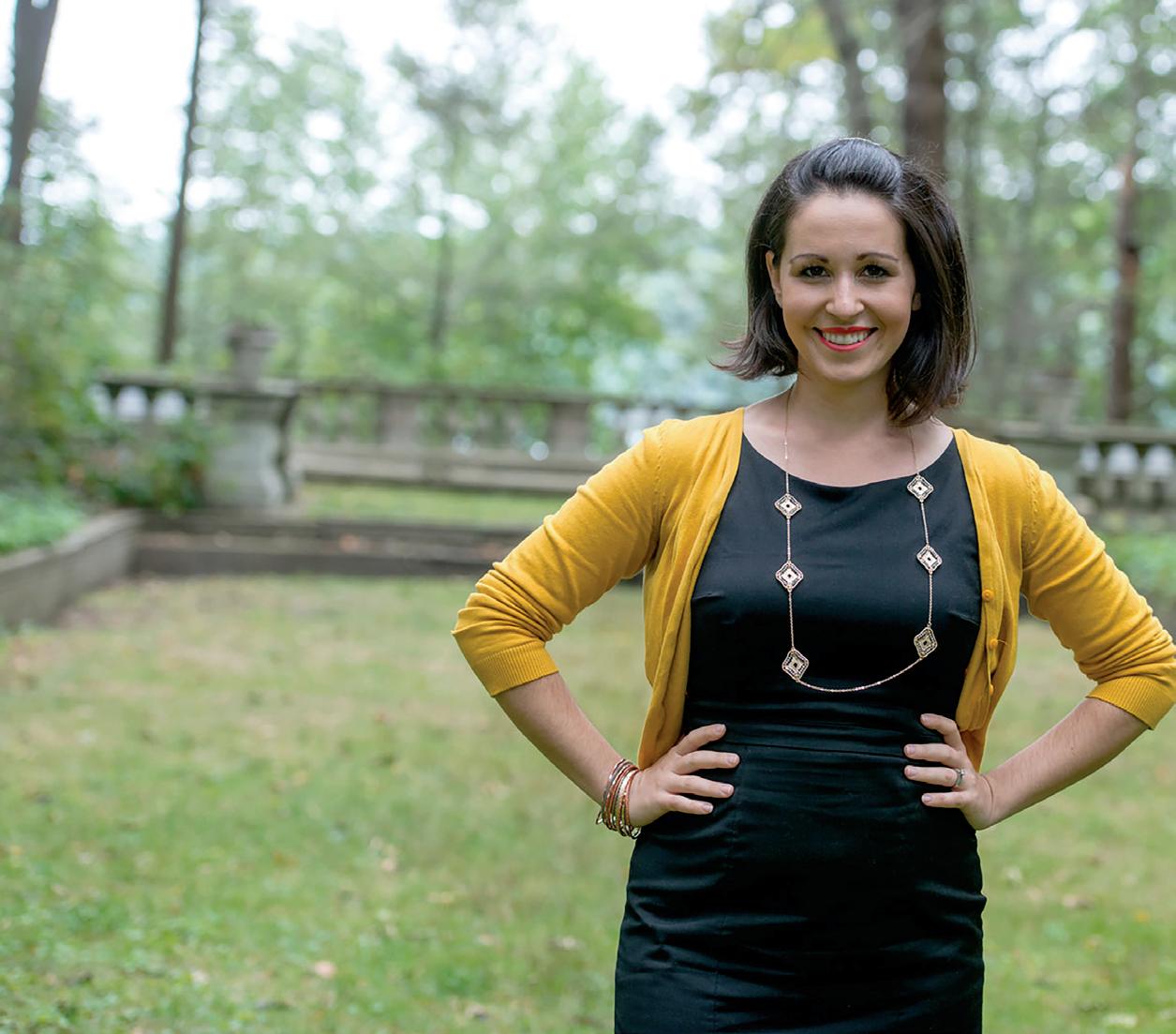
James McKim
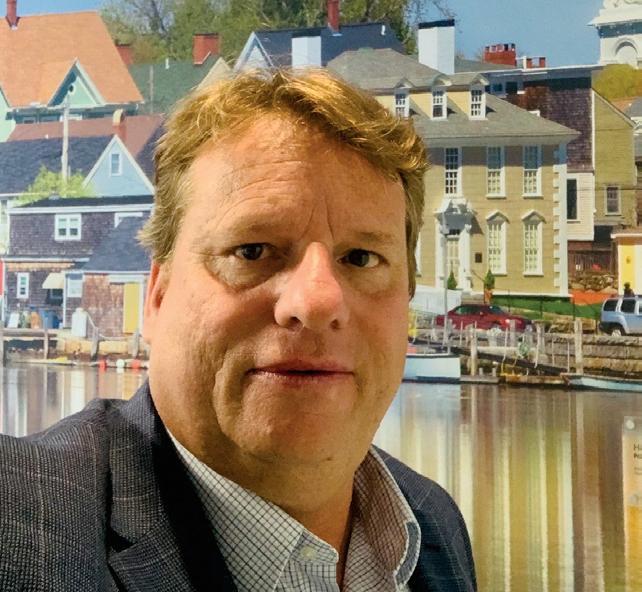
James McKim, who was involved in the original plannng of 603 Diversity and has written essays for past issues, serves as managing partner of Organizational Ignition. He is driven by an intense need to help organizations achieve their peak performance through the alignment of people, business processes and technology. He is recognized as a thought leader in organizational performance, the uses of neuroscience and program management.
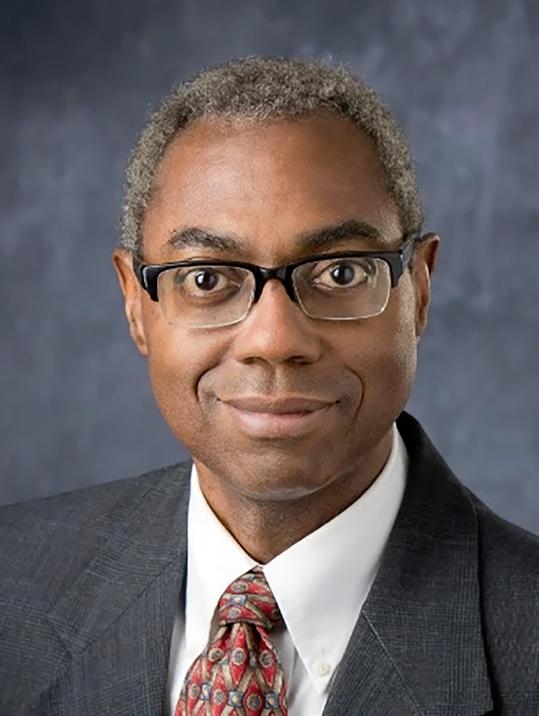
Wildolfo Arvelo, Ed.D.
Dr. Wildolfo Arvelo is executive director of Cross Roads House, the second largest homeless shelter in New Hampshire. Prior to Cross Roads House, Arvelo served as director of the Division of Economic Development for New Hampshire. From 2007-2017, he served as president of Great Bay Community College in Portsmouth. Arvelo has a doctorate in educational leadership from the University of Massachusetts/Boston.
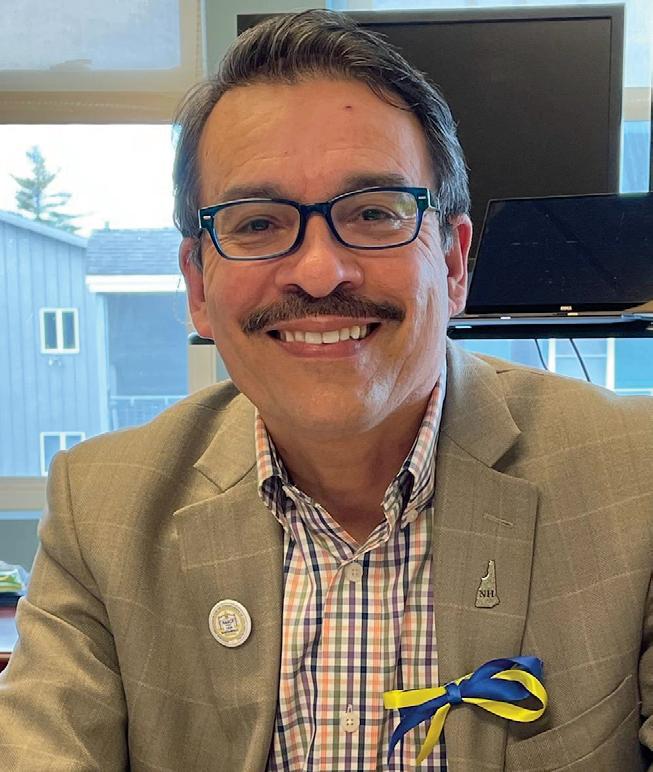
Robert Cook
Robert Cook works as managing editor of custom publications for Yankee Publishing New Hampshire Group, which produces both 603 Diversity and NH Magazine among other titles. Cook is an award-winning journalist who has worked for several newspapers, magazines and digital media companies in Massachusetts, New Hampshire and Maine for 30 years. He lives in Maine.
6 603Diversity.com | Spring/Summer 2023
Courtesy photos
Rony Camille
Our regular 603 Diversity cuisine reporter is Rony Camille, a freelance journalist (and son of Haitian immigrants) based in Nashua. A media manager with a focus in digital editorial content and operations, Camille is currently the media program director for the Town of Tyngsborough, Massachusetts.
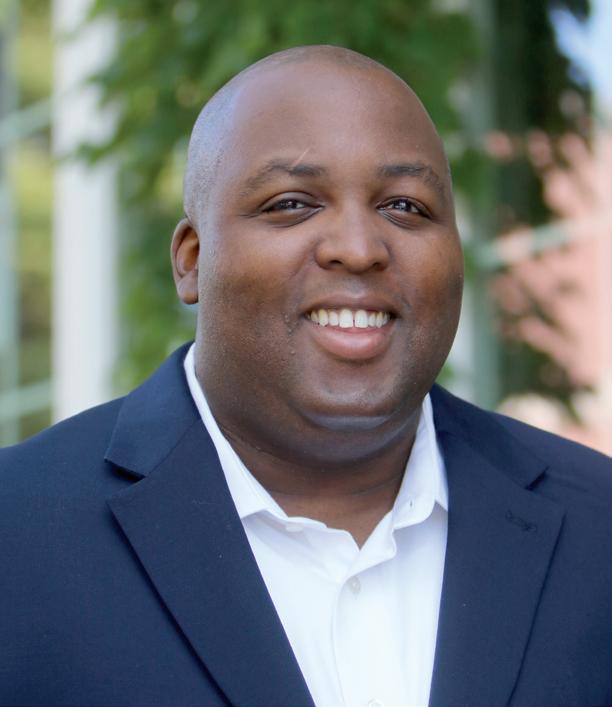
Tanisha Johnson
A new writer for 603 Diversity, Tanisha Johnson is an Exeter resident who is originally from New Jersey and Pennsylvania. As a mother, her passion has always been around empowerment and activism ranging from feminism, racial and social justice, and youth services.
She serves on various community organizations’ boards along the Seacoast. She is a racial and social justice equity educator and DEIJ trainer, advocate and speaker. She has a bachelor’s degree in organizational psychology and a master’s degree in business administration. She is currently the child and family services director for Community Action Partnership of Strafford County.
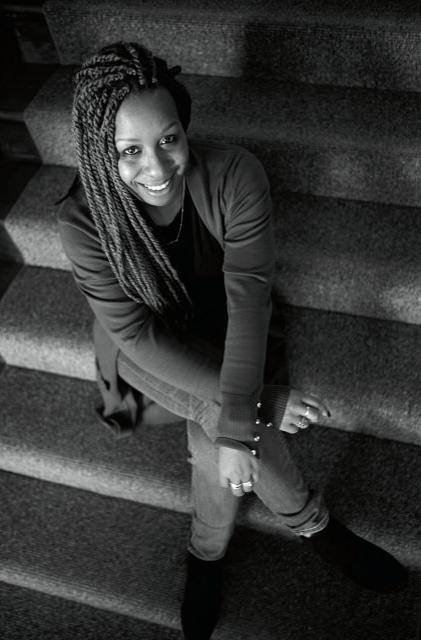
Richard Haynes
603 Diversity stories emphasize not only how things are, but how they might or even “ought” to be as we seek out and reveal our state’s diverse communities. When we needed a single image to summarize the mission of this magazine, we went to a man who has long been telling complex stories with bold strokes of color and universal symbols. Artist Richard Haynes provided a selection from his recent work for this purpose. See page 5 for how you can fashionably spread the good word.

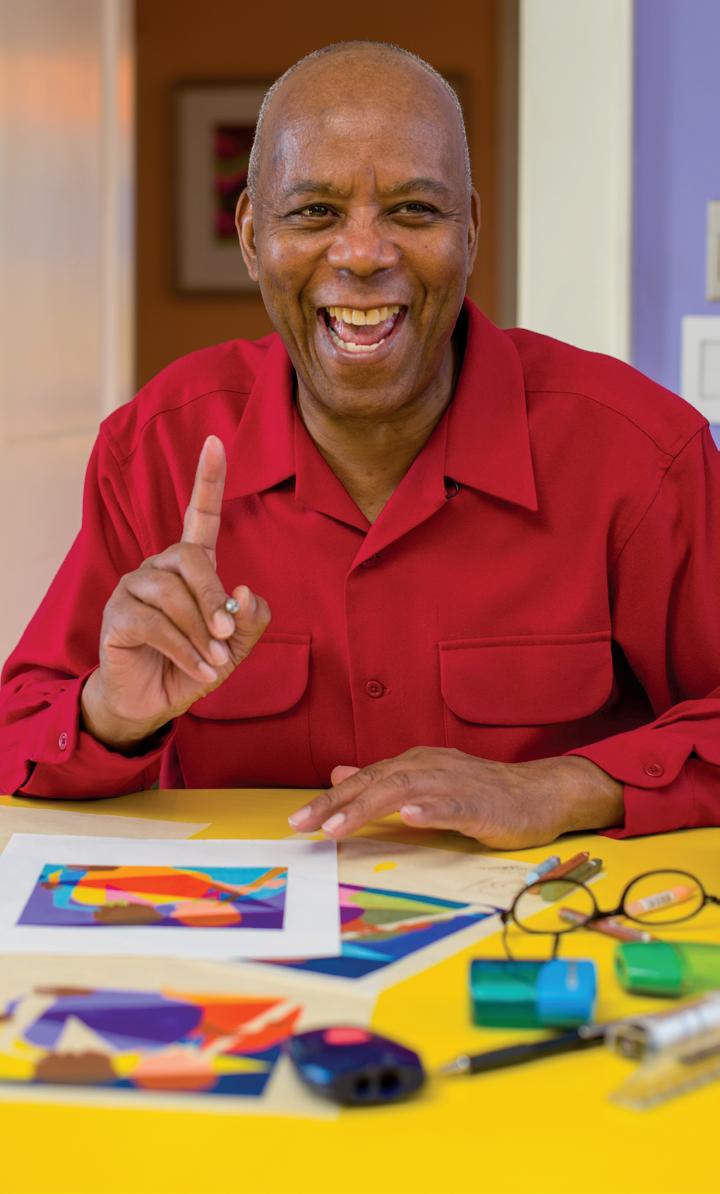
Robert Ortiz
Primary photographer for 603 Diversity is Robert Ortiz of Robert Ortiz Photography. Ortiz began his photographic career at 15 and has chronicled everything from local weddings and events to the lives of the native peoples of the Peruvian Amazon. He lives in Rochester with his wife and son and 15-year-old daughter, Isabella, who is currently in training as his photo assistant.

Live Free and Rise
603Diversity.com | Spring Summer 2023 7
Photo by Jeremy Gasowski/University of New Hampshire
ARTBYRICHARDHAYNES
Courtesy photos
Artwork by Richard Haynes: artistrichardhaynes.com
No to Patterns
Sheds Light on the Seacoast BIPOC Experience
n BY ROBERT COOK
BIPOC panelists in a new Seacoast discussion series expressed optimism about the future even as they outlined the challenges of being among the very few people of color in their neighborhoods and towns when they first arrived in the state.
Seacoast resident Courtney Daniel, a community activist, launched the “No to Patterns” series and held its first event this winter at 3S Art Studios in Portsmouth. Daniel formed “No to Patterns” to address the lack of accommodations available to Black, African American and people of color who live on the Seacoast. Her goal is to create a community of resources for those who are considering moving to the Seacoast area and to nurture those who have called New Hampshire home.
By listening to the stories shared by BIPOC community members on the “No to Patterns” panel and learning about their journeys to create successful businesses

and the obstacles they had to overcome, the result is greater understanding.
The three-member panel of Black and indigenous people of color (BIPOC) community members and business leaders who shared their stories about life on the Seacoast included: Wildolfo Arvelo, executive director of Cross Roads House in Portsmouth; David Vargas, owner and chef at Vida Cantina and Orell’s Barbecue in Kittery, Maine; and Dr. Shantel Palacio, the principal advisor at Urbane Advisory and a consulting partner at the Perception Institute.
The panelists described how they went from feeling like pioneers when they first moved to New Hampshire to feeling thrilled they are now part of a new wave of diversity.
“New Hampshire is changing,” says Arvelo. “We have found a community in New Hampshire that talks likes us and looks like us.”
Arvelo says that when he first came to New Hampshire in 2008, he felt like a pioneer. There were very few people of color in the
state and young people were leaving New Hampshire at an alarming rate, because they wanted to live in communities that offered more diversity.
Arvelo formed BAPOC-NH, the Business Alliance for People of Color-NH, two years ago to promote diverse businesses in the state. While New Hampshire has made some strides, Arvelo says more work needs to be done, adding that it will be interesting to see what New Hampshire is like in another 10 to 15 years.
Palacio is a former Brooklyn, N.Y., resident who came to New Hampshire a few years ago to complete her doctoral studies. “In the short time that I’ve been in New Hampshire, it has diversified and continues to do so every year,” she says.
During the forum, Palacio said, diversity is gaining momentum in New Hampshire, which will make the state a better place to live. “The train is taking off. If you don’t have a ticket, it’s taking off.”
But she is not sure if New Hampshire will ever become a truly diversified state. “I think it depends on whether politicians, educators and industry leaders truly believe in its own motto about living free — free to access quality education, housing and job opportunities? Free to pursue happiness?”
Palacio points out that “progress is
8 603Diversity.com | Spring/Summer 2023 UPFRONT
Courtney Daniel hosted the first “No To Patterns” forum this winter at the 3S Art Studios in Portsmouth. David Vargas, chef and owner of Vida Cantina, Shantel Palacio, Principal Advisor at Urbane Advisory, and Wilfredo Arvelo, Executive Director of Crossroads House, served as panelists. (Photo by Robert Cook)
never really a straight line. There’s a push and a pull.”
If New Hampshire is to achieve true diversity, Palacio believes “I think all people, including people of color, should be able to find community and feel safe, doing everything from running a coffee shop, attending school, being with their families.”
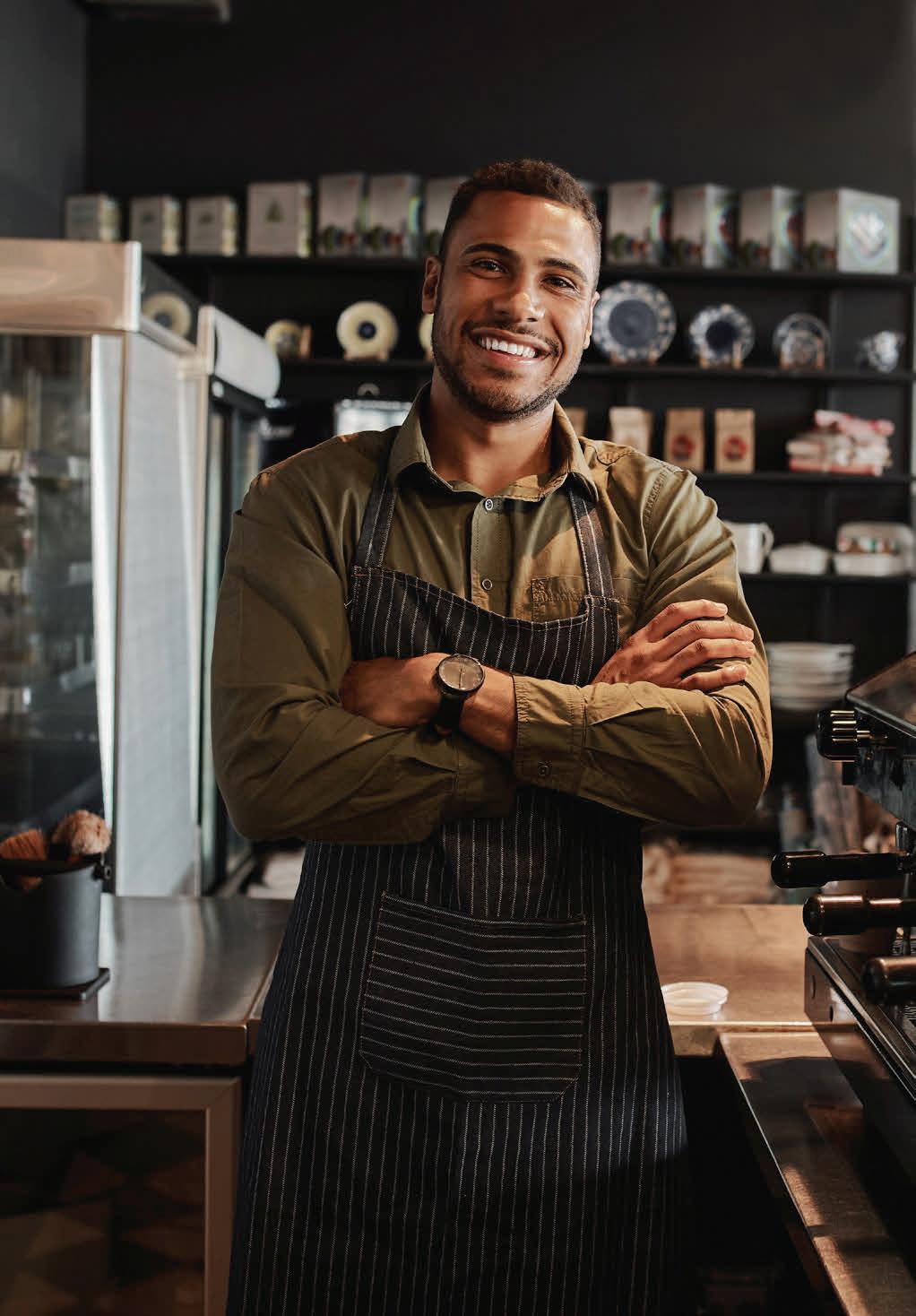
Daniel, originally from Georgia, told the audience that after she moved to New Hampshire in 2012, she told her friends and family there were few African Americans here and they asked her why she wanted to stay.
“When you are in the 2 percent, you feel it when you don’t see any other people of color for a long time,” Daniel explains.
Daniel shared that she met other like-minded people after she became involved in her community. “I didn’t want to be that teacher.” But they convinced her that change was possible and that it was worth pursuing.
“The decision to remain in New Hampshire wasn’t a decision I made on my own. It was a collective effort of supporters whom I met once I became active in the community. These
connections were the path to create change by building, growing and learning how I could become a resource. It’s not an easy task, but I’m confident with each engagement New Hampshire will be a state where families from diverse backgrounds will look to plant their feet.”
Vargas says he will live in New Hampshire for the rest of his life. Like other members of the panel, Vargas experienced some culture shock when he and his family arrived on the Seacoast. When he opened his restaurant, Vida Cantina, he struggled. Vargas says he was “pigeonholed” by perceptions that a Mexican restaurant is supposed to be fast and cheap. It took time, but eventually the public embraced his cuisine and approach.
A year ago, Vargas held the first Seacoast BIPOC Festival in Portsmouth, and last fall the event was re-branded as the New England BIPOC Festival after it attracted people of color from across the state and elsewhere.
Vargas also recalls when white supremacy flyers showed up in his neighborhood. He knew he had to deal with it
and protect his children.
“It’s okay to be brown in New Hampshire,” he says, “and we are going to keep fighting and moving forward.”
When Vargas thinks about what New Hampshire will be like, he looks to his children. “I’m feeling hopeful for the youth today.”
He says young people are more accepting of each other’s differences and care for one another more than the previous generation. When he was growing up in southern California, “nobody talked about these things.”
Arvelo also credits parents for accepting their kids for who they are instead of trying to force them to fit into different categories. The lesson is “let your child be who he wants to be.”
When asked how people can support diversity and the BIPOC community in New Hampshire, Arvelo replies, “Be yourself and be respected the way you wish to be respected.”
Daniel plans to hold a second “No to Patterns” event on May 10 and another panel discussion on August 10. 603
603Diversity.com | Spring/Summer 2023 9 Offering Products & Educational Tools to help your business succeed Experience a Personalized Approach with local 1-on-1 support SBA Preferred Lending Fast decisioning to save you time and money Payroll & Merchant Services Improve your resource management & cash flow Our Team is Ready to Help Call Us at (603) 889-2470 or visit trianglecu.org trianglecu.org (603) 889-2470 Build Your Business with Triangle Credit Union
Products & Educational Tools to help your business succeed Experience a Personalized Approach with local 1-on-1 support SBA Preferred Lending Fast decisioning to save you time and money Payroll & Merchant Services Improve your resource management & cash flow We Can Assist You in 6 Languages English, Spanish, Nepali, Bengali, Hindi, and Urdu Our Team is Ready to Help Call Us at (603) 889-2470 or visit trianglecu.org Build Your Business with Triangle Credit Union
Offering
n BY ROBERT COOK
Sarah Dak Turns Hair Braiding into an Art
On any given day, Glow Braids salon on Manchester’s Hanover Street is buzzing with activity as the hair stylists give a myriad of customers the looks they want. But this isn’t just any typical hair salon.
Glow Braids gives women, men and children customized braiding styles that are inspired by the Sudan where owner Sarah Dak is from.
She has operated Glow Braids for four years, opening the space after she could no longer accommodate the demand she experienced at her Bedford home.
“It started as a hobby when I was doing it at home and then it got too busy in the house,” she says, explaining that she just had to expand. “It’s a major part of my identity as a Black woman. It was my passion and love for braiding that made me open the shop.”
Dak and her stylists give their customers a touch of genuine African culture that they can showcase in their communities with pride and joy.
People love her styling, she says, because “it’s fashionable and trendy; it keeps their hair
healthy, and also it highlights the individuality and uniqueness of every client.”
She adds that it takes a great deal of time and patience to master the art and give customers such fantastic, braided designs. As the Manchester area and New Hampshire have embraced greater diversity, Dak believes her salon is helping her customers express themselves.
Before Glow Braids opened its doors, Dak says many of her customers had to go out of state to get their hair styled this way. And while other salons may offer braiding, Glow Braids provides African soul and flair with everything they do.
“We braid hair for all ages, especially younger kids aged 5 and under — and we treat everyone like they are our family no matter who they are. That’s what separates us from other salons,” Dak says. “In our culture, we are very welcoming to everybody and we try to bring that same vibe to the shop, so it feels more like a hangout place with a bunch of friends being home than an actual salon.”
So how did an integral piece of Sudanese culture become a mainstay in downtown Manchester? It begins and ends with Dak’s journey from her homeland to New Hampshire.
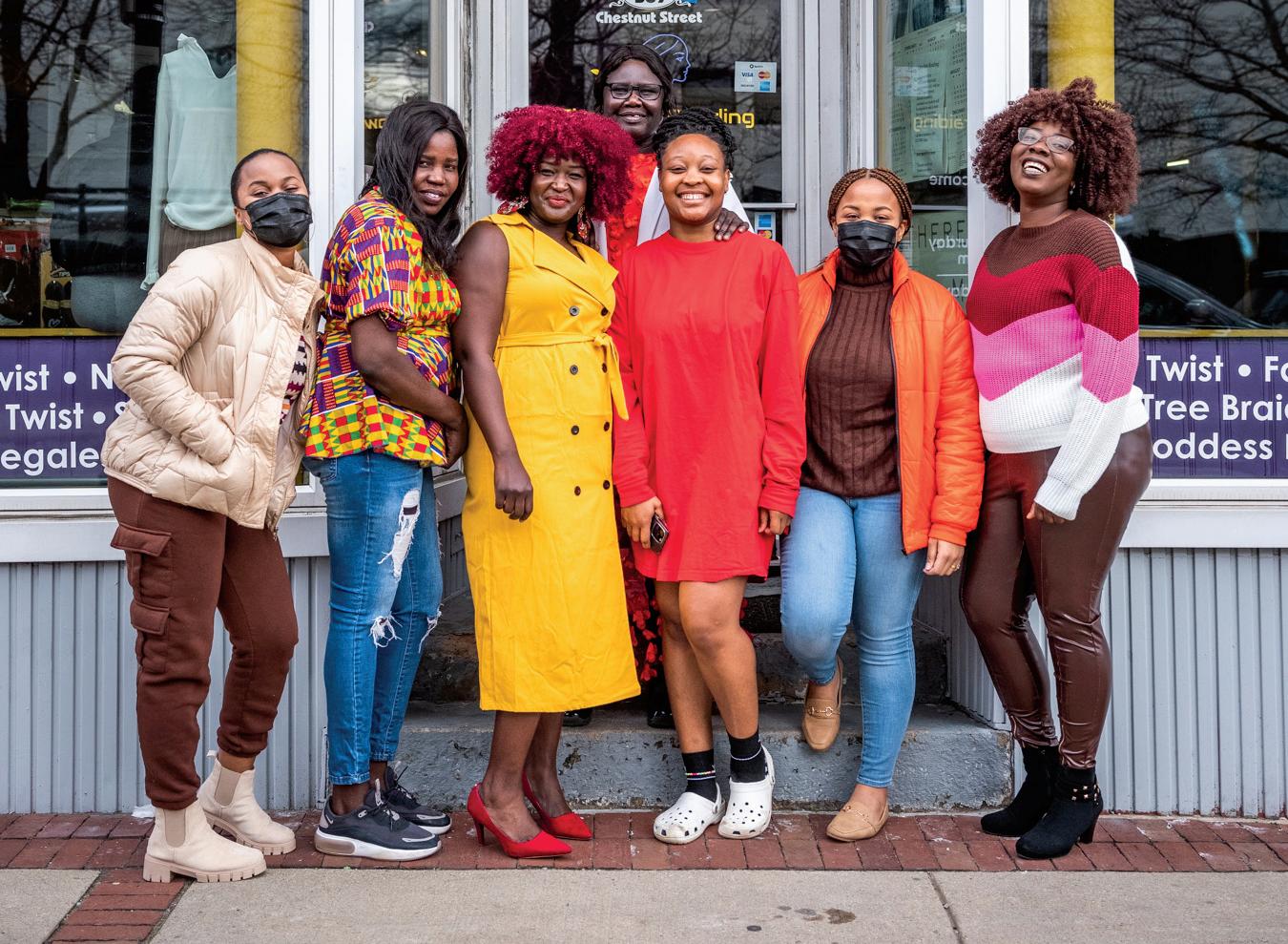
“I am originally from South Sudan. I left because of war at age 6, and I grew up and spent the next 10 years between Egypt and Syria as a refugee,” explains Dak. “Then I resettled in the United States in 2003 in Tennessee, and then I moved to New Hampshire in 2008.”
Dak says she enjoys great support from her husband, Suku. The couple has two sons, Joey and Wiji, and a daughter, Marah.
“I would love to pass on my business knowledge to my daughter,” says Dak.

Now she feels like she is in the right place at the right time to contribute to Manchester’s diversity and the state as a whole.
“I really love the diversity of the city,” says Dak. “And a lot of our clients are happy that they don’t have to travel out of state to get their hair braided.
“We welcome everyone at Glow Hair Braiding.” 603
10 603Diversity.com | Spring/Summer 2023
Sarah Dak (third from left) and her team of hair stylists specialize in giving customers creative braids that reflect her Sudanese culture.
Photo by Robert Ortiz
UPFRONT


603Diversity.com | Spring/Summer 2023 11
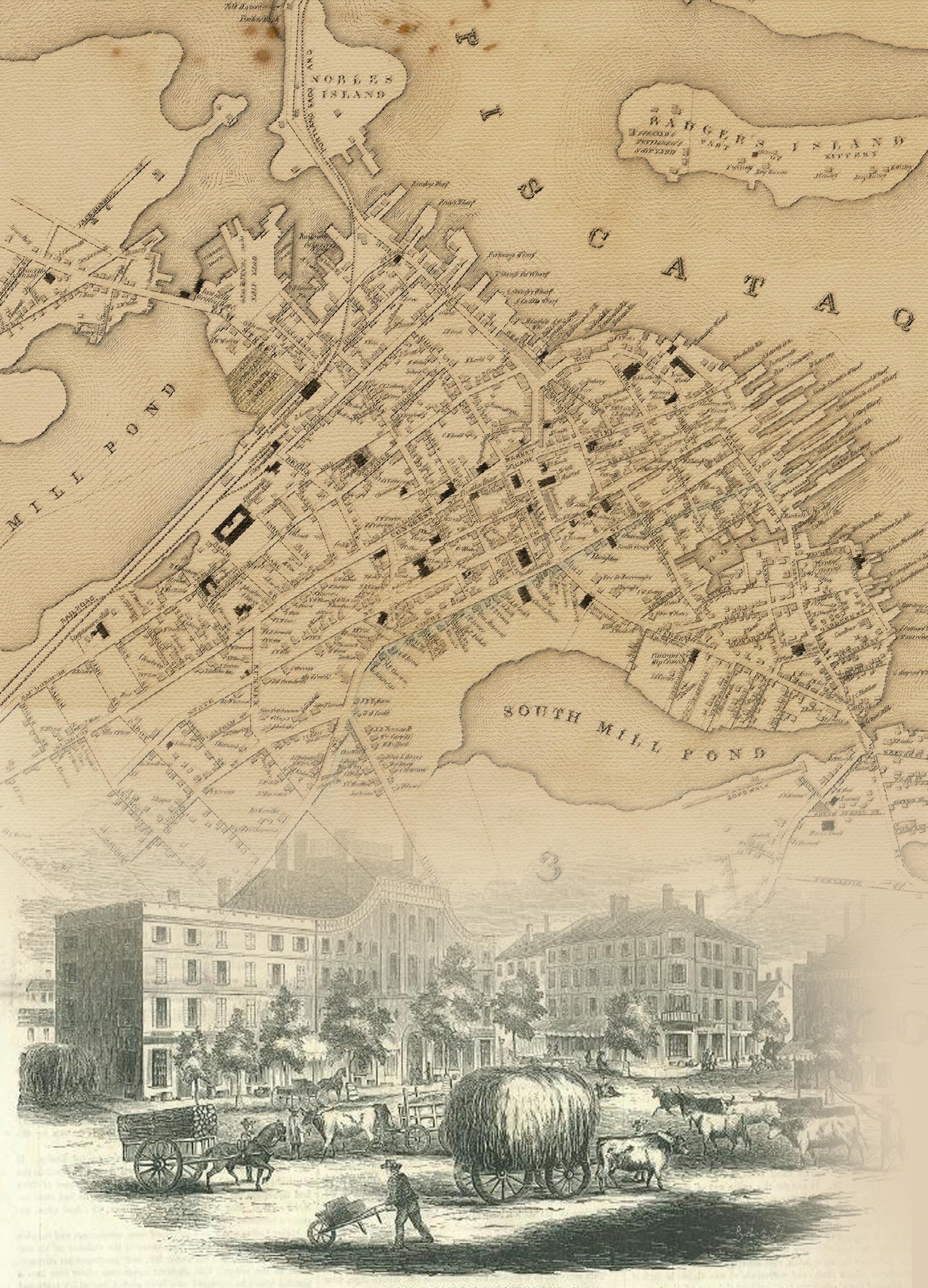
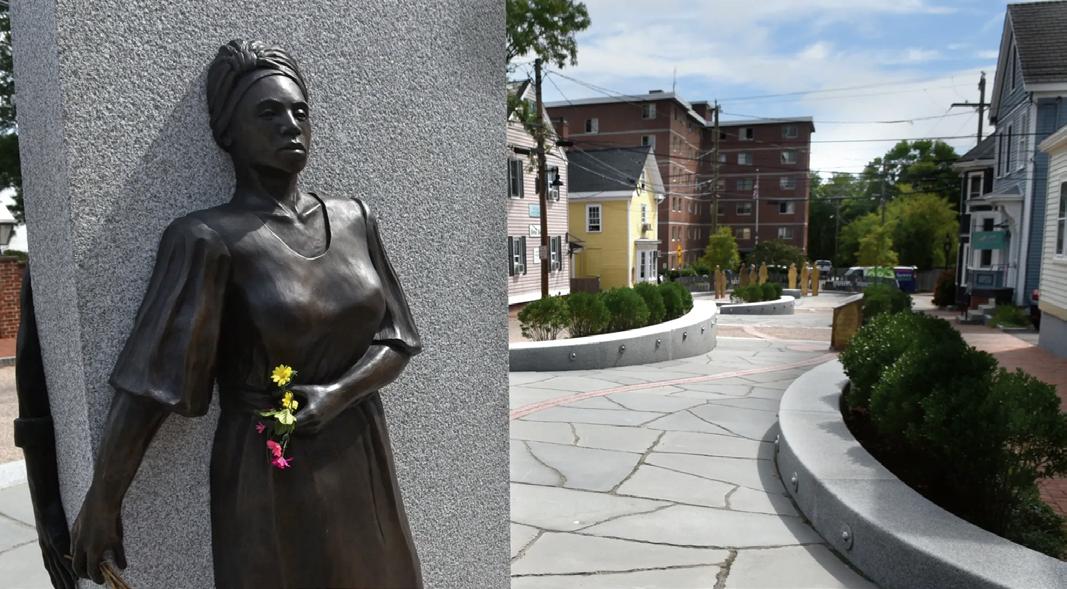
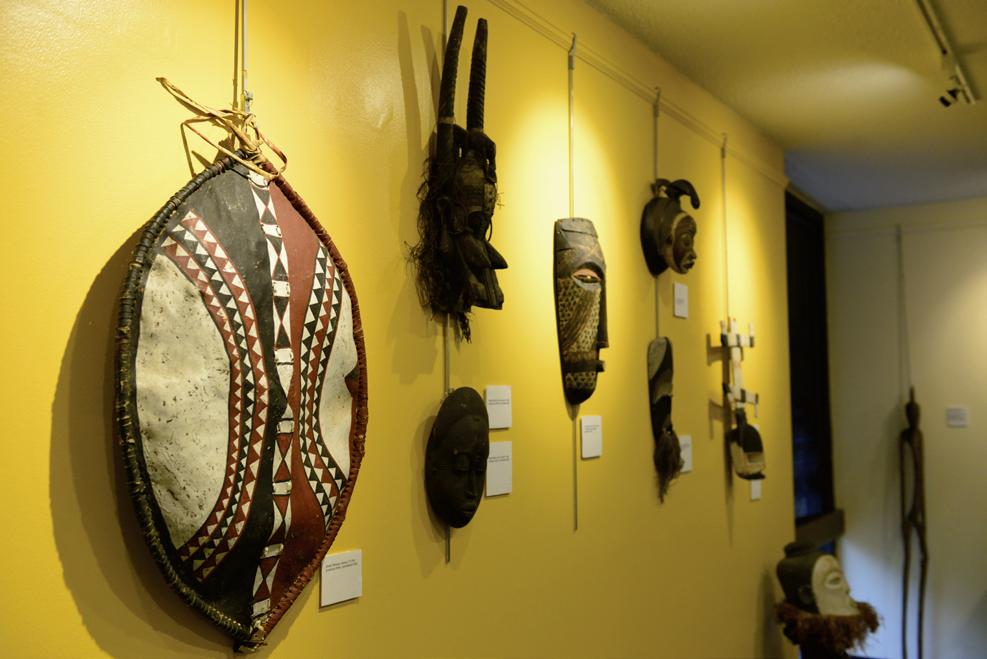
12 603Diversity.com | Spring/Summer 2023 400 CELEBRATION Black History Holds a Special Place in n BY BETH SANTOS Seacoast African American Cultural Center African Burying Ground Memorial Park Map of the City of Portsmouth, NH, from the original surveys of H.F. Walling, Civil Engineer, 1850, and Market Square in 1853. Courtesy of Wikimedia Commons. Photo courtesy of SAACC Courtesy photo
While at first glance Portsmouth may not appear to be a prominent destination for Black history, the city has made significant progress in recognizing its African American heritage and culture, serving as the home of the first Black Heritage Trail of NH, the African Burial Ground Memorial Park, as well as the home of the Seacoast African American Cultural Center, or SAACC.
Digging into Portsmouth’s past isn’t just a moment for reflection; it’s also an opportunity to reexamine the way history is told, and learn from it to create a more equitable, responsible and inclusive future. “In celebrating the 400,” said Sandi Clark Kaddy, president of SAACC, “we can look at the 400 years that have happened. We can look at the good. We can look at the not-so-good, and also remember the ugly that happened and how we can correct that as a community. We can’t change history. But what can we change as a community moving forward? That’s my hope for the future of Portsmouth.”
The significance of Portsmouth’s Black history over its 400-year history is not lost on Portsmouth Police Chief Mark Newport, who became the city’s first African American chief law enforcement officer in January 2020.

“There’s a lot of history,” says Newport. “If you delve into it, it’s endless. I think the Portsmouth 400 is an opportunity to display a lot of history that happened here in this city, for whatever interests you.”
Newport’s hiring as Portsmouth police chief may never have happened if it were not for African American community activ-
ists who set the stage for the city to honor its Black history.
Joanna Kelley became the first black person to be elected as Portsmouth Assistant Mayor in 2021. She is also the first African-American assistant mayor in New Hampshire history. She has owned Cup of Joe Café and Bar on Market Street for five years and helped organize the Love Blooms event in response to a rash of hateful graffiti that was spray-painted on several city businesses in February.
Kelley, 34, grew up in Rochester and has watched Portsmouth and New Hampshire embrace its black history during her lifetime. She is very pleased that Portsmouth is celebrating its black history as it marks its 400th anniversary.
“We may be not at full circle, but we are at an acknowledgement phase,” says Kelley. “While I think we have come a long way, there is still a lot to do to learn more about our black history.”
Vernis Jackson recalled that when she first came to Portsmouth in 1963, there were very few African Americans and little to no sense of community like she had known in Savannah, Ga. Little by little, Jackson set out to change that. Over the next 40 years, Jackson worked with city officials to create the Seacoast African American Cultural Center and headed up the committee that created the African Burial Ground Memorial Park.
“There was a void here and some kind of way I helped to fill that void,” Jackson says. “I am very, very happy about that.”
The Black Heritage Trail of New Hampshire, which is based in Portsmouth, has sought out numerous historic sites where Black history lives — and the group recently announced plans to create a mural to honor Ona Marie Judge Staines on the outside wall of its Court Street headquarters later this year.
Staines was born enslaved to Martha Washington but eventually escaped and lived her remaining life free in New Hampshire, according to Black Heritage Trail officials.

“Her story is really one of immense courage, and it tells us of the strength of the free Black community; it tells us of the soul of the Portsmouth community in the late 18th century,” says Barbara Ward, the coordinator of special projects for the Black Heritage Trail.
Portsmouth 400 officials also made it clear they want to reflect the contributions made by all city residents to “honor the city’s diverse and dynamic social, political, intellectual,
603Diversity.com | Spring/Summer 2023 13
As Portsmouth celebrates its 400th anniversary and its rich history this year, members of the Seacoast community want to make sure the contributions made by scores of enslaved Africans, Black residents and other people of color are also remembered.
Black Heritage Trail of NH
Portsmouth Police Chief Mark Newport
Photo by Robert Ortiz Courtesy photo
cultural, economic and spiritual history, from the time of the early Native American settlements to the present,” as stated on the Portsmouth 400 website.
This commitment is also appreciated by members of the Seacoast Latino community.
“I think it’s incredible to celebrate 400 years as a town and as a city,” said Chef David Vargas, owner of Vida Cantina in Portsmouth and Ore Nell’s BBQ in Kittery, Maine, and co-creator of the New England BIPOC Festival. “Not only do we have to celebrate this, but we also have to continuously tell the story and the history behind Portsmouth and what that means,” Vargas explains. “That is our due diligence as people that want to carry on the history of this town.”
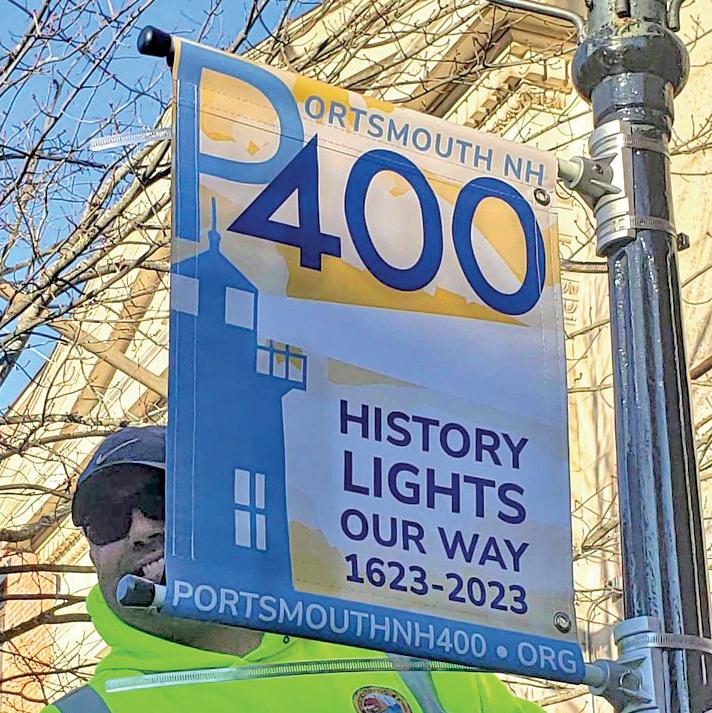
Carrying on Portsmouth’s history is a key mission for dozens of performances, historic lectures, tours and more. Here are some of the event highlights celebrating New Hampshire’s Black and Indigenous culture:
CREOLE SOUL: ZYDECO LIVES EXHIBIT | APRIL 10

A special exhibit running April 10 to June 10 at the Seacoast African American Cultural Center (SAACC) features 35-40 framed images by photographer Gary Samson who documented the work of Burt Feintuch, a traditional music ethnographer who interviewed contemporary zydeco musicians. Feintuch, who was a Portsmouth resident, passed away in 2018 while working on a book by the same name as the exhibit. Samson as well as Feintuch’s partner, Jeannie Banks Thomas, completed the book after his passing. On May 4, Banks Thomas will speak about the book at SAACC’s opening reception.

PORTSMOUTH JUNETEENTH CELEBRATIONS | JUNE 16-19
From June 16-19, Portsmouth will transform for Juneteenth, with multiple events to honor Black history and heritage and to commemorate the emancipation of enslaved people in the U.S. (and specifically the arrival of that emancipation to Galveston, Texas, on June 19, 1865). Gatherings include:
• The opening of the “IF YOU KNEW, LET IT BE US” art exhibit by mixed-media painter and art educator McKinley Wallace III at 3S Artspace Studio, as well as “The Sum of Us,” an exhibition at the Seacoast African American Cultural Center featuring the black-and-white drawings of popular visual storyteller Richard Haynes.
• The Juneteenth reggae festival, which celebrates the music of the African Diaspora and honors the legacy of roots reggae with Caribbean food, craft vendors and music from a variety of performers, hosted on the grounds of the living history museum Strawbery Banke and presented by the Black Heritage Trail of New Hampshire.
• A dance performance by Camille A. Brown and Dancers on June 18 called Reclaiming Black Narratives focused on elevating African Diasporic culture, hosted at the Portsmouth Music Hall.
• On June 19 (Juneteenth), join the Seacoast African American Cultural Center for a walk over the Kittery Bridge to the Portsmouth African Burying Ground, followed by a traditional African drumming ceremony featuring drumming and dance from the Akwaaba Ensemble hosted by the Black Heritage Trail of NH.
14 603Diversity.com | Spring/Summer 2023
Photo courtesy portsmouthnh400.org
Photo courtesy blackheritagetrailnh.org
“In celebrating the 400, we can look at the 400 years that have happened. We can look at the good. We can look at the not-so-good, and also remember the ugly that happened and how we can correct that as a community.”
–Sandi Clark Kaddy, President of SAACC
FREDERICK DOUGLASS READING JULY 1
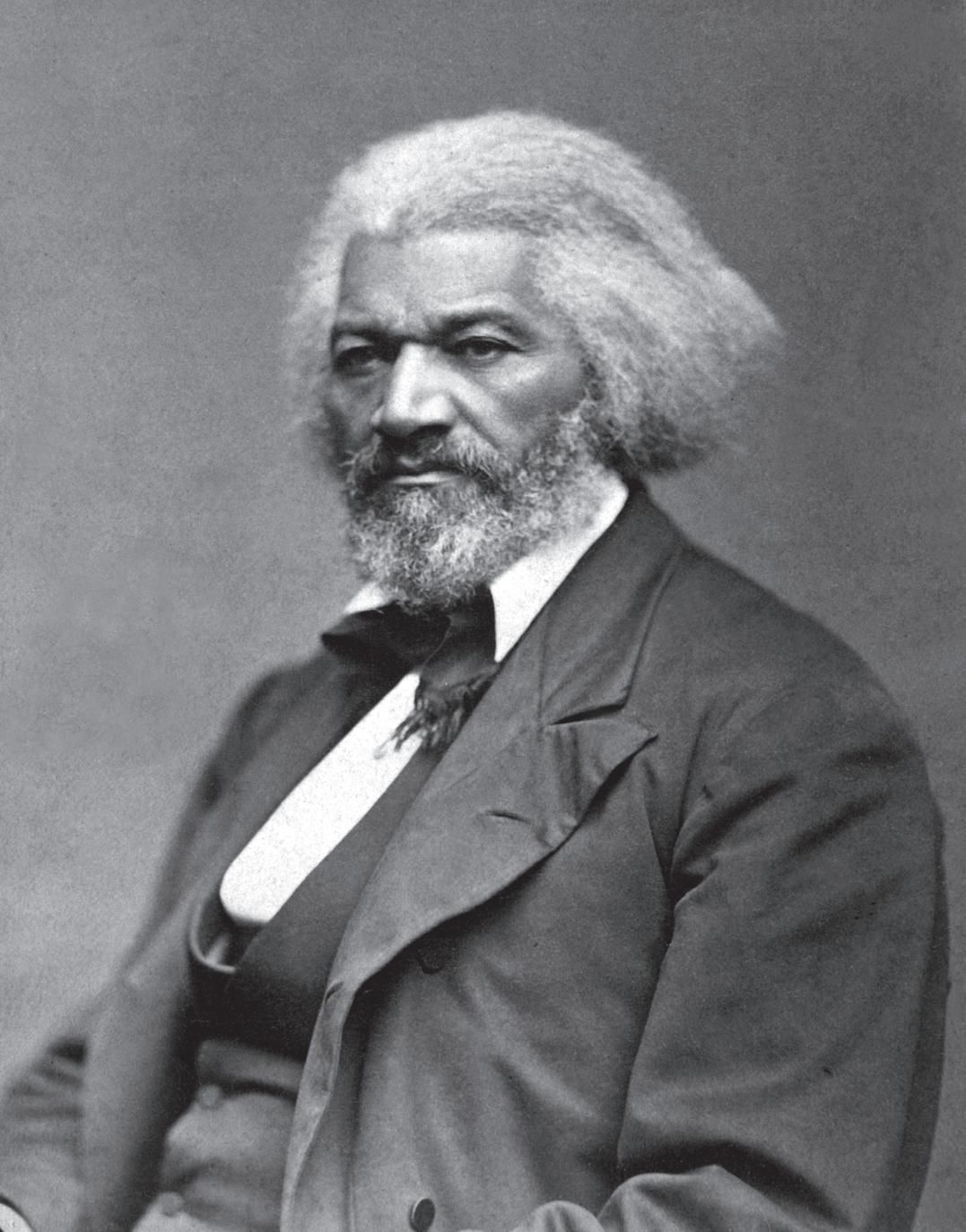
Every year, the Black Heritage Trail of NH hosts a reading of Frederick Douglass’ famous protest speech, “What to a Slave is The Fourth of July?” This year the speech will be read at Strawbery Banke’s Goodwin Garden with an opportunity for listeners to reflect on the speech’s continued relevance today.
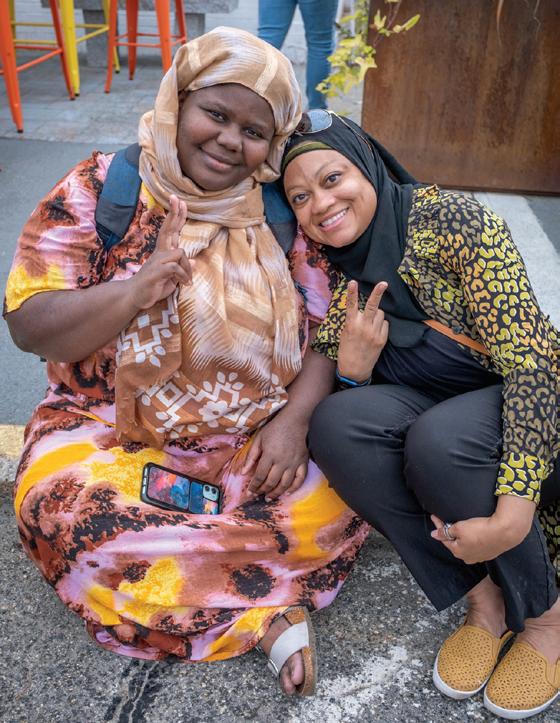
PISCATAQUA POW WOW AUGUST 12-13

Strawbery Banke will host an intertribal celebration of Native American culture and heritage featuring drumming by the Black Thunder Singers, storytelling, dancing and more.
NEW ENGLAND BIPOC FEST | SEPT 24
The brainchild of Portsmouth chefs David Vargas and Evan Mallet and café owner Joanna Kelly, the festival brings together hundreds of spectators, performers and participants for a day to celebrate the food, art and music that exists among cultures throughout New England. “We wanted to represent and give voice to the communities that aren’t really heard of and/or listened to throughout New England,” said Vargas.
“As a BIPOC community member, I didn’t realize how bad we needed this. We need our spaces to really have our voices be heard. And so that way we can talk with each other, and also show the community that we are here — let alone the Indigenous community itself. The first settlers are the people that owned this land. We need to represent it and hear their stories. And for us to be able to use our platform to have a space for that, that safe space for that is absolutely amazing to me.”
J. Dennis Robinson is widely regarded as one of New Hampshire’s leading historians. But even he was amazed when he first became aware of Portsmouth’s rich African history. Robinson recalls that he had a life-changing interview with Valerie Cunningham, creator of Portsmouth’s Black Heritage Trail, 25 years ago that changed the way he examines — and writes — his history books.
“Since (that interview), I’ve written a dozen history books and over a thousand articles,” says Robinson. “With each new project I ask myself: How did this moment in time impact people of color in a largely white state? Where are the women in this story? What was life like for children of this era, for Indigenous people, for immigrants, for anyone who was different? The more questions I ask, the more New Hampshire history makes sense and the more lively, honest and interesting our shared past becomes.”
Thanks to the efforts of community members and city officials, Portsmouth’s rich Black history will remain relevant and vibrant now and well into the future. Someone once said it takes a village. In this case, it takes a city to make sure its history that was created by people of many different cultures, faiths and diversity is remembered and celebrated for generations to come. 603
603Diversity.com | Spring/Summer 2023 15
Photo courtesy of Wikimedia Commons
Photo courtesy of strawberybanke.org
Photo by Robert Ortiz
Meet Mark Newport
PORTSMOUTH’S FIRST BLACK POLICE CHIEF
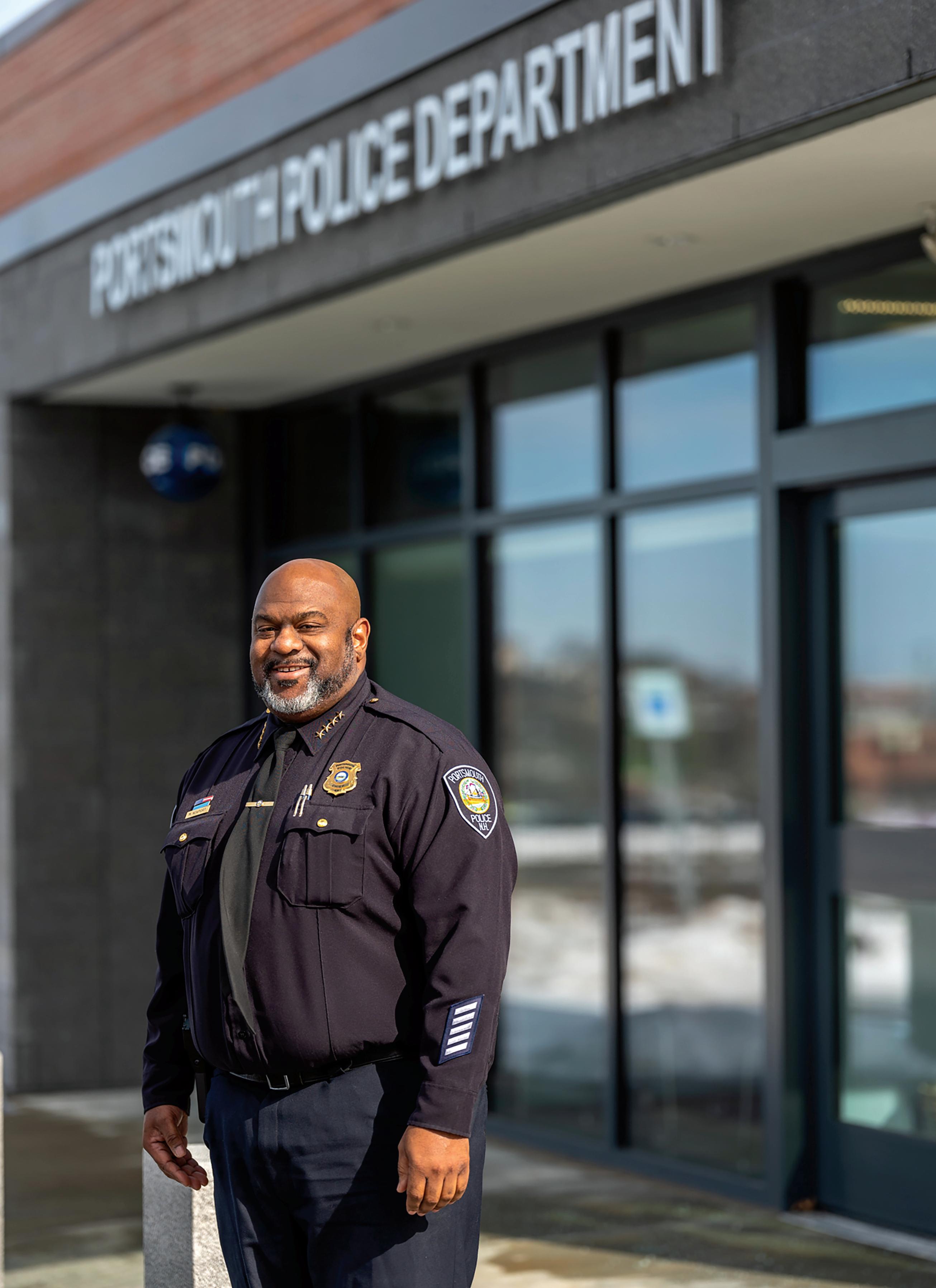 n BY BETH SANTOS
n BY BETH SANTOS
“The only way you can make effective change is to get yourself involved in it. With the experiences I’ve had in life, I’ve been very fortunate, but it hasn’t been smooth sailing. There have been bumps and hurdles. But it’s all about how you handle them and how you deal with them.”
16 603Diversity.com | Spring/Summer 2023
The Portsmouth 400 is bringing a lot more than just events to the City of Portsmouth. It’s also bringing a wave of visitors. Helping manage that influx while keeping the community safe is a key responsibility of the Portsmouth Police Department, which is now led by Police Chief Mark Newport, the first African American to hold that post.
“When I talk to people from other agencies and tell them that we have a community of 23,000 residents, but we have 70 police officers, they ask, how do you justify that?” Newport explains. “Well, come to our city. We have the most liquor licenses per capita in the state. We have way more restaurant seats and hotel accommodations than residents in our city. So, we’re busy.”
During an event, Portsmouth’s population can easily swell to five times its size. Such challenges are a lot different from what Newport experienced when he first joined the police force in 1995.
“When I first started, it was really a blue-collar town. Now it’s very affluent. Back then Portsmouth wasn’t such a desirable place to live. Then we started investing in the community and developing it. Now it’s a quaint, seaside community and a tourist destination. We’re in event mode from March until the end of the year,” Newport observes.
Newport of all people knows that places don’t just change without dedicated initiative, investment and time. When he arrived in New Hampshire as a University of New Hampshire student playing football for the Wildcats in the 1990s, he never thought he’d end up staying in the Granite State. “There were roughly 12,000 students and I’d probably be exaggerating if I told you there were 50 Black students,” he reflects. “If you told me back then that I would live in New Hampshire, I would have told you that you were nuts.”
But leaving the state after college to volunteer with AmeriCorps made him realize how much he had grown to love this place and the quality of life. Living an hour from Boston on the Seacoast and an hour from the White Mountains really felt like “the best of all worlds.”
But it wasn’t just Portsmouth’s ecological diversity that kept Newport around. He also saw the way Portsmouth had invested not just in its infrastructure but in its people. “Portsmouth is committed to being a racial justice city. They’ve invested in diversity, equity and inclusion within the city. They’re not just saying it, but they’re actually trying to do it,” Newport says.
“There’s a lot of Black history here in Portsmouth,” he continues. “More so than I even know. When people come here, they’re kind of in awe. The African
Burial Ground, the Black Heritage Trail — there’s a lot of history here, reaching back to more than 400 years. So, I think when people come here, and they see all the diversity that has been here in the past and the present ... they might not see a melting pot, but they can feel comfortable and safe. Our police department is very visible, people see us all around, and not in a bad way. We like to be visible and to have our officers out there, engaging with the community. After George Floyd, there are a lot of communities that don’t have that — it was more of an ‘us versus them.’ We want to be a part of the fabric of our community, and we want the community to be the fabric of our department.”
Becoming the first Black police chief in January 2020 at the same time the COVID-19 pandemic hit and the national racial justice reckoning that ensued after the death of George Floyd gave Newport plenty of challenges during his first year. But he’s taken them in stride.
“The only way you can make effective change is to get yourself involved in it. With the experiences I’ve had in life, I’ve been very fortunate, but it hasn’t been smooth sailing. There have been bumps and hurdles. But it’s all about how you handle them and how you deal with them. Whether you let them hold you back or you just keep pushing forward. This has always been my mentality,” Newport says.
Newport has one main hope for Portsmouth’s next 400 years: that it continues to grow into a diverse, inclusive and multicultural city where all feel welcome. “I think Portsmouth is on the cusp of becoming a world-renowned city. And I think 20 years from now maybe it will be that city. We have people coming from all over the world. The city has so much to offer that it would be selfish for us to try to keep this in a bubble and keep it all to ourselves.
“Honestly, I think it’s a model city that a lot of other places can learn from,” says Newport. “And it hasn’t always been that way. It took the right leadership and the right engagement from the community. And the community is invested within the city. It takes both sides to make that happen and make the city the way it is.” 603
603Diversity.com | Spring/Summer 2023 17
“Honestly, I think it’s a model city that a lot of other places can learn from.”
Photo by Robert Ortiz
Along the Way DAY TRIPS INTO BLACK HISTORY
n BY ROBERT COOK
Earlier this year, “The Embrace” sculpture was unveiled on Boston Common to celebrate the moment when Rev. Dr. Martin Luther King Jr. and his wife, Coretta Scott King, embraced after learning that Dr. King won the Nobel Peace Prize.
Certainly, traveling to Boston to view this piece of art makes for a great DEI road trip, but there are also many historical sites and markers that honor New Hampshire’s Black history that are worth visiting as well.
The Black Heritage Trail of NH (BHTNH) offers a self-guided tour for people who want to explore sites around Portsmouth. Here, African American history lives on through the organizational and artistic efforts of Granite State residents. The BHTNH website is a great resource to study the map and read about the significance of each location.

Here are a few historic markers and sites worth exploring in Portsmouth and beyond.
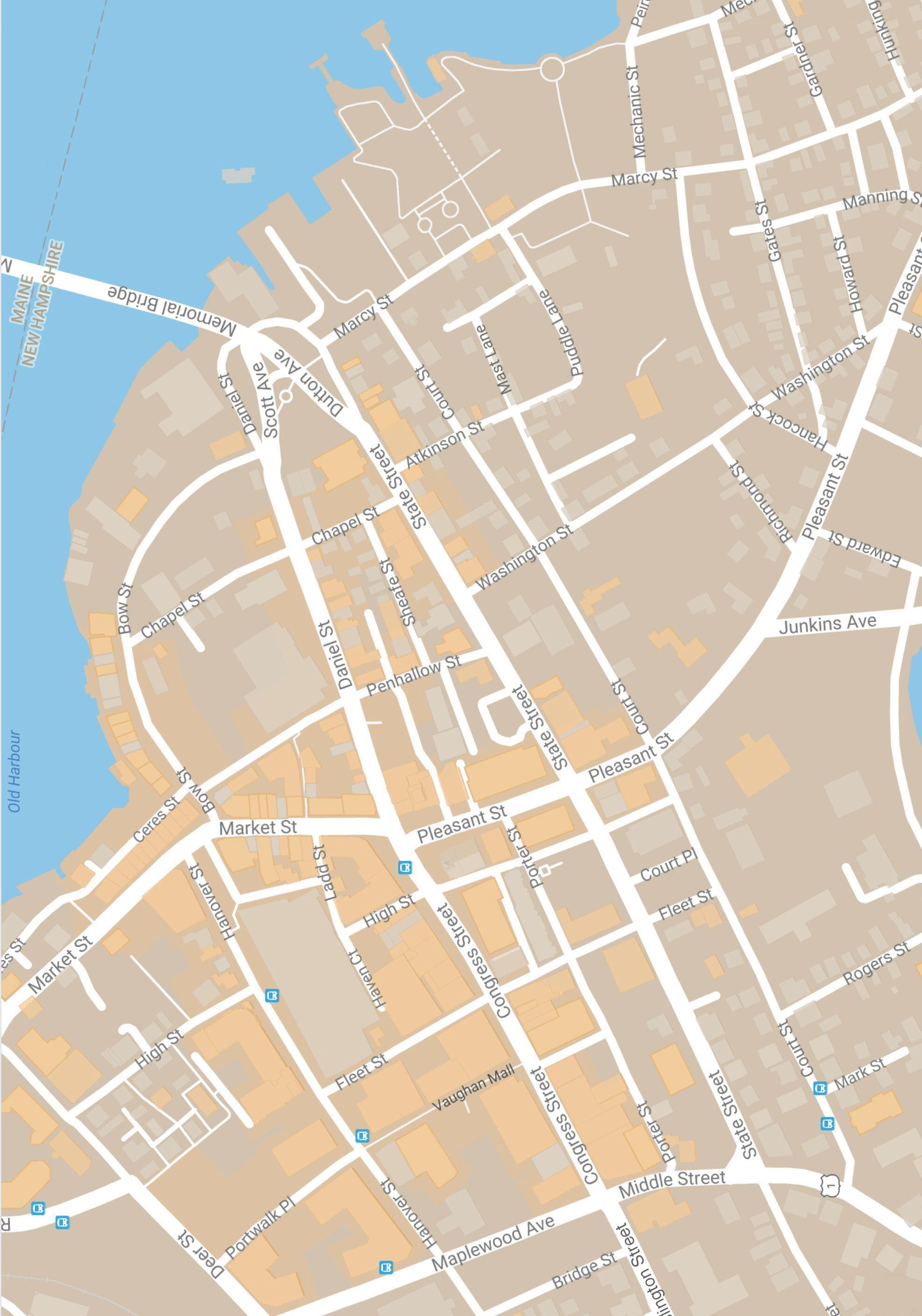
Portsmouth, Birthplace of NH Black History
As early as 1645, enslaved Africans were known to have been part of the Portsmouth community. Records show Portsmouth merchants participated in the slave trade in the 1680s, where male children and young men were sold from ships or on the dockside at what is Prescott Park today.
African slaves were part of the city’s most famous families. This included the households of leading citizens such as William Whipple, a signer of the Declaration of Independence, Gov. John Langdon and Gov. John Wentworth. The 1775 census showed the city and surrounding Seacoast communities included 656 enslaved Africans.
18 603Diversity.com | Spring/Summer 2023
1 2 3 4 5 6 7 8 9 10 11 12 13 14 15 16 18 17 19 20 22 23 21 24 ChurchSt
1. Black Heritage Trail of NH office
2. Governor John Langdon House
3. William Pitt Tavern
4. Docks & view of Portsmouth Naval Shipyard
5. Sherburne House
6. South Meeting House
7. NH Gazette [private]
8. Cooper House & Beauty Shop [private]
20.
9. Stoodley’s Tavern 10. Penhallow House 11. Warner House 12. Saint John’s Church 13. Waterfront 14. Moffatt-Ladd House 15. Black Whipple House [private]
16. Meeting Rooms 17. Town Pump and Stocks 18. North Church 19. Pomp & Candace Spring House & Bakery
The Music Hall 21. John Paul Jones House 22. Rockingham House
[private]
23. African Burying Ground 24. South Church
Courtesy of blackheritagetrailnh.org
Map courtesy of blackheritagetrailnh.org. Please visit the website for more information.
The African Burying Ground Memorial Park, dedicated in 2015, is one of the most well-known Black history sites. In 2003, a construction crew unearthed the graves of 13 enslaved Africans. The city created the park to honor them and remember this aspect of the city’s history.
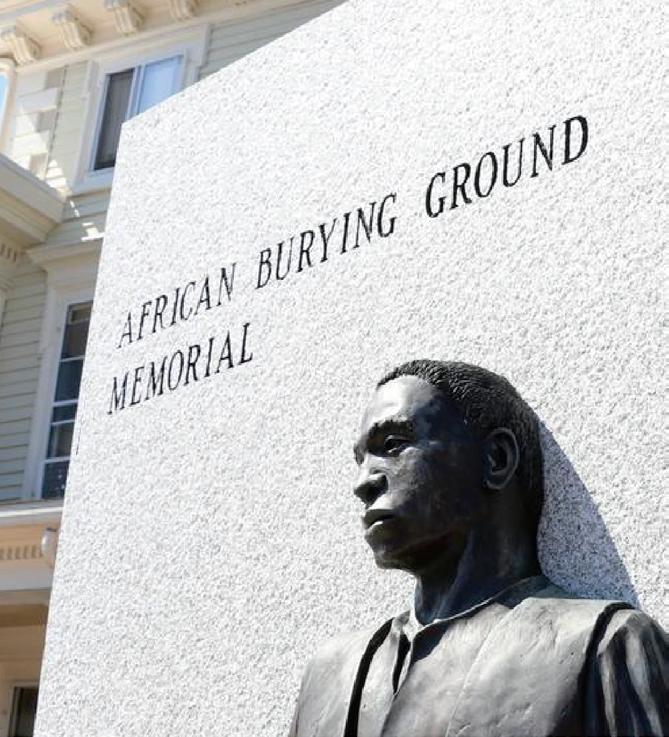
On the corner of Pearl and Hanover streets, a marker displayed on the side of the building known as “The Pearl” shows where New Hampshire’s first Black church was situated. The People’s Baptist Church was founded in 1915 and remained in that location until 1968. A young Rev. Dr. Martin Luther King Jr. preached there in 1952 during the infancy of the Civil Rights Movement.
A short walk away is the Seacoast African American Cultural Center, housed in the Portsmouth Discovery Center. It contains art exhibits and information about the Seacoast’s rich African American history. Literally everywhere you go to explore Portsmouth’s history, important currents of Black history are intertwined.
Just Across the River –Black Yankees
Kittery, Maine’s early African residents used their own traditions of resilience and mutual aid to establish one of Maine’s earliest African American communities. Black people lived here from colonial slavery times to the present. A marker lies just beyond the Memorial Bridge in John Paul Jones Memorial Park.
Ona Marie Judge Staines: Live Free or Die
In 2022, Gov. Chris Sununu signed a bill that declared May 21
as Ona Marie Judge Day. It honors the day in 1796 when Ona Maria Judge Staines left the residence of George and Martha Washington in Philadelphia and boarded a ship to Portsmouth. She lived the remainder of her life in New Hampshire free but a fugitive. A marker to remember Staines sits in Greenland along the shores of Great Bay. In Portsmouth, a mural honoring Staines has been commissioned for the wall of the Court St. headquarters of the NH Black Heritage Trail.
Prince Whipple and the Revolutionary War
Prince Whipple was a slave owned by William Whipple. At the Whipple House, a marker honors Prince Whipple and the life he lived. Visitors can learn about him (and the other Portsmouth slaves who joined him) in signing the Petition of Freedom, in which slaves requested their freedom from the New Hampshire General Assembly in 1779. Prince Whipple had firsthand knowledge of the debates for Independence and played a role in the NH militia. Prince Whipple’s wife, Dinah, established the First Ladies African Charitable School.
Frederick Douglas Spoke Here
The Abolitionist movement that led up to the Civil War was keenly felt in New Hampshire with its share of supporters and detractors. On at least one occasion, Frederick Douglas visited and spoke in the Town of Pittsfield.
It was 1842 and Douglas was 25 years old. He gave his lectures at the Pittsfield Meeting House and did not receive much of a reception. Between his first and evening lecture, Douglas sat on a stone wall in the rain. No one offered him shelter until U.S. Rep. Moses Norris took pity on him and invited him to his home.
I n the Shadow of Mount Monadnock
In the Monadnock Valley, Black history day-trippers can learn about two African Americans who called Hancock and Milford home. Here are their stories.
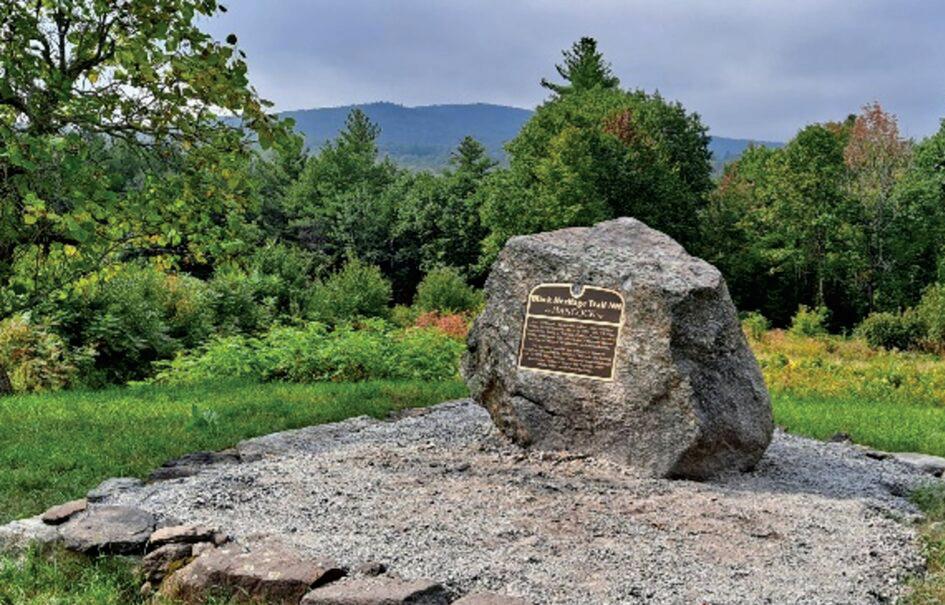
A Famous Author in Milford
Harriet Wilson, a New Hampshire African American woman, was the first Black person of any gender to publish a novel. “Our Nig, or Sketches from the Life of a Free Black,” was published in 1859.
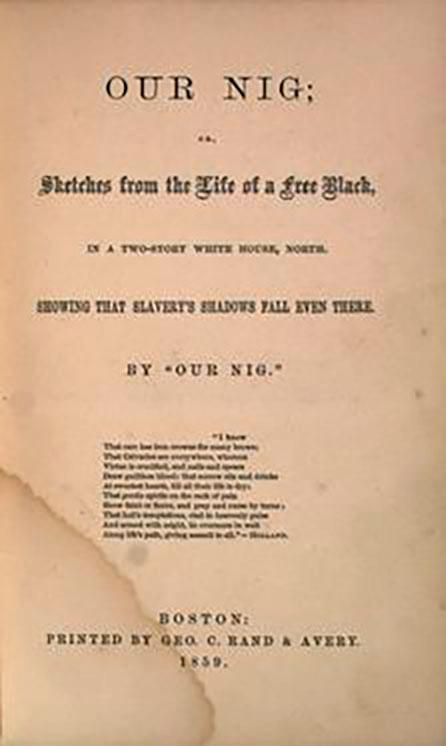
Born a free person of color in New Hampshire, Wilson was orphaned while young and bound until the age of 18 as an indentured servant. She struggled to make a living after that, marrying twice. Her only son, George, died at the age of 7 in the poor house where she had placed him out of desparation while trying to survive as a widow. Wilson was later associated with the Spiritualist church and gave public lectures about her life. A statue honoring Wilson is in Milford.
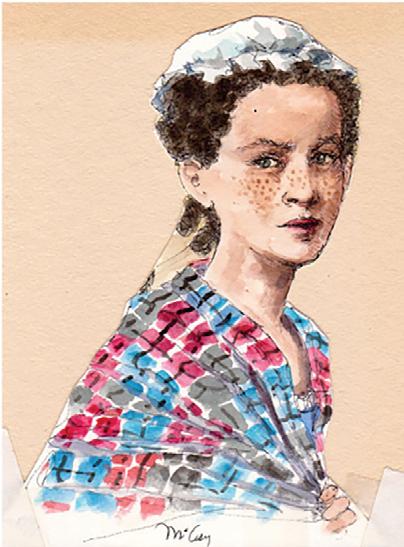
A Short Hike to Jack’s Pond in Hancock
Nestled below the summits of Mount Skatutakee and Thumb Mountain in Hancock, Jack’s Pond is a remote place. It is named after Jack, a formerly enslaved man who became free and lived near the pond between the late 1700s and his death in 1826. The pond and surrounding land is now protected and managed by the Harris Center for Conservation Education.
Here, visitors can learn about Jack’s close connection to the Due family. James and Hannah Due, along with their children, Elliot and Betsey, lived on land they purchased in Hancock from the 1780s to the 1850s. They gave Jack his land, so he could live as a free man. 603
603Diversity.com | Spring/Summer 2023 19
Courtesy of blackheritagetrailnh.org
Courtesy of blackheritagetrailnh.org
Courtesy of Harrietwilsonproject.net
DEI Panel Enhances NH Summer Camp Experience
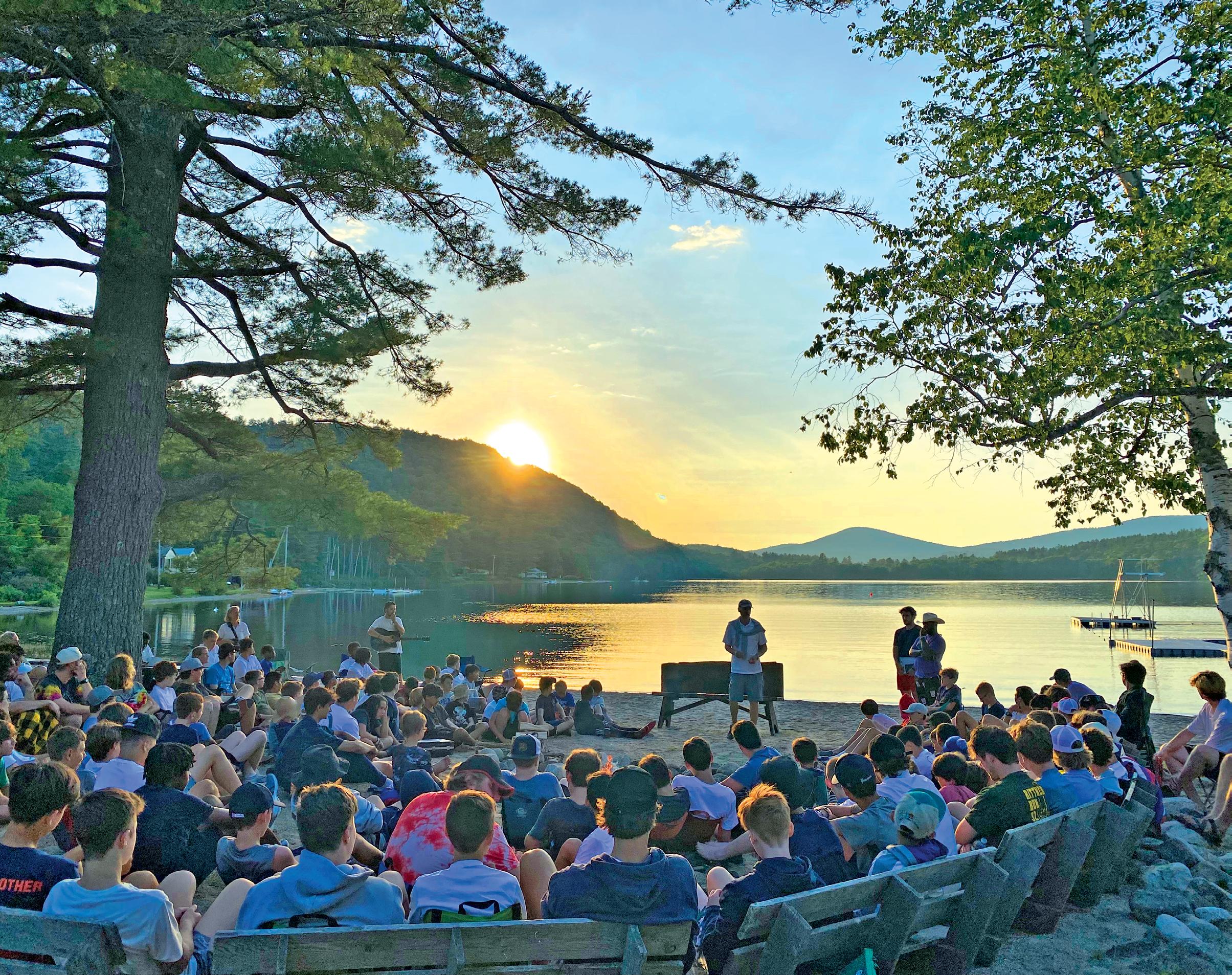 n BY BETH SANTOS
n BY BETH SANTOS
Long before DEI took hold in New Hampshire, summer camps and programs that introduced the White Mountains and the wonders of nature to children and teens from all walks of life have served as a powerful force to break down barriers and inspire unity. Their role has never been more important.
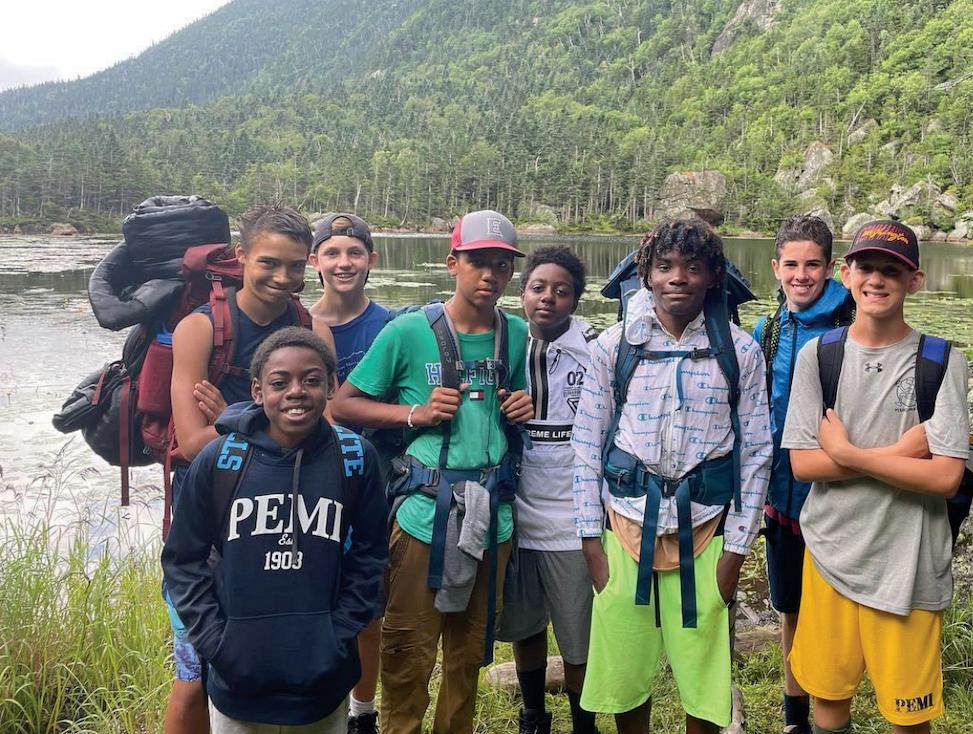
prides itself on its commitment to diversity by giving teens of diverse backgrounds
opportunity to enjoy New Hampshire together.
photos 20 603Diversity.com | Spring/Summer 2023
Camp Pemigewassett in Wentworth
the
Courtesy
Camp Pemigewassett in Wentworth, one of the oldest residential summer camps for boys under the same family ownership in New Hampshire and the U.S., has taken it a step further since their staff and board of directors formed a DEI committee to ensure they are as inclusive and accommodating as possible.
Pat Clare, Camp Pemi’s assistant director, saw firsthand how this body can make a positive difference when issues arise.
Last summer, Clare took 10 boys on an overnight hiking trip to Carter Notch, staying at the Carter Notch Hut, one of the Appalachian Mountain Club’s high huts along the trail. Taking boys up to the mountains to camp — for many, their very first overnight camping experience — was something that Clare loved to do. The boys were Black, Hispanic and white, hailing from New Hampshire and beyond.
Clare enjoyed giving the boys a mental and physical challenge that they would experience together. It was a learning opportunity that they’d be able to draw upon for years to come, remembering how to push forward through discomfort and to forge ahead even when it rains. “It’s not an easy hike,” Clare explained about the Carter Notch Trail. “You wake up from the hut on the second day, and it’s a two-mile straight ascent from there.”
On one morning, Clare noticed something. He watched as some campers struggled with the equipment they had brought from home — backpacks that weren’t made for the outdoors or hiking boots that weren’t the best quality. It dawned on him that while New Hampshire summer camps like Camp Pemi had been working hard to create opportunities for boys to become strong community members and thoughtful citizens, they had been overlooking the
fact that the playing field still wasn’t level. That included the very non-level, two-mile ascent up a mountain.
Following the camping trip, Clare brought his concern to the committee. This winter, the DEI panel created a collection program to purchase new and used hiking gear, ensuring that all campers are properly outfitted. This is one of several ways the committee is looking at to improve their summer camp experience.

The committee was formed last summer and consists of 10 staff members, former campers and other friends of the organization. They meet monthly to discuss how Camp Pemi can be more welcoming and inclusive for all and provide bimonthly recommendations to the camp’s governing board of directors. Every year, Camp Pemi offers over 170 campers, between the ages of 8 and 15, a summer where they unplug from technology and embrace the outdoors through activities ranging from canoeing to studying nature, music and hiking. Last year at Pemi, campers came to New Hampshire from 25 states and eight countries to spend three to seven weeks.
Camp Pemi created the committee after recognizing its efforts to create an inclusive and safe space for all campers would inevitably fall short if it focused only on “the views of a largely homogenous and satisfied population.”
Their work focuses on four key areas of progress, which they developed after sending out a survey to over 239 respondents: hiring a more diverse staff; addressing inequities to access quality gear; forming partnerships with schools; and offering scholarship funds to help address financial need. The camp has also incorporated a land acknowledgement into its weekly campfire tradition, in consultation with the New Hampshire Indigenous Collaborative Collective. Camp Director Kenny Moore explains that this represents an opportunity to pay homage
to the Abenaki and other Indigenous people who inhabited the Great New Hampshire Woods.
“My son, Jackson, has been a camper at Pemi for seven years. It’s been a great experience to work with the board and Pemi families on updating and strengthening Pemi’s DEI policies from gear to programming to campers and more,” says Lisa Heller, Camp Pemi’s DEI committee chair. “The commitment to DEI is present in every aspect of camp life at Pemi, and the results have been measurable and gratifying over the past few years.”
Moore points out that New Hampshire has more than 100 summer camp programs that fall under the umbrella of the NH Camps, which promote inclusivity and access. Moore says that Camp Pemi believes the DEI Committee is an opportunity to do more to share the joy of summer camp with New Hampshire’s increasingly diverse population.
Using the great outdoors to foster unity and inclusion is nothing new for New Hampshire’s summer camp culture. For decades, camps have brought together individuals from different geographies and world views and taught them the importance of collaboration and coexistence. Programs like the Fresh Air Fund — which began in 1877 and brings kids from underserved communities to summer camps — have locations in New Hampshire and Vermont. This has often resulted in life-changing experiences for participating kids and their host families.
“The world has changed a lot since Pemi was founded in 1908,” Moore continues. “We need to adapt to fulfill our mission to be relevant and supportive. We love getting campers outside to explore the wonderful great outdoors. There’s no better place than New Hampshire for them to explore the mountains, rivers and lakes, all the while learning so much about themselves.” 603
603Diversity.com | Spring/Summer 2023 21
David Vargas
JAMES BEARD SEMI-FINALIST FOR OUTSTANDING

CHEF
n BY RONY CAMILLE
While David Vargas has gained plenty of notoriety for his Mexicanstyle cuisine here on the Seacoast, he never imagined he would be recognized by his culinary peers as one of the top chefs in the nation.
The 45-year-old chef and restaurateur of Vida Cantina in Portsmouth and Ore Nell’s Barbecue in Kittery, Maine, is among the 20 semi-finalists nominated as the James Beard Award Outstanding Chef in January. The Beard Award is one of the most coveted honors in the culinary world. It is akin to a musical artist winning a Grammy or an actor winning an Academy Award. The winning chef will be announced in Chicago in June.
Vargas was nominated as “a restaurateur who uses their establishment(s) as a vehicle for building community, demonstrates creativity in entrepreneurship, integrity in restaurant operations, and is making efforts to create a sustainable work culture while contributing positively to their broader community.”
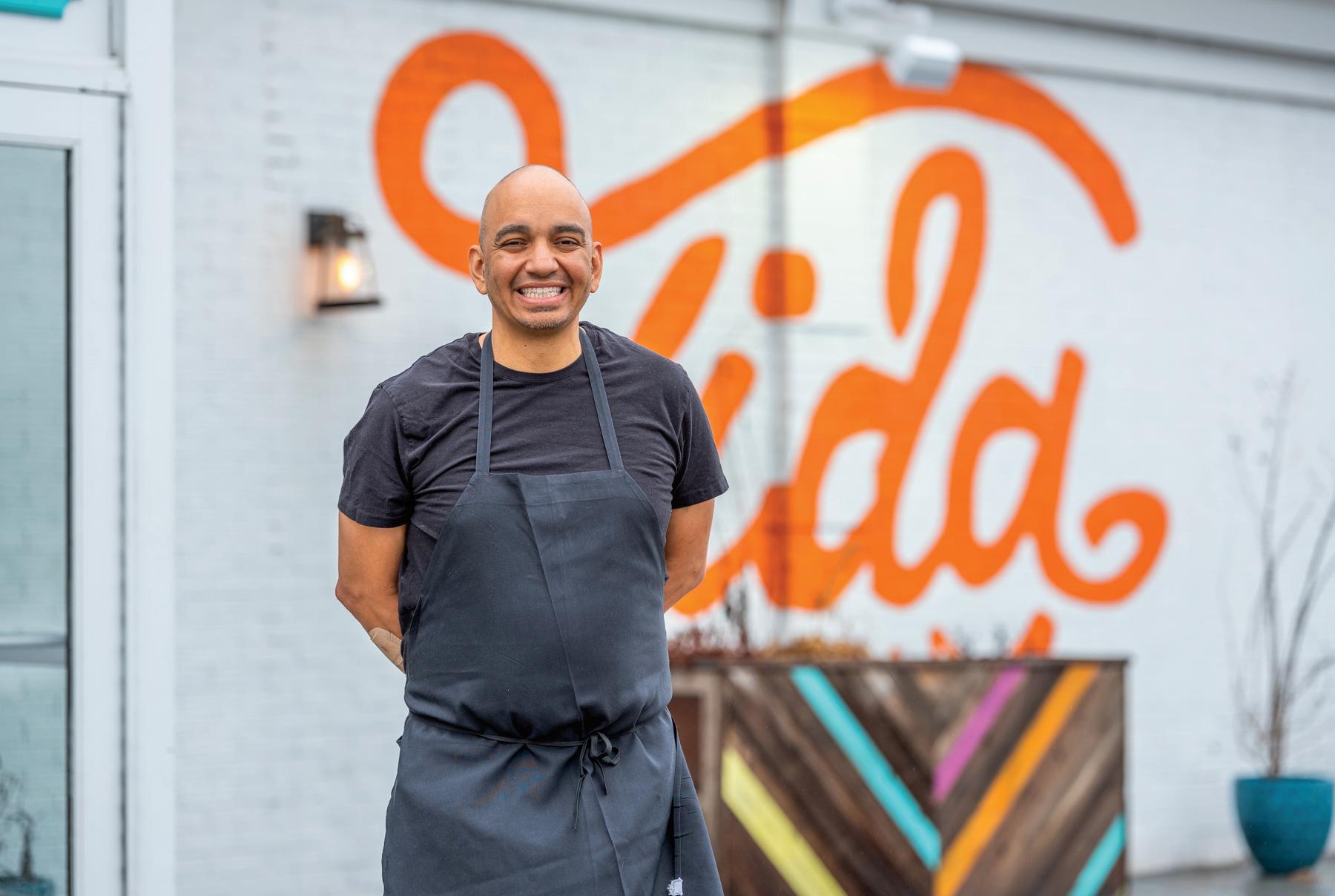
While the restaurant has received regional accolades from the James Beard Foundation, it’s the first time Vargas has made the Outstanding Chefs list.
“I mean, every time somebody says congratulations to me, I still get tingles all over. You know, it’s unreal. It’s absolutely unreal for sure,” Vargas says.
“I think one of the most common things that people say besides congratulations is: ‘What’s the next step?’ And I say, ‘Does there really have to be a next step?’ Like, this is it for me. You know, I’m good. I didn’t know a little taco shop out in New Hampshire would get so much publicity as it is. We’re just doing what we’re doing,” Vargas says.
Vargas learned about his nomination the morning the list was released. He and his family were in Stowe, Vt., to enjoy a day of snowboarding. He explains that he and his wife looked at the list and didn’t see his name at first glance. But upon further review, Vargas says they saw his name listed in the James Beard semi-finalist category.
“I was definitely in tears,” says Vargas. “To be recognized as one of the top 20 in America, that’s absolutely insane.”
Since 2011 Vargas, who originally hails from southern California, has been on a mission to change the narrative of how Mexican cuisine is perceived among the locals while using local ingredients.
Vargas’ affection and pride for his line of work stem from Mexican culture, which he believes is centered around family, food and upbringing. His parents are natives of Zalatitan, a community outside Guadalajara, Mexico, and ran a taqueria when he was growing up.
While this recognition clearly humbles Vargas, his family and his team, the work continues.
“You know, I do what I do not to get recognized for it,” he says. “I do what I do to help our community. And that’s the most important thing to me. Everything else that comes along with it, I feel just super blessed beyond it — give it up to the higher power or whatever that is or whoever it is,” Vargas explains.
Vargas has also established The New England BIPOC Festival. The event will be held in Vida Cantina’s parking lot on September 24 and will feature diverse food, art and culture. Making sure every branch of the BIPOC community is heard daily is important to Vargas.
“My mantra is basically ‘community to table,’” he says, “It’s not really farm to table anymore. It’s about the community and how I can bring it — use the platform of my restaurant, the tables of my restaurant, to basically get that word out there. People are starting to understand it. But for me to say it’s solidified and we’re there, no, not at all, because there is so much work to be done.” 603
603Diversity.com | Spring/Summer 2023 23
“My mantra is basically ‘community to table.’ It’s not really farm to table anymore. It’s about the community and how I can bring it — use the platform of my restaurant, the tables of my restaurant, to basically get that word out there.”
Photos by Robert Ortiz
Spice Up SummerYourGrill with a Dash of Diversity

Every culture has a unique style, distinct flavors and culinary magic to create exciting dishes when they take to their backyard barbecues. Just about everybody loves to break out the barbecue and get grilling once warm, sunny weather returns to New Hampshire. But the usual fare of hamburgers, hot dogs, chicken and steak can lose its allure after so many cookouts. Thanks to New Hampshire’s robust culinary diversity, several Granite State chefs are ready to offer some suggestions to spice things up.
n BY RONY CAMILLE
KOREAN BBQ GRILLING
ONETA MODERN THE OFFICE LOUNGE, RYE
Korean barbecue, or Gogigui, is a popular barbecue style involving marinated beef, pork or chicken on a tabletop grill.
The meat is often marinated in a sweet and savory sauce made from soy sauce, sugar, garlic and sesame oil. Once cooked, the meat is often wrapped in lettuce leaves and served with rice or various side dishes, such as kimchi and pickled vegetables.
Oneta Modern offers this grilling fare at the Office Lounge in the Seacoast town of Rye.
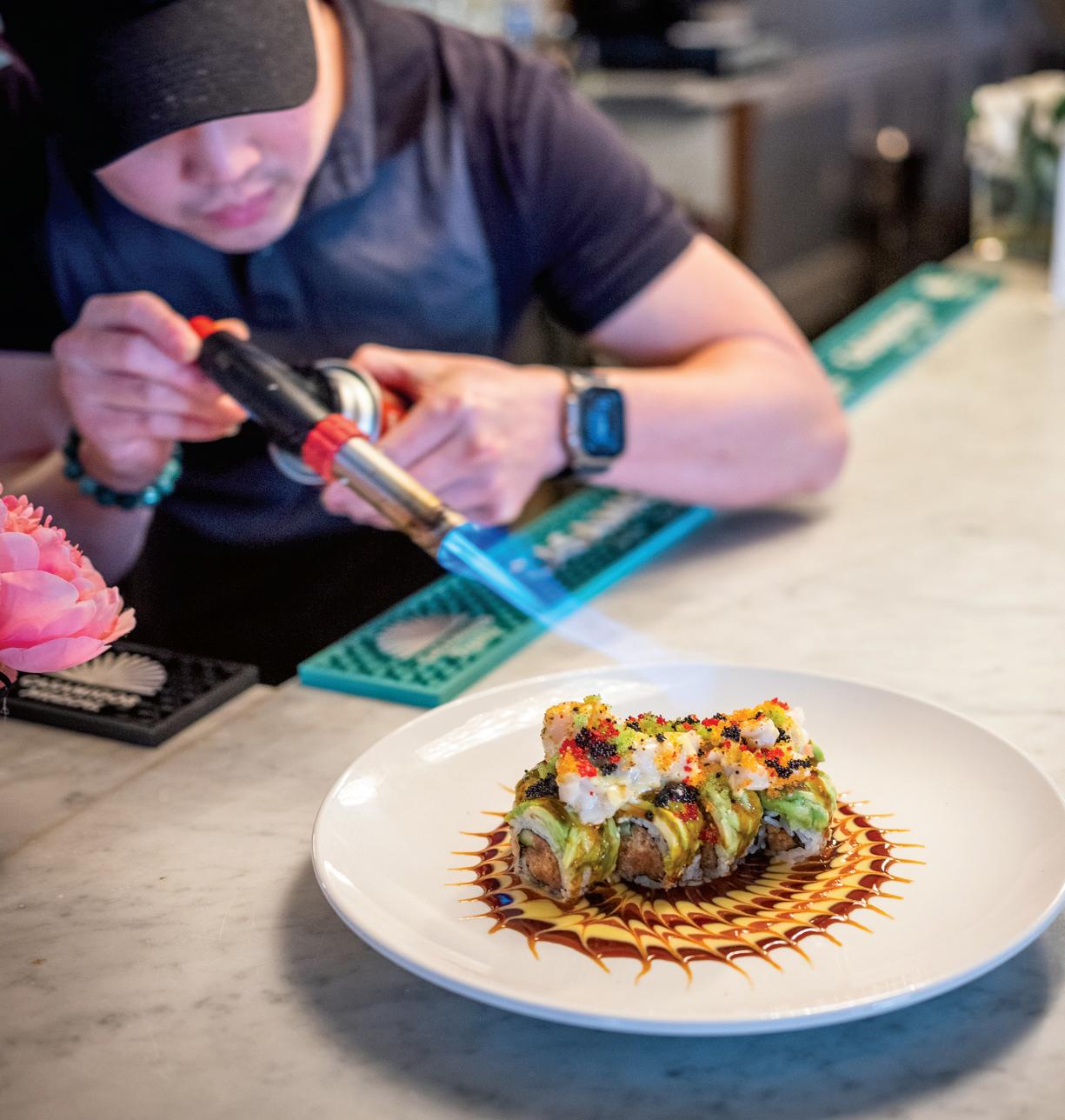

Modern describes herself as Black and Korean — her mom is Korean and her father is African American.
She says anyone can replicate Korean BBQ Ribs or a Korean Beef Taco, two of her offerings, at home. She starts by making a simple marinade at home which she uses while hosting “Sunday Fundays” with her family and friends.
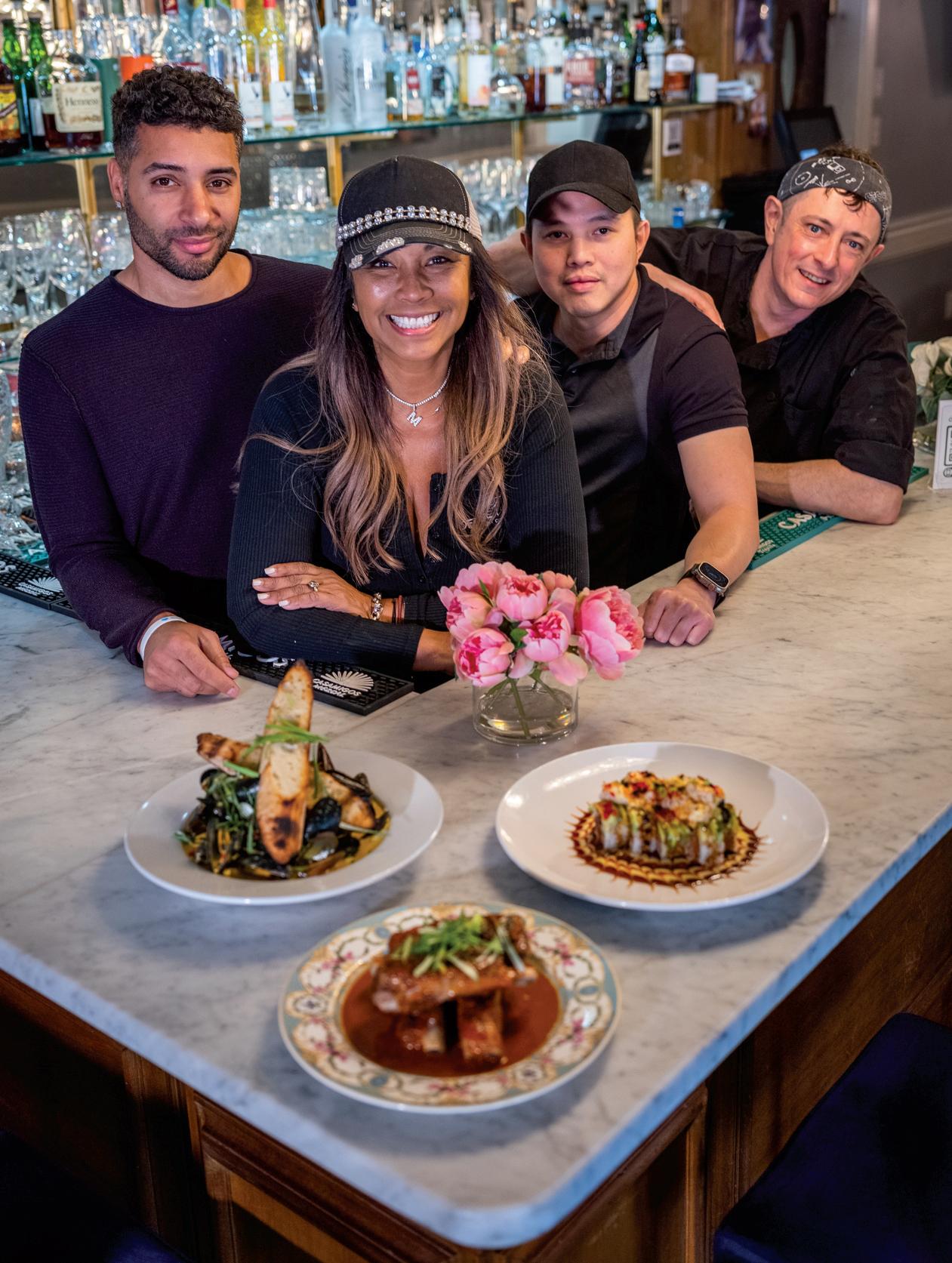
“First I take a slice of beef. You can get any beef from McKinnon’s (butcher shop) or Market Basket,” she said. “Get any kind of steak. You can use cheap steak or expensive steak. It’s better with medium or sirloin strips cut up. I slice up this beef, and then I add chopped ginger.”
Modern then adds a little bit of soy sauce, sesame oil and garlic. And if you like it spicy, add some gochujang red pepper paste. Mix the marinade and then mix the beef in, and put it in the refrigerator for a minimum of 30 minutes, she explains.
Once the beef has been mixed with the marinade, Modern cooks it in a sizzling pan with no oil.
“You don’t have to add any oil because the marinade adds the juices,” she says. “Then you just fry it up in the pan. Add a little bit of garlic salt if you want. You don’t have to because the flavor is there with the soy sauce.”
Modern explains that rice and vegetables are the perfect sides to complete your Korean barbecue.
“I can assure you tonight, just with what I said, you can make that recipe and you’re going to be like, ‘Damn, I’m a cook,’” says Modern.
603Diversity.com | Spring/Summer 2023 25
Photos by Robert Ortiz
Chef Oneta Modern and her staff prepare delicious Korean barbecue dishes including ribs, Bangkok mussels, and a full array of sushi rolls.
CARRIBEAN / HAITIAN GRILLING
JERRY VICTOR HOMESTYLE CATERING, NASHUA
The word “barbecue” is believed to have originated from the Caribbean term “barbacoa,” which refers to a method of slow-cooking meat over a wooden platform. For Haitian-American Jerry Victor of HomeStyle Catering in Nashua, the key to a good barbecue is a good rub.
“Personally, my (secret) to a lot of the grilling that I do is the perfect rub for whatever meat you’re going to cook,” he says. “You can get away with not marinating as much, depending on what style of food you want to cook.”
And you can elevate a cookout by just adding a little sweetness to the experience, says Victor. For example, try grilling fruit with a dash of brown sugar,
“Anytime we’re doing any type of grilling at home, I grill fruit, like peaches, putting a little bit of brown sugar on the peaches while grilling. So good. Pineapple is another one I love to grill,” he says.

And instead of meat, Victor suggests adding fish and more vegetables for a lighter cookout.
“We love grilling corn. In the summertime I eat less meat than I would in the winter, because you feel too heavy in that heat — especially when you’re in the kitchen. You’re cooking all day and are just hot all the time,” Victor says.

Exotic spices aside, Victor’s secret to a perfect rub is actually pretty simple: combine salt and sugar.
“It just elevates everything,” he adds. And if you want to do a marinade, Victor suggests honey, because he likes the caramelization it achieves on the grill.

26 603Diversity.com | Spring/Summer 2023
Jerry Victor, owner and chef at Homestyle Catering in Nashua serves up his unique Haitian barbecue recipes that include Sticky Pork Ribs and Beef Brisket.
LEBANESE STYLE
MICHELLE FAKOURY LITTLE LEBANON TO GO DOVER
Lebanese cuisine features a variety of dishes that are commonly grilled or roasted, including meats, vegetables and seafood. Lebanese barbecue is known for its flavorful marinades, spices and herbs that are used to enhance the taste of the grilled food.

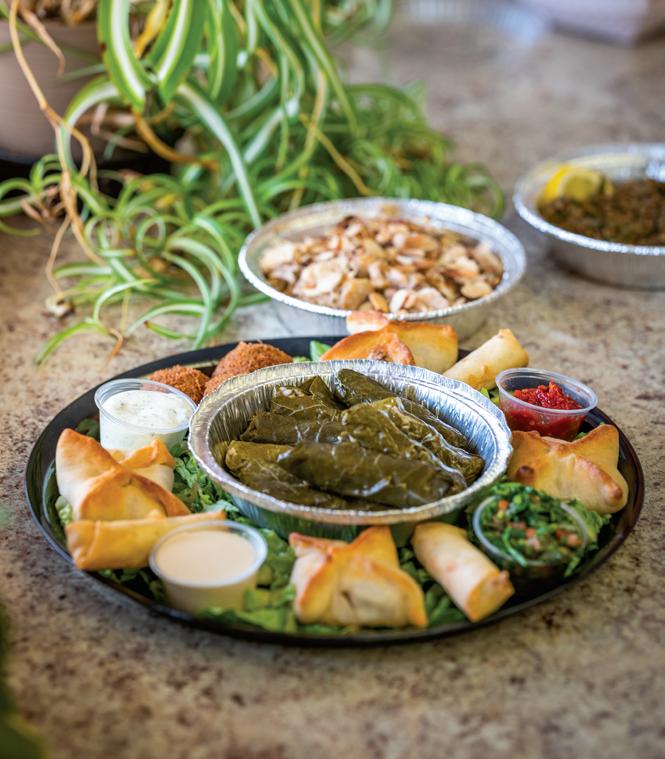
For Michele Fakoury, owner of Little Lebanon To Go in Dover, her secret to grilling success involves marinating in lemon and olive oil.
“Mediterranean food is known as the very healthiest food in the world,” she says. “We include vegetables, olive oil and lemon. All this substance that gives energy to your body and is really very healthy,” she says.
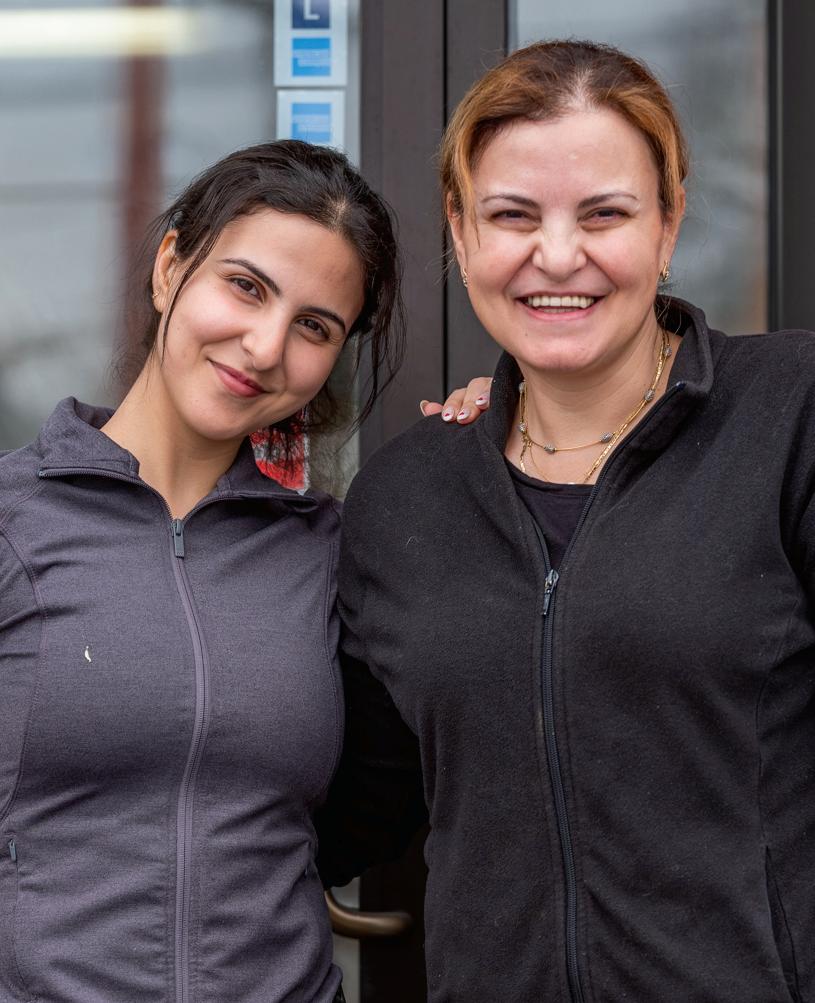
Train to be an LNA
in just weeks
LNA Health Careers offers comprehensive training that prepares students for success on the state certification examination and in their future careers in healthcare.


Fakoury says that anyone who wants to enjoy a Lebanese-style barbecue at home should pick quality meats and let them marinate for at least a couple days ahead of time. Then incorporate the meats with Lebanese Seven Spice — a combination of black pepper, cinnamon, ground cloves, coriander, cumin, nutmeg and allspice. The
Our programs offer flexible scheduling options to meet different needs and lifestyles.

LNA • MNA • LPN • Phlebotomy Tech
• EKG Tech
Pharmacy Tech
• CPR/BLS Course
Refresher Courses
603Diversity.com | Spring/Summer 2023 27
the
@ManchesterNAACP
mission of
Manchester Branch of the NAACP is to secure political, educational, social, and economic equality of
rights
for individuals and black businesses. naacpmanchesternh.com @NAACPManchester2069 @NAACPManchesterNH
•
• IV Therapy
•
lnahealthcareers.com
Manchester, NH | Meredith, NH 603-647-2174 |
Photos by Robert Ortiz
Miichello Fakoury and her daughter, Macy, create Mediterraenean style dishes that would add wonderful flavor to any backyard barbecue such as Chicken Hashweh and their grape leaves dishes.
603 Diversity: News Briefs
A journalistic look at our state of diversity from the reporters at the Granite State News Collaborative.
These articles were adapted from stories shared by and with partners in The Granite State News Collaborative as part of our race and equity project. For more information, visit collaborativenh.org.
Black Heritage Trail to Create Mural for Former Slave
The Black Heritage Trail of New Hampshire is planning to honor former slave Ona Marie Judge Staines with a mural on the side of their Court Street headquarters.
The mural — which will span 24 by 28 feet — will be attached to the brick wall of the building at 222 Court St. and pay tribute to Staines.
Staines was born enslaved to Martha Washington but eventually escaped and lived her remaining life free in New Hampshire, according to Black Heritage Trail officials.
“Her story is really one of immense courage, and it tells us of the strength of the free Black community; it tells us of the soul of the Portsmouth community in the late 18th century,” says Barbara Ward, the coordinator of special projects for the Black Heritage Trail.
Staines lived first with George and Martha Washington at Mount Vernon in Virginia, where she worked as Martha Washington’s seamstress. She then went to Philadelphia
with the family, where the presidential residence was at the time, according to Ward.
The Washington family would return its enslaved people to Virginia “just often enough to subvert Pennsylvania laws” that allowed any enslaved person who lived in the state for more than six months to obtain their freedom, Ward said.
“I sort of look at it as Court Street becoming an arts corridor because of the other public art on the street,” she says. “Personally, I would love to see Portsmouth have some wonderful public art.”
Court Street is already home to a public sculpture at the first station and is located near the African Burying Ground Memorial, Ward says.
Creating the Staines’ mural “enhances the character of the city by promoting its rich history,” Ward says.
— JEFF MCMENEMY, PORTSMOUTH HERALD
Concord Mayor Pitches DEI and Justice Panel
Concord Mayor Jim Bouley presented a plan to city councilors in March to introduce a diversity, equity, inclusion and justice committee.
The committee, comprising of Bouley and City Councilors Zandra Rice-Hawkins and Byron Champlin, will establish a scope of work and partner with outside organizations.
New American and refugee populations have been asking for more people of color on city boards and committees that guide projects and offer recommendations on important decisions.
“The goal is to create and sustain inclusive processes for public engagement so all residents can authentically impact the projects that affect their lives,” Bouley said. “We want to identify characteristics to make Concord more welcoming and inclusive, help
residents feel more empowered and have conversations around the city to engage marginalized voices.”
Funding for the committee and the use of trained facilitators to lead discussions are expected to be included in the upcoming city budget in order to help create sustainable long-term change. Over the next two years, the committee will work to implement genuine, systemic change in the city, Bouley said.
“What I’ve learned as I’ve talked to folks in the community is that there needs to be an outside consultant if we’re going to be successful in doing this,” Bouley said. “This is meant to be a holistic and inclusive process to start the conversation.”
Change for Concord leader Fisto Ndayishimiye wanted to address councilors on
behalf of the city’s growing community of color.
“I was hoping this would be open to the public and they’d actually consider our ideas,” Ndayishimiye said after the meeting. “But now I believe he has his own people that are going to be working on this, and it’s not fair because we have people who have lived the experience and are willing to work and make these changes.”
He said he felt silenced and pushed aside.
“There were a lot of people and leaders from the BIPOC (Black, Indigenous, People of Color) community and we invited them because we wanted them to own the conversation. It’s about them,” Ndayishimiye said.
— JAMIE L. COSTA CONCORD MONITOR
28 603Diversity.com | Spring/Summer 2023
603 NEWS
Whether you’re just starting out or have years of experience, the collaborative nature of nursing at CMC gives you the opportunity to make a meaningful difference, every day. We believe our nurses are among the brightest and most compassionate caregivers. Come be empowered to share your innovative ideas.
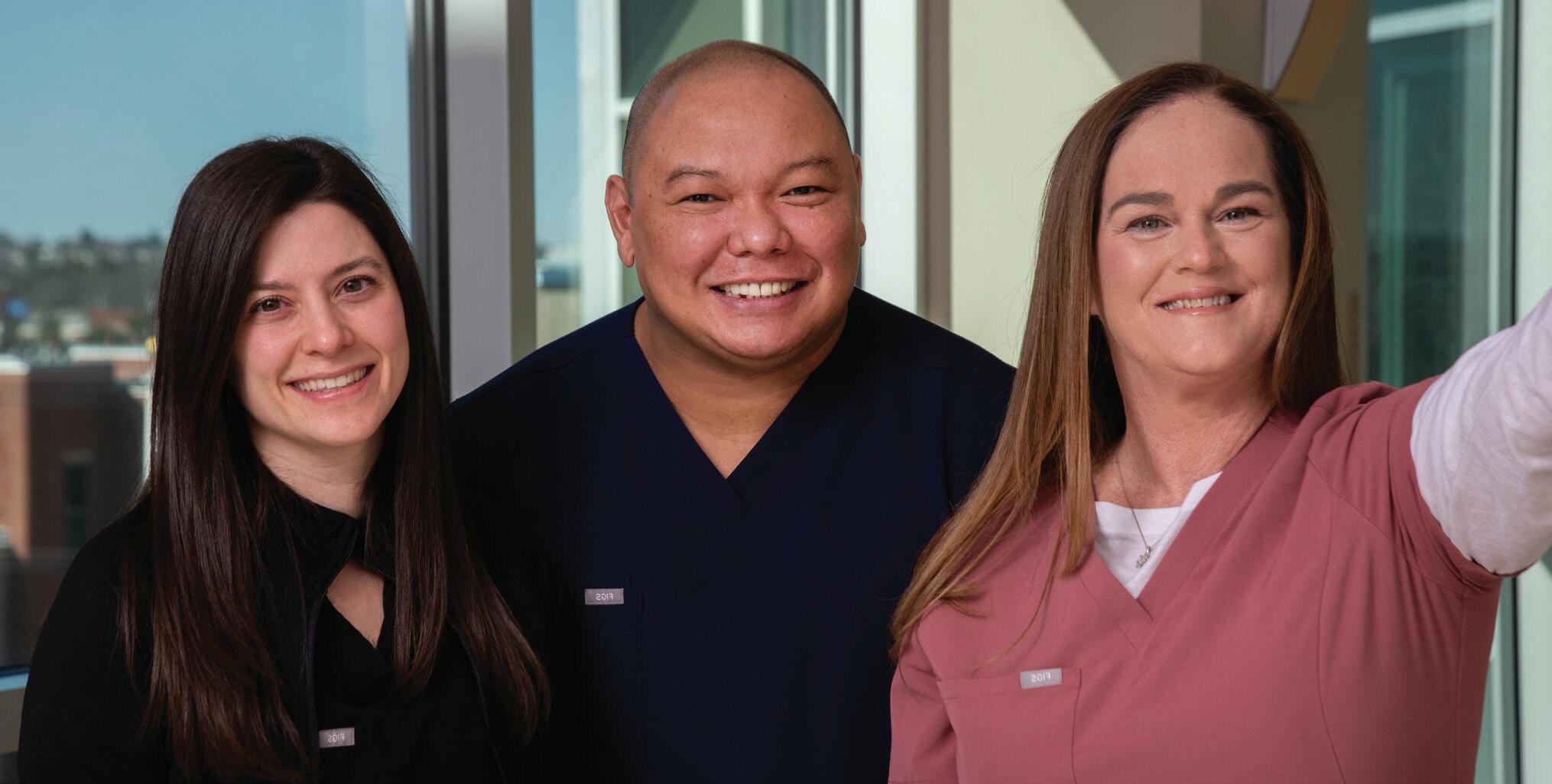
Join our nationally-recognized, award-winning team today!
CMCcareers.org/nursing
Fraud Prevention
I was hunting for deals. What I found was fraud.
AARP Fraud Watch Network® helps you recognize online shopping scams, so your money, health and happiness live longer. The younger you are, the more you need AARP. Learn more at aarp.org/fraudwatchnetwork
/AARPNH @AARPNH

603Diversity.com | Spring/Summer 2023 29
with the best
White Supremacist Activity on the Rise in NH
An annual report from the Anti-Defamation League shows white supremacist propaganda activity soared to an all-time high nationally and across New England last year, with New Hampshire seeing a 383% yearover-year increase.
New Hampshire towns and cities in the Seacoast and Strafford County, as well as in southern Maine, have recently wrestled with an influx of hateful activity in their communities, and each state in New England reportedly saw a rise in such activity in 2022. Connecticut is not included in the ADL’s assessment of white supremacist propaganda activity in New England.
In the Granite State last year, there were 183 recorded incidents, with 13 area communities — Exeter, Hampton, Hampton Falls, Hampton Beach, North Hampton, Rye
Beach, New Castle, Portsmouth, Newington, Newmarket, Durham, Dover and Somersworth — totaling 61 combined incidents, according to ADL’s Hate, Extremism, Anti-semitism, Terrorism Map. Maine saw 30 incidents, a 50% increase over the prior year, with five incidents combined in local towns Kittery, Berwick, York and Kennebunk.
Across America in 2022, there were 6,751 incidents that the ADL recorded, a 38% increase over 2021. The five states that make up the organization’s New England territory (Connecticut is not included) saw a collective 96% increase in recorded propaganda activity.
According to the ADL, propaganda activities in New England included gatherings by white supremacists with antisemitic, racist, anti-immigrant and anti-LGBTQ+ messages
at local bookstores, libraries, theaters, shelters and hospitals.
“White supremacist propaganda has the dual and devious purpose to intimidate specific groups and lure others to join their hateful activities,” said Peggy Shukur, interim regional director of ADL New England.
“Too many of these groups have set New England as their home base. With deliberation and intention, they target their hate against Jewish, Black, Muslim and LGBTQ+ communities and non-white immigrants through despicable and disruptive stunts on freeway overpasses and public events, including the St. Patrick’s Day parade (in Boston).”
UNH Law Students Protest Anti-Trans Group in Wake of Nashville Church Shooting
Students at the University of New Hampshire Franklin Pierce School of Law walked out of class this spring to protest what they called the administration’s failure to act on complaints about two campus groups they say are spreading anti-trans hate.
The afternoon rally outside the law school drew more than 100 faculty and students, many holding signs and chanting “UNH! Stand against hate!”
The walkout was sparked by an email that a student group, the Christian Legal Society, sent to the student body following a deadly shooting at a private Christian school in Nashville in March.
“Tragically, this incident comes after a barrage of rhetoric demonizing Christians and anyone perceived to oppose the ontological premises of transgenderism,” the email reads, adding that activists, journalists and others
have “fueled this hate and paranoia” against “anyone who opposes the trans agenda.”
Speakers at the rally said the email was just the latest example of what they described as anti-trans messaging by the Christian Legal Society and another campus group, the Free Exercise Coalition. They said the groups’ activities are making LGBTQ people feel less safe on campus.
Law student AhLana Ames, who helped organize the event, said no one had a problem with CLS organizing a vigil. But “the email then spirals down a rabbit hole of dangerous and offensive transphobic rhetoric,” she said.
In a statement, Erika Mantz, UNH’s executive director for media relations, said the university is “stridently committed to the free and open exchange of ideas.”
“Every member of our community has the right to hold and vigorously defend and promote their opinions,” she said. “The exercise of this right may result in members of the community being exposed to ideas that they consider unorthodox, uncomfortable, controversial or even repugnant.”
Mantz added that UNH is committed to ensuring “the safety and well-being of every member of our community while upholding the right to free speech.”
“We mourn for the lives of six innocent victims in Nashville, and we stand by and support members of the LGBTQIA+ community who have been maligned during a national conversation about this tragic event,” she said.
30 603Diversity.com | Spring/Summer 2023
603 NEWS BRIEFS
— IAN LENAHAN PORTSMOUTH HERALD
— PAUL CUNO-BOOTH, NEW HAMPSHIRE PUBLIC RADIO



603Diversity.com | Spring/Summer 2023 31 We love insurance so you don’t have to. www.clarkinsurance.com Homeownership is $10,000 closer than you think. Find a mortgage that works for you at NHHomeownership.org We offer $10,000 in downpayment assistance to qualified borrowers. That’s how we make homeownership happen. Find out if you qualify. NHH 23-13 HO ad_DPA_603_half p_final_101323.indd 1 1/13/23 1:53 PM
n BY YASAMIN SAFARZADEH
How One NH Immigrant’s Story Inspires Others Who Will Follow I
There are people you see in the world who say something or do something which changes your life forever.
When I saw Tina Philibotte, chief equity officer at Manchester School District, present the forthcoming speech, I was in a space dominated by white bodies. I felt as I usually do in New Hampshire: tense, clammy, suspicious. With that being said, there are always beautiful moments in the unique and vibrant intersections of our marginalized communities which invariably change our lives.
Tina presented the words following this introduction in an unwavering oration; each word intentional and piercing. I felt seen. Since I have moved to this region I have often been categorized as Arabic, as Latinx, as a lesbian, as straight. All people have a biological need to make order of the world. What Tina’s work pushes us to identify is the nuance in our student body. Her work makes us ask ourselves what we are not seeing in each student’s life, the sometimes-invisible facets of identity which affect their trajectory to acquire an education and a subsequent career.
When Tina spoke, I realized people may want to know that I, too, am a result of exile. People could be inclined to know that I am an Iranian American. People may want to hear that there are great pains affecting communities in exile.
Until I heard Tina speak, I didn’t know my history had value. Her speech (probably coupled with Shirin Neshat’s words regarding times of turmoil and the exiled needing a deeper connection to our roots) lit in me a flame to be proud of my history and, more importantly, to own it and to share the gift of my history with others.
n 1976, Jimmy Carter ran his presidential campaign on pulling troops from South Korea. Though the full transition never came to fruition, the in-between wreaked havoc on an already unstable peninsula. In 1979, the South Korean president would be assassinated by the equivalent to the U.S. CIA director. I was born in the mid dle of that unrest in Seoul, South Korea, in 1977.
Kennel-like boxes were placed on street corners in Seoul where one could anonymously abandon a baby. A Korean police officer checked the boxes on a frequent patrol. If an officer retrieved an infant, it would be transported to a nearby orphanage often run by nuns working in Christian missions. I was one of over 200,000 Korean adoptees exported off the peninsula over the last six decades throughout Europe and the Americas.
I was adopted by Roman Catholic, God-fearing, French-Canadian, Manchester West Side parents — my mother renamed me Christina, a gift from God, but then met me and immediately took the Christ out of my name and started calling me Tina!
At the time NH was 97% white, and most rooms I walked into, including those in my own home, I was the only person who looked like me. As a student at West High School in a
USEFUL ADDITIONAL READING:
building of 1,600 students and another 100-plus teachers and faculty, I was one of maybe 10 people of color in the whole building. I wasn’t fully Korean. I definitely wasn’t white. I was a human under constant construction: Korean parts, American labor.

Like with so many immigrant/refugees, my presence on this continent was a result of war. I came to the U.S. and landed with my white, French-Canadian parents. Despite all the challenges, there was an abiding love, joy, loyalty and values instilled in me. There were so many moments in the first six months of my life that could have diverted my soul and my body toward a different path, yet I ended up here.
Over a year ago, I was hired as the Manchester School District’s first chief equity officer. Mine is also the first position of its kind in the state of NH. This position was dreamed up from the good intentions of so many who knew what they wanted but didn’t know how to nurture that dream and so just took a grand leap of faith. This wave of inaugural DEI director positions may not be set up for success and might appear like a box to check, but I have occupied this space before. I have been in a box to check before, and we all have to start somewhere.
In 2022, nearly half of our students in Manchester schools come from racially diverse backgrounds. My story might seem like an un -
Schott, Liz. “State General Assistance Programs Very Limited in Half the States and Nonexistent in Others, Despite Need.” Center on Budget and Policy Priorities, https://www.cbpp.org/research/family-income-support/state-general-assistance-programs-very-limited-in-half-the-states.
“Economic & Social Indicators for New Hampshire, 2016-2020.” NH Employment Security, Economic & Labor Market Information Bureau, https://www.nhes.nh.gov/elmi/products/vs/documents/vs-2022-ch1-population.pdf.
Tate Britain, director. Shirin Neshat - ‘Dreams Are Where Our Fears Live’ | Tate. YouTube, YouTube, 2 July 2021, https://www.youtube.com/watch?v=M43QgkbOEv8. Accessed 3 Feb. 2023.
32 603Diversity.com | Spring/Summer 2023
603 ESSAY
Photo by Robert Ortiz
known tale relevant to very few, but the issues of isolation and otherness still ring true for so many of our students of color, our immigrant and refugee community, and for our lower-income-earning students.
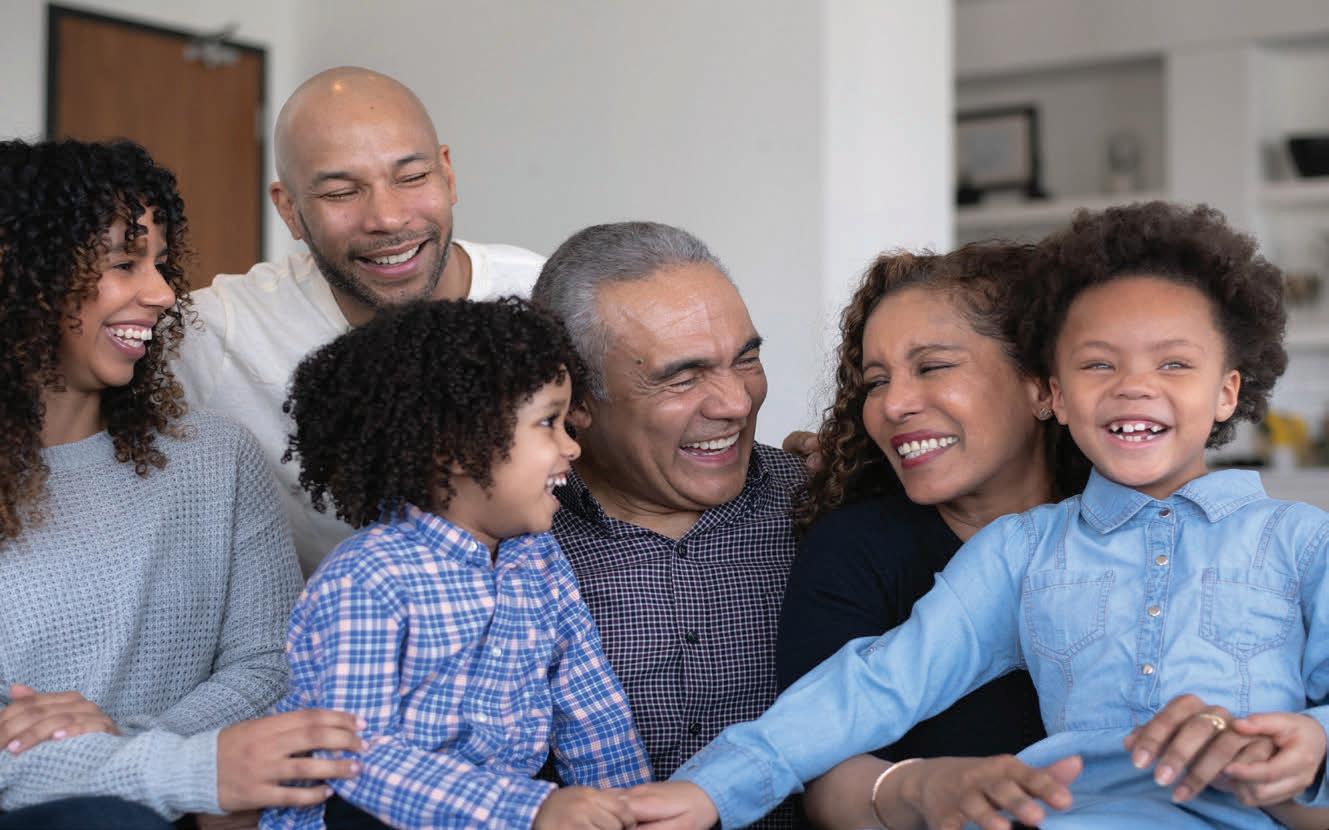

I’m not weaving a tale when I say that if I can somehow find my way to this moment, we can somehow find our way to the vision where every single child feels seen, heard, valued; where every single child feels represented in the books they read and the subjects they learn; where every child has a trusted adult who looks like them and can connect with; where each child experiences outcomes that are not predicted by demographics; and where every child has a love for learning, a curiosity for life and a commitment to community.
My story is a true story. I am back to Manchester where I get to work among so many advocates deeply committed to renewing the very system that was unable to acknowledge my own Korean-ness and my unique star in this universe. When I had my own child nearly 20 years ago, I became a teacher to be the adult I needed as a child for my daughter and for students in NH. I believe teaching is the greatest act of revolution and abolition I can do.
My work isn’t easy, and I also get to call in, work besides, and lift up students, teachers, families and community members. We can renew our community by leaning into the nuance and complexity with authenticity, integrity, love, liberation and joy. Mine isn’t a pristine origin story.
Ours isn’t a story without strife. And our collective stories, despite their challenges, are also stories of love, joy and sheer enduring will. We might not have control over where we came from, but we do have agency over where we go and over how we get there. If our past reveals anything about our future, it tells us that we can move beyond these boxes as a community.
—Tina Kim Philibotte, MLK Coalition Event
Tina Philibotte’s courage and strength to lead formidable change in the school district is an exemplary illustration of positive shift in our communities. Through Philibotte’s work and efforts, both on the ground and at the district level, our communities are hearing her through her work; believe in me and believe in yourself. 603

603Diversity.com | Spring/Summer 2023 33
You don’t need to be an expert to speak up for a child who experienced abuse or neglect. If you have the heart to help, we’ll teach you the rest. Join us. Sign up for an info session at www.casanh.org Ordinary people can do extraordinary things for children. Where quality and compassion meet family & community AmoskeagHealth.org 603-935-5336 Providing exceptional physical & mental health care across Greater Manchester, regardless of insurance status. WELCOMING NEW PATIENTS
Let Love, Not Hate, Reign Over Our Hearts
During a time when many New Hampshire residents believe their state is embracing diversity like never before, the City of Portsmouth was reminded that not everyone is on the same page.
n BY TANISHA JOHNSON

On the evening of Feb. 21, hate aimed to rule over Portsmouth. Abhorrent graffiti and swastikas were spraypainted on several businesses including Cup of Joe, Macro Polo, Deadwicks, 3 Bridges Yoga, Cotillion Bureau, Grim North Tattoo & Piercing along with a place of worship, the Temple Israel. With all these locations being either Jewish places of worship, BIPOC owned or LGBTQIA+ supporting companies, it is more than evident why they were targeted.
When cowardly hate crimes like this occur, we tend to ask ourselves, “How does this continue to happen in 2023?” Who could attain such odious ideologies and hateful views? But the first thing we
Pinto, an event titled “Love Blooms Here” was held inside Cup of Joe, Kelley’s business. The goal was to pick up the donated flowers and allocate them among the vandalized areas, utilizing the powers of our active leaders and allied community. Within an hour of opening, over 1,000 flowers had been distributed throughout the city.
As many might think, flowers are a simple yet questionable way of displaying support. However, nothing is more powerful than the collaborative voice which filled our town, our community and our people that day. The love which was created within the collective action that day holds power like no other. Our strength to overcome, to drown out animosity, to find unity, truly shows that our community stands together and does not tolerate hate of any kind. Reverend Dr. Martin Luther King Jr. proudly stated, “Darkness cannot drive out darkness; only light can do that. Hate cannot drive out hate; only love can do that.”
should be asking is, “How can we prevent these doings from ever occurring again?” Fortunately, our state is filled with powerful activists and leaders who continuously work to better our community and environment every day. On this recent occasion, they did exactly that.
Our community leaders did not wait, did not sit in fear and wonder, but decided to show our strength, unity and support of each other. Within hours of waking up to the news, community organizers were in full force.
Organized by Assistant Mayor Joanna Kelley, Black Lives Matter Seacoast Executive Director and Co-Founder Clifton West, Mary Boisse-Barnes of the Lovering Health Center and Reproductive Freedom Fund of New Hampshire Executive Director Josie
We can all agree love won this battle. But what must not be forgotten is the immense war the people of America and the people of this world still fight. Though light may shine today, there is always injustice lurking in the shadows. Many still believe our communities are progressively inclusive and welcoming to all, but disregarding prejudice, such as the vandalism of Feb. 21, is simply ignorance and foolishness at its best. We can no longer sit in fear and disbelief of disgraceful operations that may occur within our state. We can no longer ponder what could be happening in disarray, but rather work to prevent any more discrimination and bitterness. How can you take action? How can you better your community? There are always supporting organizations, discussions, rallies and more to participate in. There are always ways to educate yourself on the present and past of our nations and ways to truly understand the wrongdoings of the world to further prevent them. Always remember the wise words of Angela Davis: “I am no longer accepting the things I cannot change, but changing the things I cannot accept.” 603
34 603Diversity.com | Spring/Summer 2023 603 ESSAY
photo
Courtesy
Our community leaders did not wait, did not sit in fear and wonder, but decided to show our strength, unity and support of each other.
A CULTURE FOR ALLA Bank for Everyone
At Enterprise Bank, people and relationships come first. We encourage and foster a culture of diversity, equity, and inclusion, where everyone feels valued and respected. We are committed to a caring workplace that recognizes the importance of making a meaningful, positive difference in the lives of our team members, customers, and communities.
Diversity, equity, and inclusion aren’t just boxes to be checked—they’re commitments to be kept and values to be lived. At Enterprise, celebrating and embracing the cultures, backgrounds, and perspectives that make us different is just as important as rallying around the shared qualities that unite us. By fostering these values daily, the Bank cultivates a workplace where everyone feels appreciated and respected.
Shobana Selvaraj Senior Relationship Advisor | Enterprise Banker since 2014
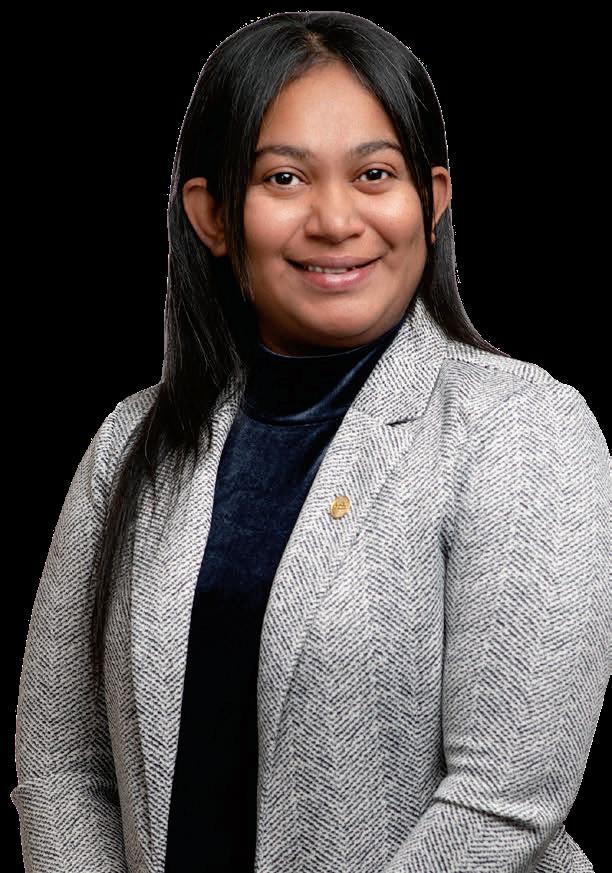
EnterpriseBanking.com/NewHampshire 877-671-2265

”
Compassionate, caring, and innovative employees are what make Exeter Health Resources a great place to work!

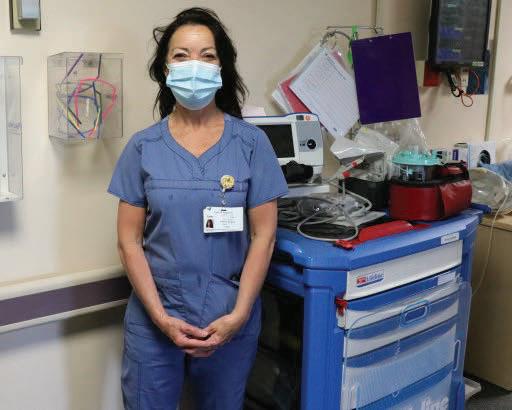
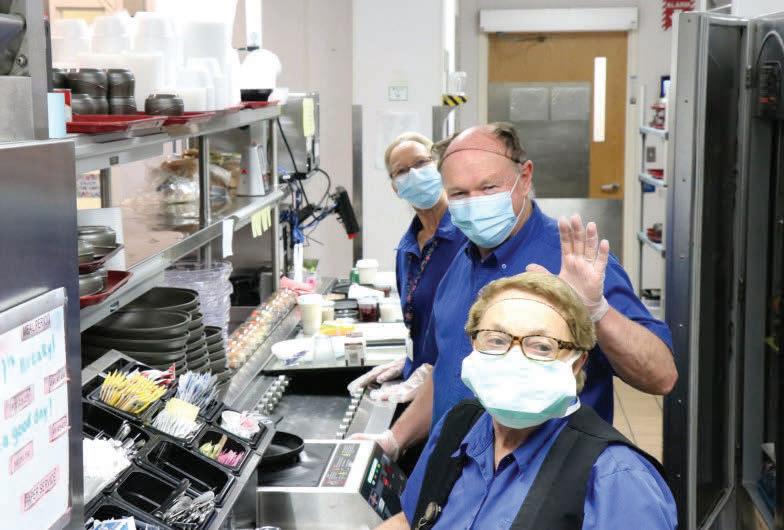


At our core, we are caregivers who aspire to make our community a healthy and safe place for all who seek care from us, as well as for our staff. With our distinctive backgrounds, diverse races, ages, different sexual orientations, gender identities, and individual religious beliefs, we are dedicated to work together to care for everyone in our community.
It is this mission that unites us as one Be part of our team! To view current open positions and learn more about working here visit: EXETERCAREERS.COM
603Diversity.com | Spring/Summer 2023 35
“
Exeter Health Resources is an Equal Opportunity Employer
Mentors Have a Huge Role in Shaping Lives of NH Youth
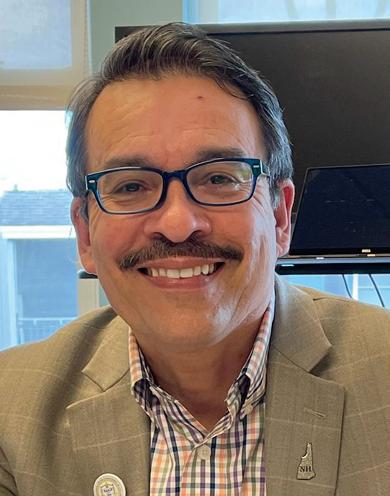 n BY WILL ARVELO
n BY WILL ARVELO
I’ve always said that I arrived where I am through shear vision, ambition, persistence, grit and hard work, and that I got where I am without the benefit of human support. The problem is that this is not true. No human can say this if they are being honest with themselves. Think about it. For better or worse, we are impacted by those around us. We learn from others: family, friends, teachers, co-workers, and both positive and negative influencers. To a large degree, we are the product of the sum of all those human connections.
In my case, I’ve come to realize that my life has been influenced more impactfully by the women. Maybe that’s true for most of us, yet we never talk about it — especially us males. There was my mother, grandmother, two sisters, friends, girlfriends, teachers, business owners, community leaders and, most importantly, my wife. The male figures in my family, suffice it to say, were either absent or drunk or both, except for an uncle, who, through his actions, taught me how to be a good and caring man. My father died of cirrhosis of the liver when I was 10. Basically, he drank himself to death and never served me as a role model.
From women I learned to love, to care and the importance of nurture. They taught me to look beyond myself and the importance of leading with integrity and respect. The strength that they gave me has allowed me to traverse many worlds from the rural poverty in the mountains of Puerto Rico to the concrete jungle of East Harlem to high school in Andover, Massachusetts, to serving as a college president and leading in the areas of economic development and homelessness eradication — and so much more.
When I was a young boy of 8, Harriet Tubman had a deep impact on my life. Her life story set a high bar for my experience with women, or any human for that matter. She led a long life of suffering, challenge, tenacity, overcoming, risk and success — a triumphant life as lives go. Luckily, in my life, I’ve encountered many heroes. Around the time of my father’s death and my learning about Harriet Tubman, three Black women heroes came into my life.
THE PRINCESS
On the street, I met a community leader who worked to care for and feed the neighborhood children in East Harlem. The years have dulled the memory of her name, but her impact has stayed with me. Tall and majestic, with the kindest smile and penetrating eyes, this woman wore her culture and history with pride. In her colorful, tall headdress and African dresses, she was a sight to behold for an 8-year-old skinny boy with big eyes in this strange new land. She not only fed my body, she fed my soul. From this woman I learned to appreciate a different type of music than the old boleros played in Spanish Harlem. She taught us African drum and dance and a beautiful African lullaby that I still remember more than 50 years later. She taught us piano and art and so much more. This beautiful woman, whose name I don’t recall but who had an oversized influence on my life, offered me sanctuary from the unpredictability of the streets in early 1970s Spanish Harlem. She taught me about the beauty of acceptance of difference and nurtured my natural curiosity and spirituality. To this Black woman, I am forever thankful.
THE QUEEN
In school, there was Mrs. Martin, my sixth grade teacher. Short and stocky, but she might as well have been 100 feet tall. Mrs. Martin was the grandmotherly prototype, if there is such a thing. She had smiling eyes that pierced my soul. Like the other Black women in my life, she wore her strength and her truth unafraid — almost as if she knew something important that the rest of us were not privy to. She seemed to speak a language just with her eyes and her smile. I don’t recall if she was the same with everyone else as she was with me, but I suspect so. I do recall that she took a special interest in me, and we developed a special bond. I always wondered what it must have been to be her child or grandchild. If she had them, they must have been so fortunate to have such a loving woman in their lives. Like my princess above, my queen nurtured my curiosity for all things, a love of books and a love of writing. I doubt that without her nurturing the love of learning in me, I would have gone
36 603Diversity.com | Spring/Summer 2023
Courtesy photo
603 ESSAY
on to college and on to a successful career in higher education and leading nonprofits. She transformed me from a Spanish-speaking Puerto Rican boy to a bilingual, bicultural boy learning to navigate multiple cultural experiences in a new world. To this Black woman, I am forever grateful.
THE REBEL

Later in life in my early 20s, I met Luz Leida Jimenez, a 40-year-old Black Puerto Rican rebel. Luz Leida was many things and could traverse many worlds. Beautiful, tall, strong, spirited and revolutionary, she was a community leader and business owner. Self-assured and solidly rooted, Luz Leida questioned everything with her eternal attitude of “sticking it to the man.” She flowed through the world with a fluidity, liquidity and certainty like few people that I have known. She wore her blackness with pride, and wore her Puerto Ricanness with
OVERNIGHT CAMPS

Kids Ages 8-15
The Granite YMCA’s overnight camps offer a summer of unforgettable outdoor adventures. Each day, campers participate in fun activities that help develop life skills, create unforgettable memories, and make lifelong friendships. ACTIVITIES
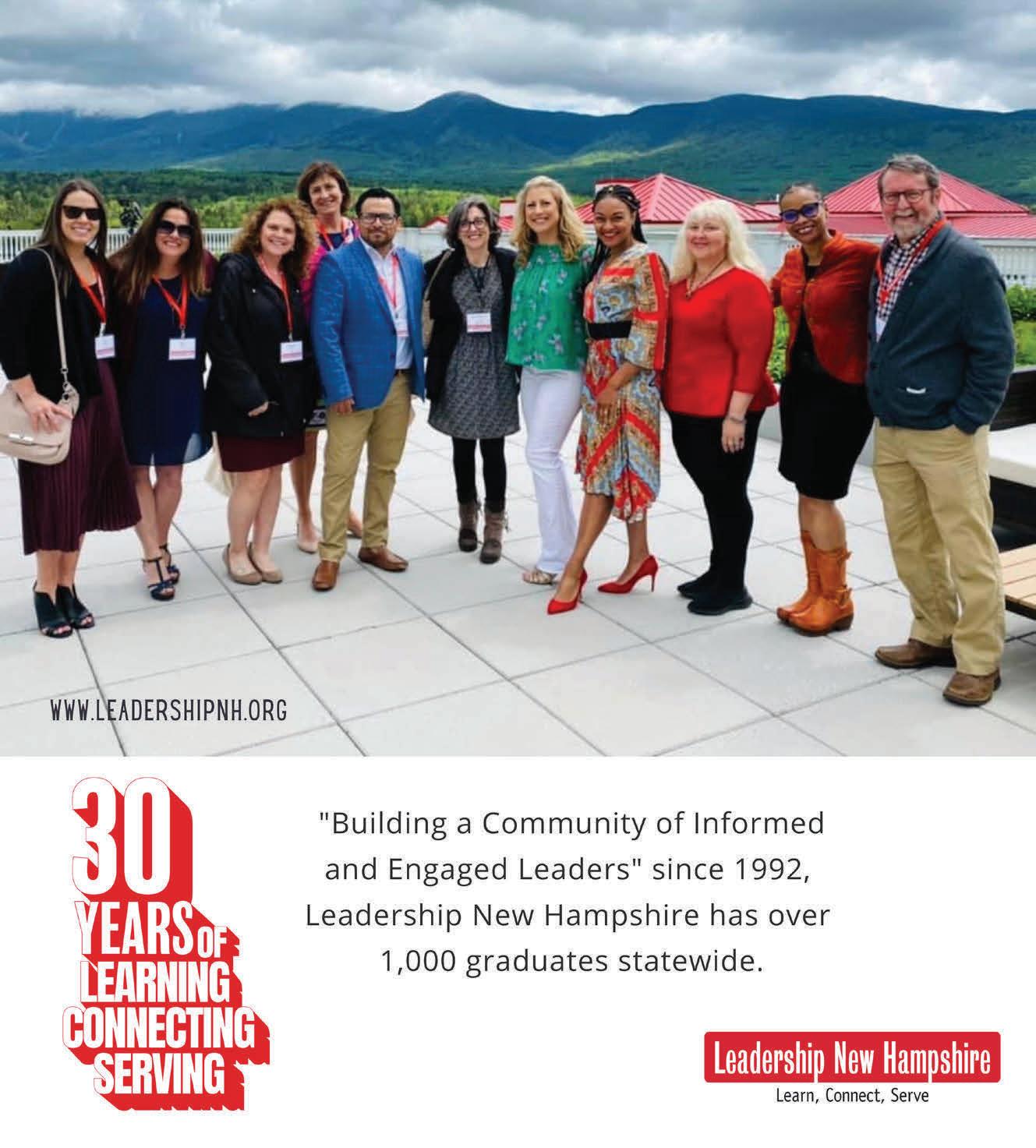


pride and joy. Luz Leida taught me about the nuance, complexity, certainty, beauty, vulnerability and strength of being a woman. She taught me about acceptance and questioning, to be vulnerable and to be strong, to laugh and to cry. Though rebellious by nature, she taught me about the importance of balance in things. She, more than anyone else, taught me to traverse two cultures, vastly different, which helped me to accept and understand the richness of diversity. To this Black woman, I am eternally appreciative.
Harriet Tubman came into my life early and continues to be a hero. How could she not be? The three women above have had a more direct and impactful influence, though as in most cases, they were never aware of their influence. Those of us who love people hope that we will help them along their lives’ trajectories. These women taught me to see beauty and find
the positive in my often-dark environment. They gave their love and nurture freely expecting nothing in return. They taught me about grace, spirituality, optimism, being a change agent and how we are all connected, and so much more. Most importantly they taught me to love, to laugh and to see the joy in life. And for that, I always carry them in my heart.
Today, I have the joy and fortune of having many Black women still in my life — all friends, confidants and, even still, mentors. Like the early Black women in my life, they too are strong and proud, questioning, rebellious, architects and planners for their lives and the lives of those they love, always thinking about family and community. The best of friends, they have defined my life to a significant degree, and I am so fortunate to have had a large measure of their love and encouragement. 603
603Diversity.com | Spring/Summer 2023 37
65 YMCA Rd Alton, NH CAMP MI-TE-NA 242 Willey Pond Rd Strafford, NH
FOSS
CAMP
INCLUDE
• Boating • Sports • Climbing Tower Ropes Course • Creative Arts • And Much More!
Swimming
Financial assistance is available. graniteymca.org/camps 603.232.8642
Civility in Civics
THE IMPORTANCE OF RESPECTFUL DISCOURSE IN A DIVERSE DEMOCRACY
n BY JAMES MCKIM
EPluribus Unum. Out of many, one. The motto suggested by the committee Congress appointed on July 4, 1776, that is included on the Great Seal of the United States expresses the sentiment that we are stronger as a union, a nation, as a democracy, because of the many different people in our country. In a democracy, in order to form a more perfect union, it is essential for citizens to be able to freely express their opinions and engage in meaningful debates. This is because democracy relies on the exchange of ideas and open discourse to help citizens make informed decisions and hold their elected officials accountable.
A lack of civility in political discourse can be especially prevalent and harmful in a diverse democracy, where people come from different backgrounds and hold a variety of perspectives. In order for a diverse democracy to function effectively, it is essential for individuals to engage in respectful discourse, even when they disagree with one another. This means being willing to listen to and understand the perspectives of others, regardless of their race, ethnicity, religion or other personal characteristics.
CIVILITY IN DECLINE
Unfortunately, recent pushes to legislate what can and cannot be discussed seem to be causing a disturbing decrease in civility (or increase in incivility) in our society. This decline in civility can have serious consequences for democracy. When people are unwilling to engage in respectful discourse, it becomes difficult for them to reach consensus and make decisions that benefit the greater good. This leads to a breakdown of trust in the political process and a decline in public participation. Additionally, when people are constantly exposed to uncivil discourse, it can lead to feelings of anger, frustration and hopelessness, especially among marginalized communities who may feel targeted by uncivil behavior.
In recent years, many people have expressed concern about the decline of civility in political discourse. A recent survey published by walktheridge.com shows that nearly all Americans, 95%, say

civility is a problem. Three-quarters (74%) say civility has declined in the past few years. And two-thirds (67%) say it is a major problem today.
THE PRICE OF INCIVILITY
This decline has had a significant negative impact on our society, its organizations and its institutions. Legislative bodies seem deadlocked where there was not a significant majority for one party causing major issues to remain unaddressed. Decisions are being made about people’s bodies without their express consent causing fear, pain and anguish.
In the article “The Price of Incivility” in the Harvard Business Review, Christine Porath and Christine Pearson state that incivility chips away at the bottom line. “Nearly everybody who experiences workplace incivility responds in a negative way, in some cases overtly retaliating. Employees are less creative when they feel disrespected, and many get fed up and leave. About half deliberately decrease their effort or lower the quality of their work. And incivility damages customer relationships. Our research shows that people are less likely to buy from a company with an employee they perceive as rude, whether the rudeness is directed at them or at other employees. Witnessing just a single unpleasant interaction leads customers to generalize about other employees, the organization and even the brand.”
REASONS FOR INCIVILITY
What drives incivility? Fear. As Herman Mazlow wrote, we all have a basic need to feel safe and as if we belong. So, we are fearful when our sense of safety or belonging is threatened. When we think that there is not enough of something for us to have what we need or want. When we think someone will harm us because we don’t know them well enough to know if they are a threat to us. When we do not think we will be respected unless we show we are better or superior to others.
Have you noticed that people who are like one another or know one another well are civil with one another? Why? There is no fear of being unsafe or belonging: affinity bias.
38 603Diversity.com | Spring/Summer 2023 603 ESSAY
Courtesy photo
MANIFESTATIONS OF INCIVILITY
How does this lack of civility manifest?
Intentionally or unintentionally, lack of civility can manifest in various forms, including insults, personal attacks and the spread of misinformation. It can also involve the use of inflammatory language, name-calling and hate speech. Additionally, it can take the form of failing to listen to opposing viewpoints, making derogatory comments about someone’s background or personal life, and engaging in ad hominem attacks.
PROMOTING CIVILITY
In order to promote civility in political discourse, it is important for individuals to understand what civility means and why it is important. The OED defines civility as “formal politeness and courtesy in behavior or speech.” That means demonstrating respect for others, even when one disagrees with their opinions or beliefs. It involves recognizing the inherent dignity of all people
and treating them with dignity and respect, even when one disagrees with them. Civility in political discourse also involves being open-minded, engaging in active listening and seeking common ground.
There are several ways that we can promote civility in political discourse. One important way is to avoid personal attacks and insults. This means refraining from making derogatory comments about someone’s appearance, background or personal life. It also means avoiding ad hominem attacks, which are arguments that attack someone’s character rather than the issue at hand. Instead of engaging in personal attacks, individuals should focus on the issues and engage in respectful dialogue with those who hold different opinions.
Seek common ground. This means looking for areas of agreement, even when one disagrees with someone on the vast majority of issues. By focusing on the areas of agreement, individuals can build trust and respect, which can help to foster a
ONE TEAM, DRIVING CHANGE

more civil political discourse. Additionally, when people feel that their opinions are being taken into account, they are more likely to be open to compromise and to engage in respectful discourse.
As Doug Stone, Sheila Heen and Bruce Patten say in their book “Difficult Conversations,” take a learning stance. Engage in active listening. This means truly listening to what someone is saying, without interrupting them or assuming that one knows what they are going to say. When individuals use respectful language, they are more likely to foster a civil discourse and be taken seriously.
Finally, model civility in your own behavior. This means being a positive example for others and treating others with respect, even when one disagrees with them. Additionally, individuals should be willing to call out incivility when they see it, and to encourage others to engage in respectful discourse. By doing these things, you can help promote more civil discourse and preserve the democratic values that are essential to our society.
603Diversity.com | Spring/Summer 2023 39 Together, we WIN. See what opportunities are available for you at winjobs.com Join a team that is focused on delivering the most reliable and sustainable waste and recycling solutions to our customers and community. A diverse, equitable, and inclusive culture is a winning culture and a critical cornerstone to our company’s success now and in the future.
603
603 MARKETPLACE
Sanborn Diversity Training Solutions, LLC is your go-to source for enhancing your business’s or nonprofit’s LGBTQ+ cultural competency. Is your organization LGBTQ+ friendly? We can help you get there.

Sanborn Diversity Training Solutions
www.sanbornsolutionsllc.com (603) 434-0068
Do you give a damn about the well-being of your workforce? Chewlin Group helps your organization build a culture of well-being to reduce stress, prevent burnout and return to joy.
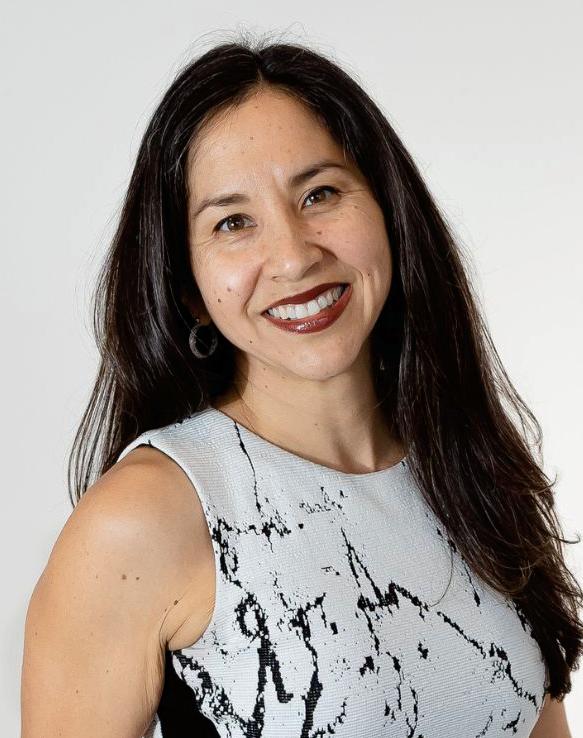
Drinkwater Marketing develops strategies to put fundamental knowledge and experience behind your brand, widening your inclusive reach. Consumers are increasingly socially conscious and many expect organizations to reflect their values. That’s where we come in. We provide expert insight and best practices to help build the inclusive brand that you need to thrive. We’re here to help your leadership, business development and product teams understand current DEI strategies and best practices.
Drinkwater Marketing
www.drinkwatermarketing.com


(888) 936-4970
& Founder
Chewlin Group
(603) 809-5089
jennice@chewlingroup.com
www.chewlingroup.com

You can rely on Edward Jones for one-onone attention, our quality-focused investment philosophy and straight talk about your financial needs. To learn more, call today.
Andrea Williamson
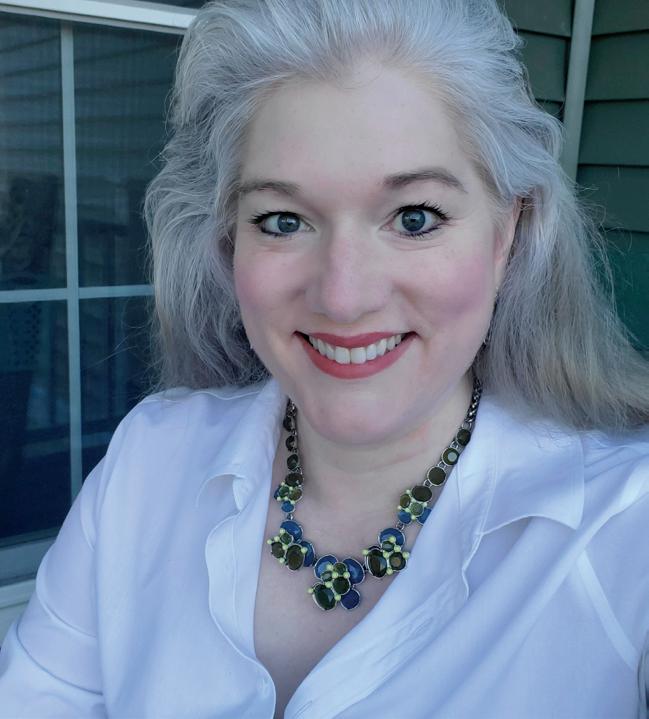
Financial Advisor
www.edwardjones.com/us-en/ andreawilliamson
(207) 967-3585
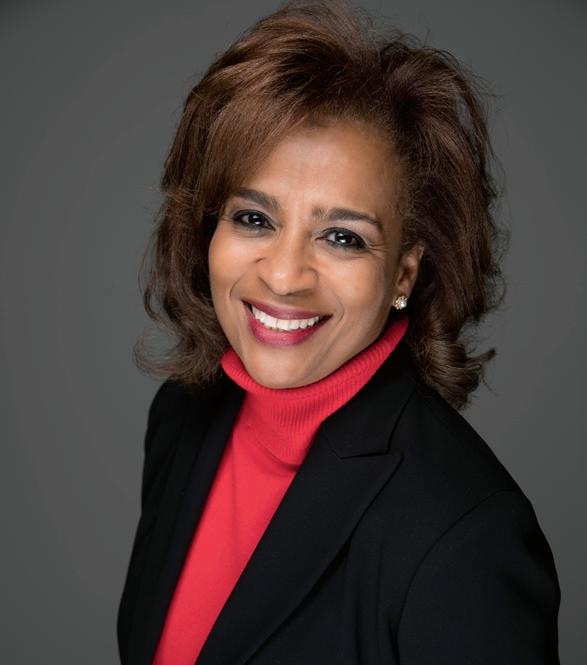
40 603Diversity.com | Spring/Summer 2023
Jennice Chewlin, MPH, CHES® CEO
MKT-1952G-A edwardjones.com Member SIPC Andrea Williamson Financial Advisor 1 Storer St Suite 101 Kennebunk, ME 04043 207-967-3585
Valuing diversity and inclusion


We are committed to dedicating our efforts; including leadership focus and investing our financial resources, to promote diversity, equality and inclusion across our work environment and within the communities we serve. Doing so, we believe, makes us a stronger, more successful and sustainable organization over the long-term.



603Diversity.com | Spring/Summer 2023 41 DO YOU KNOW SOMEONE WHO IS BEHIND IN PAYING MORTGAGE, PROPERTY TAXES, ASSOCIATION FEES, OR UTILITIES? The NH Homeowner Assistance Fund Program provides assistance to eligible NH residents who have been affected in any way by an increase in expenses or a reduction in income as a result of the COVID-19 public health crisis. Find out more at HomeHelpNH.org HomeHelpNH.org For program details and to apply. HomesAhead.org For application assistance, financial counseling and other resources. 603LegalAid.org For assistance with an immediate threat of foreclosure, tax deed, or sheriff’s sale. The NH Homeowner Assistance Fund program is funded through the American Rescue Plan Act of 2021 and the Governor’s Office for Emergency Relief and Recovery (GOFERR). It is administered by New Hampshire Housing. NHH 23-13 HAF ad_603_half p_final_011323.indd 1 1/13/23 10:53 AM
NH Mutual Bancorp, diversity, equity and inclusion are at the core of who we are. We value the diverse and unique individuals who live and work in our communities,
and
is
https://www.nhmutual.com/careers/ At
embrace all differences
strive to create a culture where everyone
welcomed and valued.
Events
THAT MAKE A DIFFERENCE
To submit multicultural or changemaker events for the next issue, send them to editors@603diversity.com.
COMPILED BY YASAMIN SAFARZADEH / COURTESY PHOTOS
JUNE 17
Manchester Pride Coming in June
Manchester True Collaborative, Queerlective, Richella Simard, YWCA and SNHU are a new vision of Manchester Pride, which is a smaller rendition of past events taking place at Veteran’s Park on June 17 from 1 p.m. to 7 p.m. Stay tuned for more details and hit up any of these groups to get involved!
JUNE 17–18
Queerlective Hosts Pride Exhibition
JUNE 16–19
Portsmouth Juneteenth Celebrations
The Black Heritage Trail of New Hampshire will host several Juneteenth events from June 16-19 to honor Black history and heritage and to commemorate the emancipation of enslaved people in the U.S. (and specifically the arrival of that emancipation to Galveston, Texas, on June 19, 1865). Gatherings include:
• The opening of the “IF YOU KNEW, LET IT BE US” art exhibit by mixed-media painter and art educator, McKinley Wallace III at 3S Artspace Studio, as well as “The Sum of Us,” an exhibition at the Seacoast African American Cultural Center featuring the black-and-white drawings of popular visual storyteller Richard Haynes.
• The Juneteenth reggae festival, which celebrates the music of the African Diaspora and honors the legacy of roots reggae with Caribbean food, craft vendors and music from a variety of performers, hosted on the grounds of the living history museum Strawbery Banke and presented by the Black Heritage Trail of New Hampshire.
• A dance performance by Camille A. Brown and Dancers on June 18 called Reclaiming Black Narratives focused on elevating African Diasporic culture, hosted at the Portsmouth Music Hall.
• On June 19 (Juneteenth), join the Seacoast African American Cultural Center for a walk over the Kittery Bridge to the Portsmouth African Burying Ground, followed by a traditional African drumming ceremony featuring drumming and dance from the Akwaaba Ensemble hosted by the Black Heritage Trail of NH.
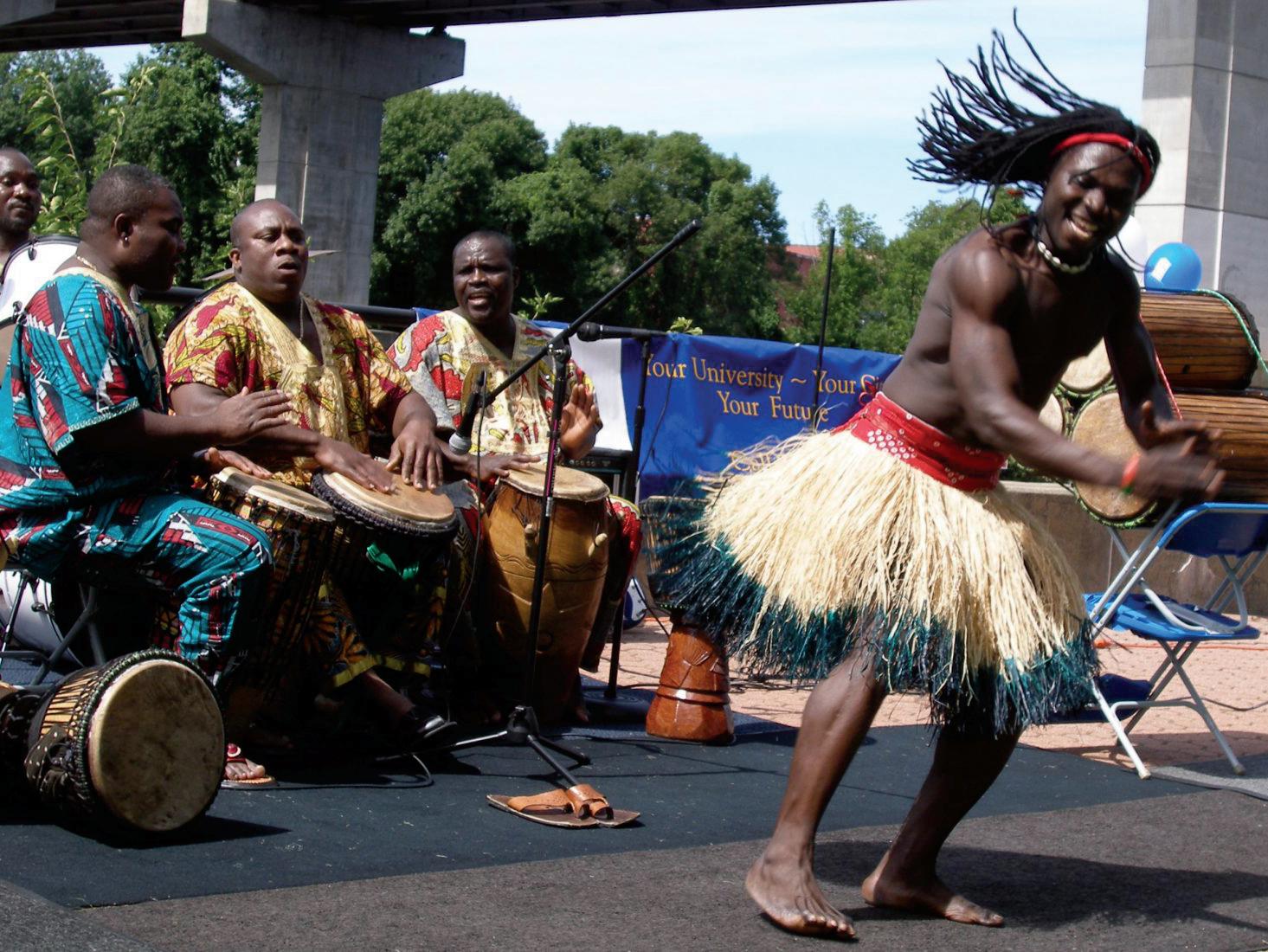
Queerlective is a collective of brilliant and impassioned individuals who work to ensure that their work directly uplifts the diverse creative economy of Manchester. The use of art is central in their efforts to bring together and celebrate each community they serve throughout the region. Follow the work of Queerlective on Instagram @queer_ lective and Facebook @Queerlective or subscribe to their newsletter from their website page queerlective.com
June 17-18: Queerlective will curate a Pride Exhibition hosted at Mosaic Gallery on Hanover Street encircling the themes of intersectionality from 1 to 7 p.m., Manchester Pride Arts Wing at Veterans Memorial Park.
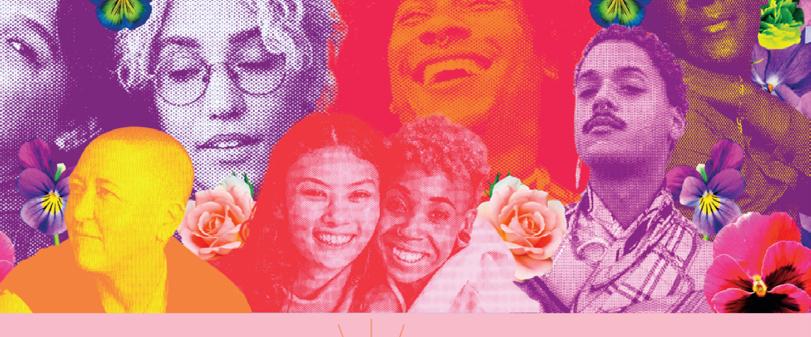
42 603Diversity.com | Spring/Summer 2023
603 HAPPENINGS
Sunday, June 18, from 12 to 5 p.m., featuring food, art, community and New Hampshire’s favorite rock band, Cozy Throne!
JUNE 24–25, JULY 29–30

LIHA to Host Pow Wow and Learners Weekend
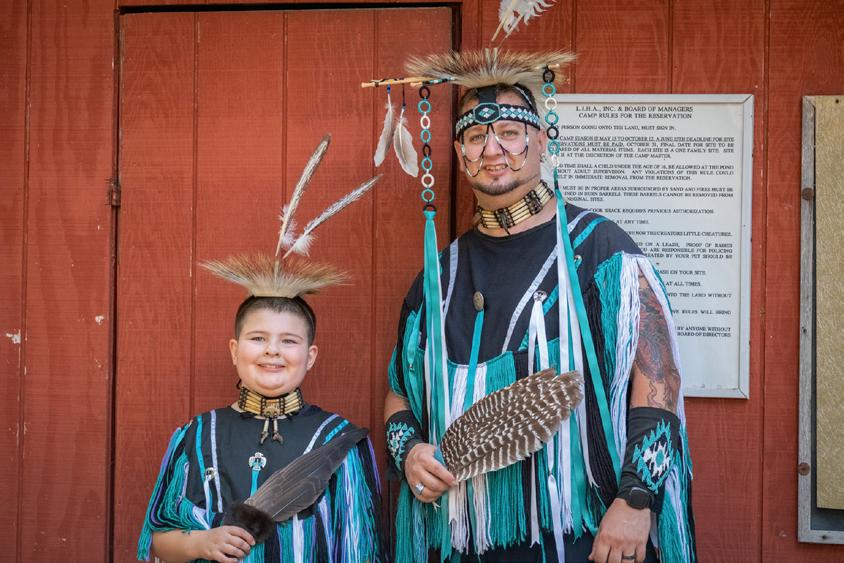
Laconia Indian Historic Association, Inc. is an organization dedicated to teaching and preserving Native American cultures and traditions. They use their resources to promote initiatives which serve the people and include tutorials on various land stewardship practices and agricultural insights. On June 24 and June 25, the association will host their Sugar Run Pow Wow. They will also host a Learners Weekend on July
NOW THROUGH JULY 1
29 and July 30 as they look forward to the 52nd annual Labor Day Pow Wow in September! For more information, email infolihaofnh@gmail.com.
Kimball Jenkins’s BIPOC Meet Up
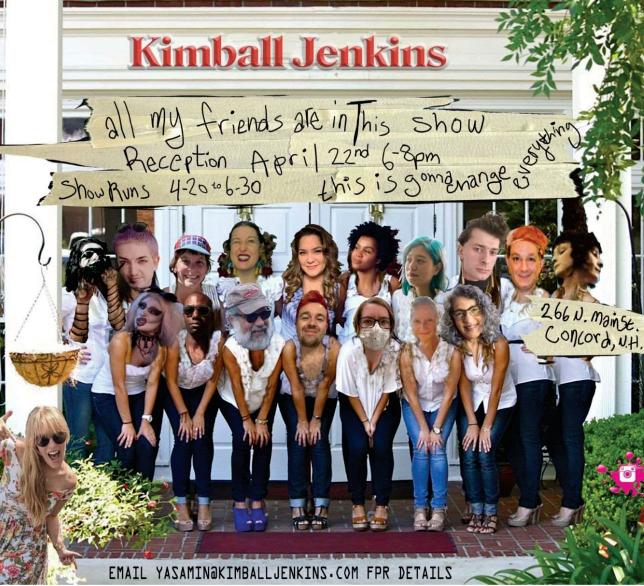
This year Kimball Jenkins is proud to partner with Millennials of Color and Equity Leaders Fellowship to host a BIPOC-only meet-up, which will include a grilling session, games, music, art exploration and tours of the “all my friends are in this show” installation that will run through July 1.
Kimball Jenkins also has a nine-week summer camp with scholarships available. The organization has booked counselors and volunteers from diverse backgrounds and identities, creating a more inclusive and exciting space for hundreds of young people!
Check out their website for opportunities to get in on safe space programming like life drawing classes taught by Yasamin Safarzadeh, Intro to Watercolor by Eileen Greene or Wheel Throwing by Meadows Madsen. Follow them on Facebook, LinkedIn and Instragram @kimballjenkins; kimballjenkins.com.
JULY 15-16, JULY 21-22
Concord Pride! Returns in July
Journee LaFond, Queerlective, Kimball Jenkins and a handful of other organizations will be curating and hosting this year’s Concord Pride! Tune in to each respective organization’s socials for upcoming information. Check out the Concord Pride! Facebook page to learn when and where this year’s events will be held.

603Diversity.com | Spring/Summer 2023 43
Talesha
Saint-Marc
NH’S FIRST BLACK FEDERAL MAGISTRATE
n BY ROBERT COOK
As a New Hampshire native and attorney for more than a decade, Talesha Saint-Marc knows the state and federal judiciary needs more diversity in the courtroom and on the bench.
When the Bernstein Shur attorney was recently notified that she was chosen to serve as a federal magistrate judge in New Hampshire, she was overjoyed.
Saint-Marc also made history as the first African American to serve on the federal bench in New Hampshire.
“I am excited for that and excited for New Hampshire for taking that step,” adds Saint-Marc. “As a Black woman in New
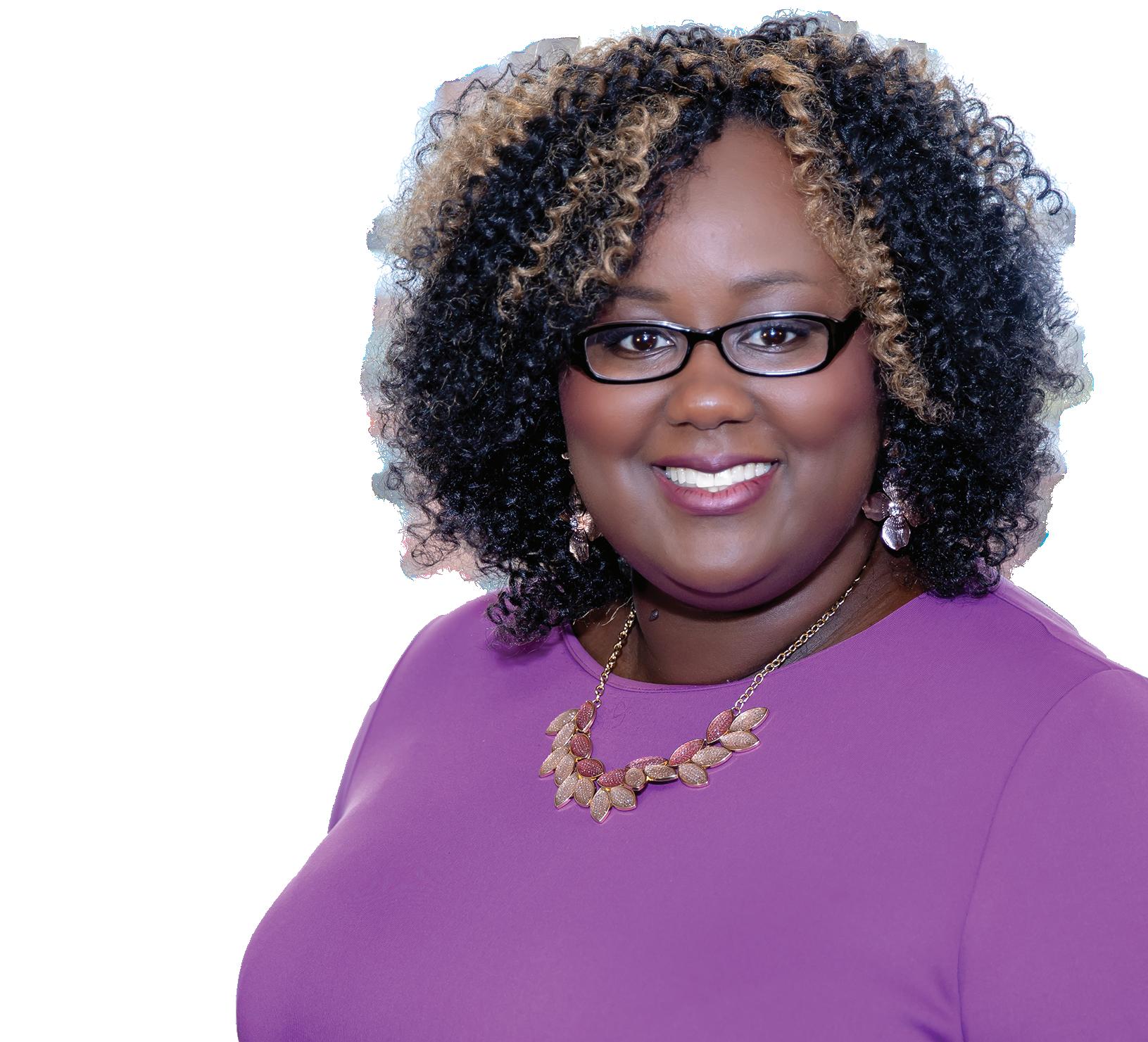
Hampshire, there are not many diverse lawyers in New Hampshire, No. 1, and certainly not many diverse judges in New Hampshire federally or in our state court.”
She hopes that her appointment will inspire other diverse lawyers to serve as judges, because it will make the state’s judiciary system much stronger.
“I always knew at some point in my career I would like to become a judge, and I am excited it is happening at this point in my career, early on,” says Saint-Marc. “I always felt I had the temperament to be a judge.”
Saint-Marc is originally from Nashua
and grew up in Merrimack and Litchfield. She lives in Manchester with her husband, Joseph Ricardo, and their four children.
Saint-Marc is a Franklin Pierce College graduate and studied law at Northeastern University. She is also a shareholder at Bernstein Shur and focuses on labor and employment law.
When asked what it takes to be a good judge, Saint-Marc says it begins with practicing law. “Being a good lawyer, you have to really master those skills.”
Saint-Marc is expected to begin serving in the role in June. 603
44 603Diversity.com | Spring/Summer 2023
Courtesy photo









































































































603Diversity.com | Spring/Summer 2023 W MADEEY EA WED EAL K BRE TE
A healthy workplace is a welcoming, inclusive workplace.
Dartmouth Health is committed to fostering a diverse workforce, creating an inclusive environment, and supporting a sense of belonging for all of our employees.
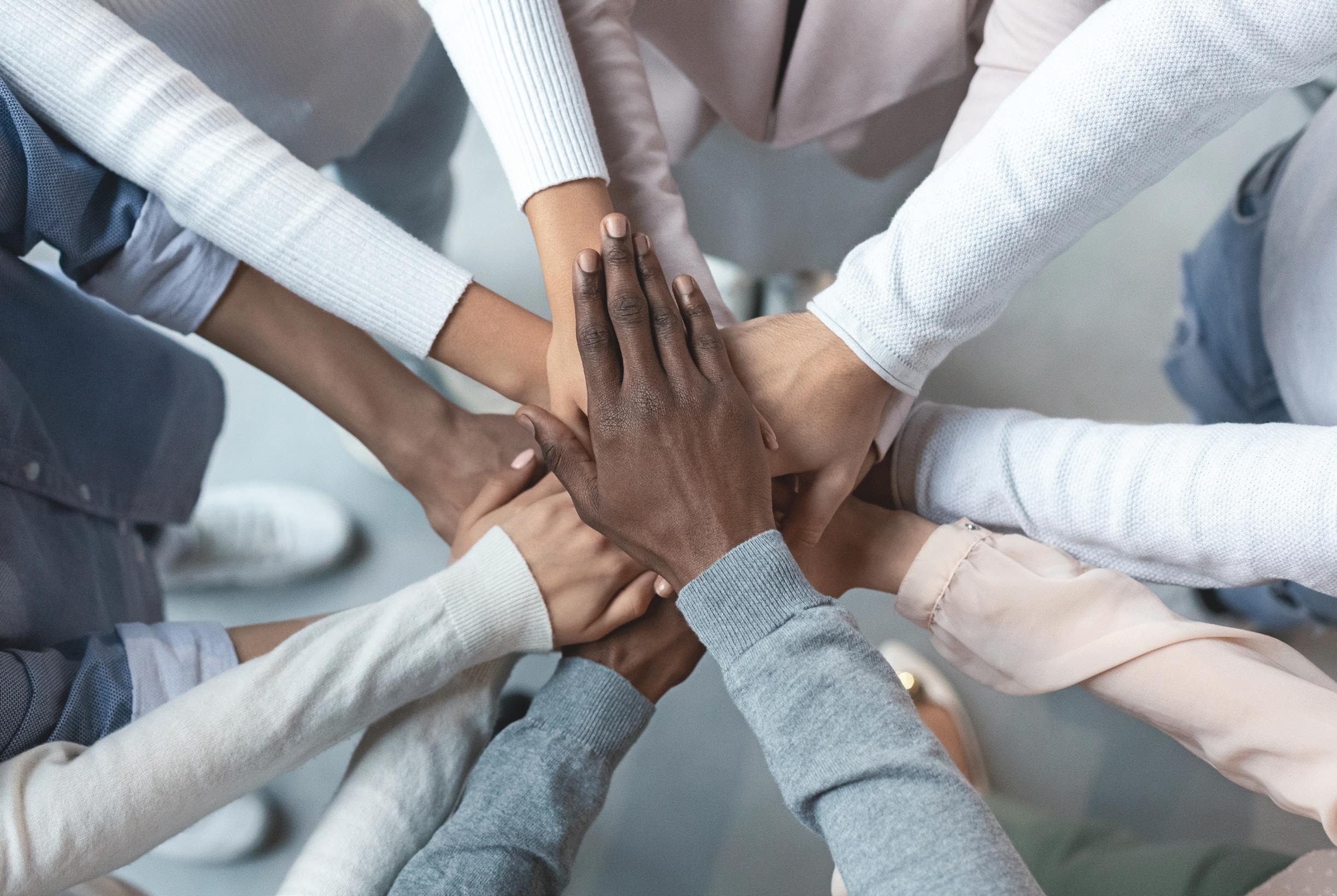
Dartmouth-Health.org
The best, where it matters most.
Alice Peck Day Memorial Hospital I Cheshire Medical Center I Dartmouth Hitchcock Clinics I Dartmouth Hitchcock Medical Center Mt. Ascutney Hospital and Health Center I New London Hospital I Visiting Nurse and Hospice for Vermont and New Hampshire In partnership with Dartmouth and the Geisel School of Medicine.




























































 n BY BETH SANTOS
n BY BETH SANTOS






 n BY BETH SANTOS
n BY BETH SANTOS


































 n BY WILL ARVELO
n BY WILL ARVELO

















































































































